

Download Podcast: "Whatever You Want"
We conclude the Church year meditating on an icon (though an imagined one). Let us drift into its deep associations and hidden roads winding from monument to monument through the mists of the Hebrew imagination. In the person of St. John the Forerunner, we visit Kings David and Solomon; we are present before young David and mighty Goliath; we slip into the tent of Judith and the Assyrian general Holofernes; we behold King Nebuchadnezzar, who sounded the death knell of the Hebrew religion. Even the mother of humankind, Eve, powerfully informs this icon of "the man from Eden."
Come join us we offer to God the fullness of our heart and souls and minds. Join us as we travel these hidden roads, for upon them we shall see landscapes too often neglected. Yet around each bend we glimpse principal landmarks of our faith. How appropriate that they should be summed up in the man who is called the greatest prophet and the Forerunner, for standing (as we are) at the turn of year, we venerate the one who uniquely looks both forward and back. Pray for us, great John Baptist, for you call us now eternally yet with the same ageless words:
|
"Prepare ye the way of the Lord;
Make His the paths straight." |
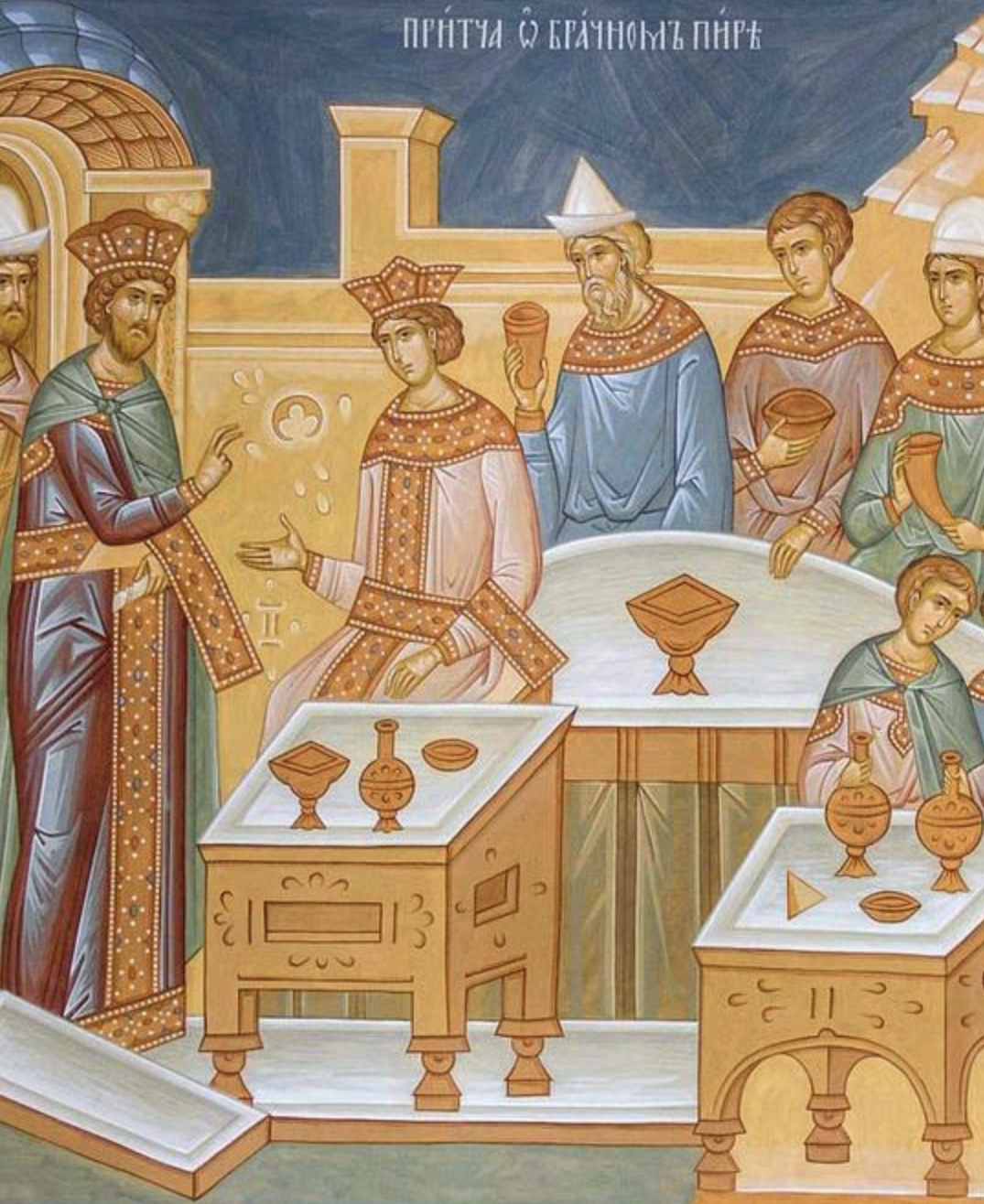
Download Podcast: "Inheritance"
A certain King has prepared a guest list including those who esteem Him very little. The list is then extended to "as many as you can find" (Mt 22:9) or, we might say, to everyone in the world. Then, we learn that the feast is being served, but no one is ready. In the end, we discover that only a few are the real guests. A surprise ending? A narrative twist? This parable has many twists and turns .... including the mind-bending proposition that the King does not know who the real guests are.
But before you recoil in fear of heresy, read on. For, as our faith teaches, God sees and knows all things, yet at the center of our lives, indeed of eternal life, lies our inviolable free will.
The King has invited everyone born into the world to the wedding feast of Heaven and earth. To each one, He is present. Everyone has received an invitation. And now He watches to see what we will do.

Download Podcast: "The Heirs"
"What a strange tale!" we might say as we read the Parable of the Wicked Tenants. By what twisted thread of logic could these men possibly believe that by abusing the Landowner's faithful emissaries and by murdering His Heir, they might claim a great inheritance? So absurd is this tale that we might, at first glance, wonder that it should appear among the Lord's teachings.
Yet, upon reflection, we see that much of the Holy Scriptures, is summarized in these brief verses. We see that the twisted logic of the wicked tenants is precisely the logic rehearsed by another tenant, Eve, who planned to supplant God. We see that, in fact, the Landowner of our parable has planted many gardens or vineyards (the terms are interchangeable in the Scriptures): beginning with the Garden of Heaven itself to the verdant earth He created to the Garden of Eden to the cleansed and renewed earth .... even to each life born into the world into which is set a garden of innocence.
Upon deeper reflection we see that the twisted logic of the wicked tenants is commonly found in our own lifeworld, even the most common logic. For the aspiration to reject God and to set our own truths before us as sacred has become the way of our world repeating the rebellion of Eden. After all, did Eve not claim the Knowledge of Good and Evil, which is moral theology? Have we not heard the litanies of the new morality: "I have my own truth." "Don't judge me." "Live and let live."
Is this not a twisted and perverted thought-world? Those who love God would say so. The tenants have murdered the Heir, and now they expect a great inheritance. In this, a war on Heaven is in full force all around us. The question this morning is, "Where are we in this war?" For there is no neutral country. And in God's world there is only darkness and light. Many shades of gray is the construct of human minds that vainly seek refuge in the ambiguous and the ambivalent.
Let us reflect together in a garden seeking "a green thought in a green shade" (Marvel). For this is where our life in God begins, and this is where it will end.
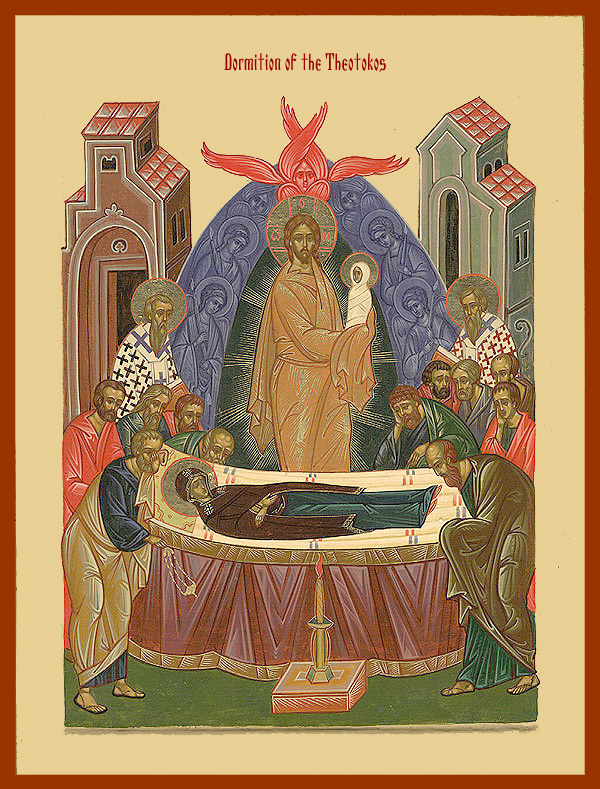
Download Podcast: "Family"
We know that family is the sacred building block God has chosen to form the human lifeworld. That this institution enjoys the highest dignity is attested by an amazing fact: Father God sent His Son to be born into a human family. After all, would it have not made more sense for the Son of God simply to appear on the earth as a mysterious and glorious King of Kings, resplendent in regal array and hailing from a distant Kingdom? Is this not a figure Jesus Himself depicts in His parables and repeatedly? But it is family which God has chosen instead. Though He be born amongst outcasts and birthed midst barnyard mud and dung-stained hay, Jesus is given to earth enconsed by family.
More amazing still in the scope of our individual lives, family is the instrument God has chosen to prepare and form each one of us for His Kingdom. Indeed, if not for family the language of Heaven would be unintelligible to us.
Disciples gathered from all over the world to be present at the bedside of One they called Mother. For this was God's Divine command from the Holy Cross: "Behold your Mother!" Her passage to Heaven is a most important and holy event rightly to be observed among members of the family. So we all take our place at this bedside. It is a day to remember who and what we are. And it is a day to remember where we are: a strange land becoming stranger with each passing hour and most certainly not our homeland nor our identity.
So let us keep Holy Day as brothers and sisters. Let us gather by the bedside of One we call Mother. And let us reaffirm our own royal birthright. For we are the sons and daughters of God.

Download Podcast: "The Rich Have Their Reward"
A rich man has no more prospect of entering the Kingdom of Heaven than does a camel passing through the eye of a needle. The Disciples rightly cry out, "Who then can be saved?" The implication is that most of us are rich. And this is true. For wealth is defined as extra, all that is beyond the essentials of lodging, food, clothing, and a place to pray.
Travel to the third world to see the truth of this. For our lives in the West surround us with a dangerous illusion, the illusion that we are not wealthy or privileged. More dangerous still is our method for dealing with danger, which is to ignore it. Like the many people who venture out to see the ocean floor with its many stranded creatures as a great tsunami gathers its strength just offshore, we wander in a deathly trance.
It is no use to discount this Gospel lesson (as if we could discount any). For few warnings are presented with such gravity. Have you heard the flinty rebuke of the Lord Jesus? He brings not peace but a sword. He has come to spread fire on the earth. But His words concerning the rich and their prospects for Heaven stand out as few other pronouncements do. "They have had their reward," He says glibly.
Today, we are left with a riddle. St. Matthew the Evangelist ensures we do not miss it as the Disciples cry out as one: "Who then can be saved?" (Mt 19:25).
We take some comfort hearing that "all things are possible with God." But we want to learn more. For like the rich, young ruler, we clutch our possessions even as we gaze upon a sword that promises to sever this unwholesome bond and behold fire which promises to burn down our former worlds.
What is the answer to our riddle? Yes, "let us sit upon the ground, / And tell sad stories of the death of kings" (Richard II, 3.2.155-56). Better still, let us sit together and contemplate the death of our own evil hearts. For it turns out that the new life ahead is no burden but rather our final liberation.
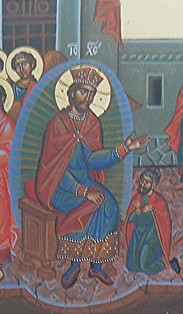
Download Podcast: "A Certain King"
Following our ascent up the Mount of Transfiguration, yet finding ourselves still living in the tawdry world, we would be right to be dazed. We do not have our bearings. And our constant thought must be, "Where in the world are we?!"
Surely our Gospel lesson the next day offers no help. For hearing it, our minds stagger going from one incredible scene after another. A "Kingdom of Heaven" is announced. Now, what could that possibly be .... or where? Whoever has heard the like of it before? Next, we are introduced to a "certain king," which is remarkable in itself. Yet this king must be the most remarkable and powerful king in all the earth. For it seems he had agreed to loan a sum whose fabulous worth beggars all the riches of Croesus .... and to a servant! And we are not done, for this story careers on filled with still more fantastic tellings.
Our inner world is at spin: off-balance, a quotidian world not adding up, minds marveling at the fantastic, revelations made on high mountain summits and from Heavenly courts. Even the every-day can no longer be called every-day.
Does this not capture our inner state .... as we have truly contemplated the lessons set out by the Church this past week? Is this not the quality of our experience? Perhaps the thread tying them all together, tracing back to the hand of our serene Lord, is His injunction that we keep casting our gaze higher, to the Kingdom, to the Father, and to the Son Who mysteriously is the Father (Jn 14:8-9). For a Heavenly calculus has been proposed. The twisted, out-of-joint world we once called home can never square with it. And this King wishes to settle accounts.
As such a moment, ordinary people like us are well-advised to keep our heads down. We bow humbly before Him, our God and King. We give thanks for His Absolute Sovereignty beyond the earth. And we open our minds and hearts to His every pronouncement. For all else has failed, and He has the words of life (Jn 6:68).

Download Podcast: "Transfigured"
Two paths lie before us, always two as the Torah and the Didache both teach: the way of life and the way of death. This is holy ground: two words that take hold of us as few others could. We must not assume familiarity, much less understanding. They are forever terra incognita, the unknown country, always beyond us .... though displayed constantly before our eyes.
It is only our life in Christ and the Scriptures so intimately tied to Him which form our map through these mysteries. All other routes tend constantly toward darkness and death.
From the beginning of the Gospels, star-led wizards (Milton) reveal "another way" (Mt 2:12). It is all around us, always more excellent, and the only real. The Son of God reveals a Kingdom far above all others with angels ascending and descending. Jacob discerned this other dimension and declared in humility, "Surely the Lord was in this place, and I did not know it."
Always around us, above us, and even within us is this Kingdom, which turns out to be all that abides and the only true and good and right. All else is delusion .... even madness.
On this great day, we celebrate the breaking through of the Kingdom — boldy, frankly, and in its fullness. All else shrinks back before its power. And death, in a meeting among the Deathless Ones upon a Mount of Transfiguration, has no dominion. Two ways there are. And today, we behold the culmination of the way, the truth, and the life. Let us keep holy feast!

Download Podcast: "Except By Prayer"
As we prepare for the Feast of the Transfiguration, the Church has prepared lessons for us in preparation, inviting us to contemplate holy life. Both are timely, for we live at a time when people seek not transfiguration but rather justification of whatever they happen to be at present. They seek not personal holiness but insist instead on the "holiness" of their present predilections.
By contrast, the Gospels present the elemental world as being demonic. Yet encompassing all is Divine life and, more important from our perspective, the invitation to enter it, to participate in the Mysteries of God's Kingdom, and to live holy life.
"What is holy life?" we ask. It is to enter into a never-ending friendship with God, which we on earth call prayer. And it is to embrace the spiritual life, magnifying our souls and diminishing our passions, which we call fasting. In this, the Lord Jesus teaches, we will discover such power as even the most tenacious demons are not able to withstand.

Download Podcast: "Mongst Chaos"
This morning St. Matthew's Gospel sets before us an epiphany — a moment in which disparate and unintelligible strands of the human and Divine come together in brilliant clarity. But many cannot see it. Our categories of mind blind us to it. Jesus walking on water for the modern is more a magic show than an encounter with the Creator God, more Houdini than Heaven. This is a shame, for a kernel of our spiritual development is distilled in this scene, and a great mystery is made available to us.
Let us peal back the clouding layers that separate us from the immediacy of God. Let us take our place in a boat tossed by boisterous winds and contending tides and encounter the God Whose power lies at the center of all. For it turns out that Peter's powerful emotions, both in desiring God and refusing God, speak powerfully into our own lives. Are we all not, at least at times, drowning men?
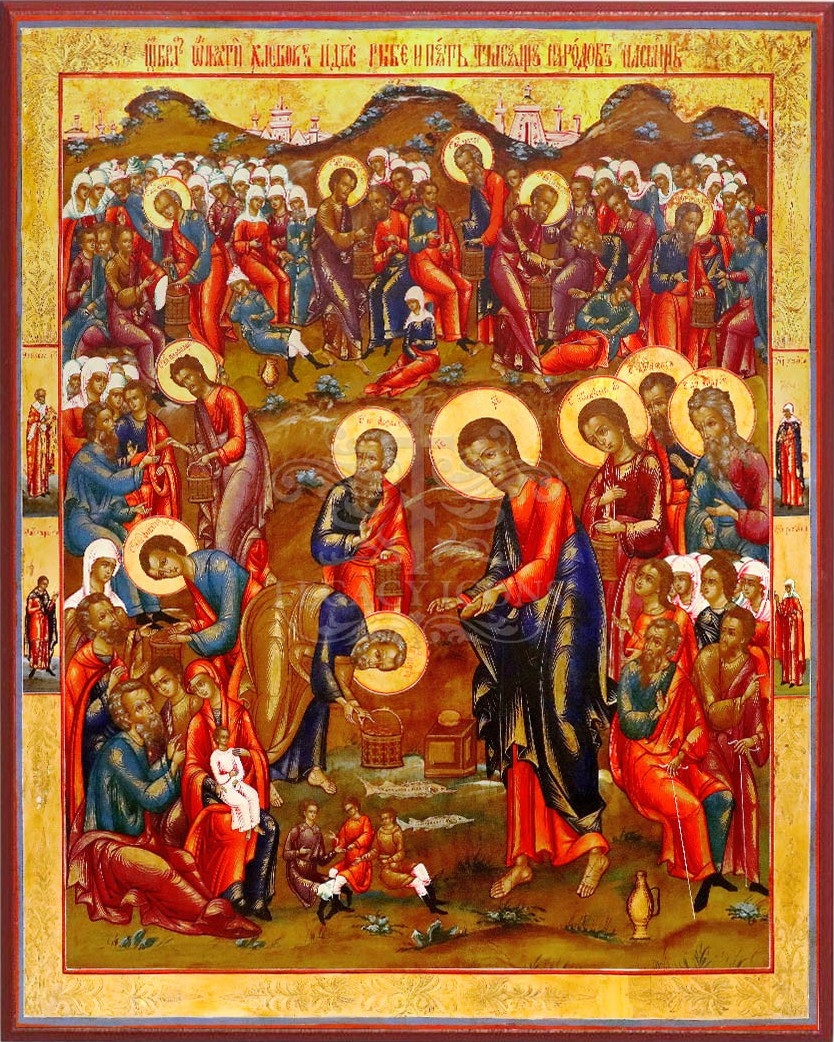
Download Podcast: "Scenes of Eternity"
For weeks we have been reflecting on scenes from St. Matthew's Gospel
which we might call "sightings of God."
Certainly, the first-century Hebrews and Jews who were present would see it that way:
Today, we witness God alone with His people in the Sinai Wilderness, another Divine sighting.
What do these sightings mean? Certainly, they are not portals into a new world order. For example, when the people attempt to make this vision of Manna-at-Sinai permanent by crowning Jesus king, He decisively rebuffs them: "He departed again to the mountain by Himself alone" (Jn 6:15).
So what are these scenes about? Certainly, in the Hebrew Bible they are remembrances calling the people back to themselves and to God. We find them scattered throughout the Torah, the Prophets, and the Psalter. And this is their function in the New Testament as well. But what of our time? Where are the "scenes of eternity" that God uses to rouse us from our spiritual deadness? Which are the scenes that shake us out of the foggy trance which is worldly life?
Our God is always newness and freshness, for He is Creation itself. And His inimitable, irreplaceable power of new life surrounds us constantly. Today, let us consider where we are. And let us together gaze upon His scenes of eternity. For He has lovingly placed them before us that we might once again enter into His eternal Goodness.
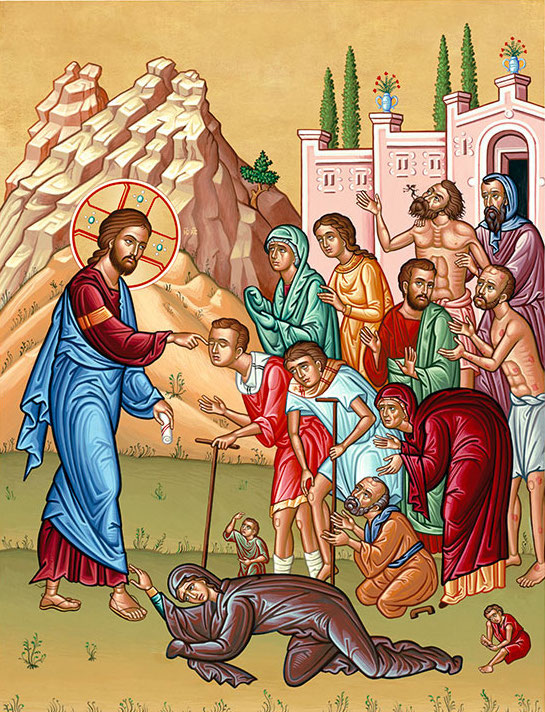
Download Podcast: "Life Where He Is"
Is Jesus a wandering faith-healer? That is the conclusion many have come to as they read our Gospel lesson this morning along with others like it in the four Gospels. But if this were true, then God becomes little more than a guru or a spiritual director helping us get in touch with our own inner powers. This is the model we encounter with Simon the Magus. He approaches Peter in order to buy these healing powers as if they were commodities, like the other spells and potions to be found in his book of sorcery. Commentators rightly see Simon as a gnostic — following the cult of Gnosticism current in the Roman Empire around the time of Jesus.
But this is not only wrong. It leads us to a far distance from God, to a goal of self-sufficiency. Our own inner powers become the thing instead of intimate relationship, and finally union, with God.
Splendid isolation? A figure overbrimming with self-possession trusting in his own powers? We have a model for that separated and prideful man: His name is Satan.
The point of the Kingdom of Heaven is a vast unity, a participation in God's goodness and life-giving energies. It is in that closeness to God and closeness to authentic godly people which is the sphere of Divine life.

Download Podcast: "Such Power Given to Men"
|
"But that you may know that the Son of Man has power on earth
to forgive sins" — then He said to the paralytic, "Arise, take up your bed, and go to your house." And he arose and departed to his house. (Mt 9:6) |
Jesus has just returned from the Tribe of Gad, where he was rejected and pushed away. He returns to home shores, where awaiting Him are a band of followers including a paralytic praying that he will be healed .... along with some number of antagonistic scribes. We might say here is "everybody" — believers and unbelievers, supporters and critics, friends and those who intend no friendship. To all He announces something basic which they all share as the sons (and daughters) of men: "the Son of Man has power on earth."
Should we then term this power on earth "miraculous"? A miracle is said to lie beyond the natural world. But where is, or what is, the natural world? How we answer depends on how we understand ourselves and how we understand the God Who made us and all that we call "the natural world."
Please join us as we reflect upon a favorite word of our time, supernatural, and upon its humble companion: natural. Yet does all our language fall short in the Presence of God's superabundance. "Such powers," Jesus says. Attend! Wisdom!
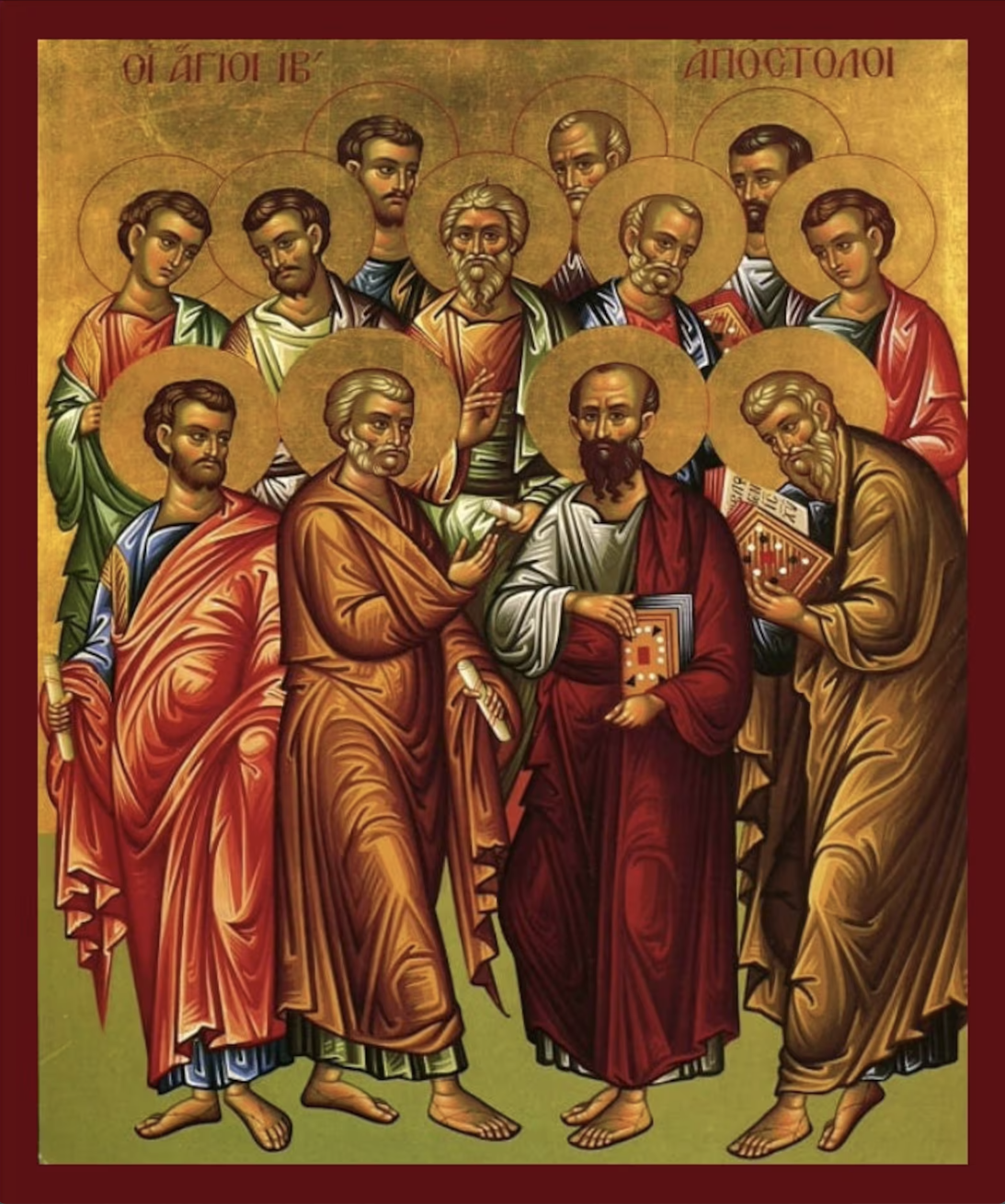
Download Podcast: "There Is the Church"
Manifest for all to see .... they were the lost sheep of Israel sorely in need of a Divine shepherd (Mt 10:6). Nothing less would do. Everything had been tried. Only the original and ancient were to be ordained: the Logos, God's personal and intimate Love, even God Himself sent into their midst. As Isaiah had prophesied, God with us (Isa 7:14).
God would indeed be with us. And before long the good news of a Kingdom of God would be preached. The Church would be founded. The holy sacraments would be given. The near presence of angels would again be seen. The intimacy of God's company, even the touch of God's Own Hand, would be known. And the path of union with God, the consummation of life on earth, theosis, would be renewed.
Which stone blocks and Roman mortar would establish this renewal? Would Solomon's Temple be re-constructed enshrining a cult to David and the Patriarchs before him? No, for God had ordained that the Temple, which had been desecrated by idolatry and the forbidden spilling of blood (Gen 9:8-17), would be razed to the ground, never again to be seen.
The Temple that the Lord God ordained would be very different:
|
.... as living stones .... being built up [as] a spiritual house, a holy priesthood,
to offer up spiritual sacrifices acceptable to God through Jesus Christ. (1 Peter 1:5) |
This Temple would be built from the holiest blocks and stones God had made, "precious," St. Peter says: God's human creatures, bearing His Image, permanent, imperishable, and growing into the full stature of Christ (Eph 4:13) through personal transformation (Rom 12:2). Yes, the cornerstone of this spiritual House would be God's Own Son, but its pillars would consist of the Twelve men, whom Jesus had called from a mountain top.
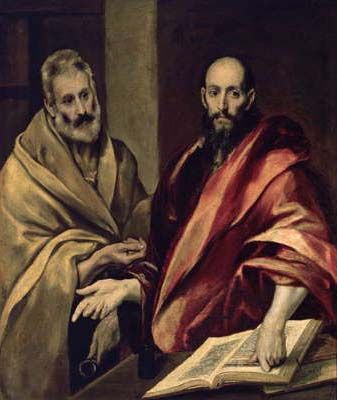
Download Podcast: "Cleaving Souls"
Peter and Paul. Oil and water. The keys that bind versus the sword of liberation. The importance of tradition versus a Gospel that calls us above and beyond the past. The old man set in his ways versus the mercurial, young man who is all things to all people. The cautious man who loses his nerve versus the bold, go-for-broke gambler. The bartering fisherman who demands his pay versus the theology student who follows God without counting the cost. The immovable Chair of St. Peter attempting to claim the world for itself versus the restless Apostle on horseback or in boats or trekking across continents seeking to bring Christ to the world. The man who sought safety versus the explorer always peeling off surfaces, encountering, discovering, finding in the endless process of conversion to Christ.
Our earliest Scripture was written by St. Paul. If you account St. Mark to be St. Peter's amanuensis, then together Peter and Paul laid the foundation for much of what we understand to be Christianity .... at least textually speaking. Let us set aside whatever we are doing and honor these two great Apostles. For without them we would be lost.
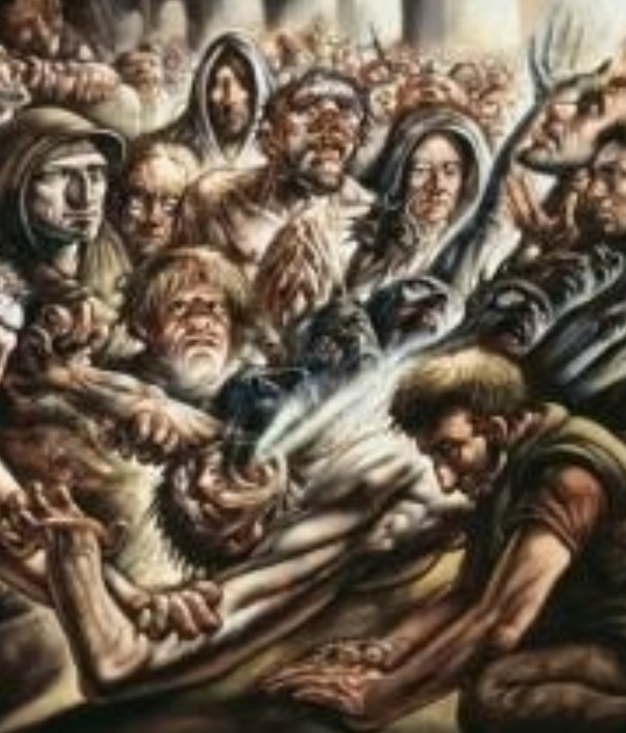
Download Podcast: "Love Among the Lost"
Gad is on the edge. Before its obliteration, the tribe was literally pushed off to the edge of the House of Israel in the Transjordan wilderness. Its founder, the son of a slave, is named for a pagan god, who is itself an icon of worldliness. In the Book of Jeremiah, Gad is a byword for the lost — the undoubted standout among the Ten Lost Tribes.
Yet Jesus' mission to the Gadarenes is scripted straight from the oracles of Isaiah. The language is unmistakable:
|
I have reached out .... to a rebellious people ....
Who sit among the graves, And spend the night in the tombs; Who eat swine's flesh, And the broth of abominable things is in their vessels; Who say, 'Keep to yourself, Do not come near me, ....'" (Isa 65:2-10) |
The visitation of Jesus to the Gadarenes is about the fulfillment of this prophecy. But what does it mean? It turns out that it is about everything: about the purposes of the Advent of God, about the historical urgencies playing out as Jesus is born into the world, and about God's everlasting plan even to the present time. It is the story of a God, Whose love can never fail and about the land of the lost, labyrinths within labyrinths descending even to perdition. "Yet even there," our God declares, "I am here."

Download Podcast: "God's Good Order"
You know the saying, "We can only find what we are looking for." Unless we know what something looks like, we cannot pattern-match it. The faithful centurion of our lesson this morning knows world governance when he sees it. While many in Jerusalem may not be able to see past the petty divisions of marketplace caviling, the centurion looks out upon a vast orderliness and unity: the invincible Roman Empire in which everything proceeds from Caesar, and every thread traces back into Caesar's hand.
Thus, when the centurion approaches the Emperor of the universe, he understands very well who this is: no mere Caesar, but rather the Lord and Maker of all life. As St. John the Theologian would later write, the Beginning and the End, the Alpha and the Omega.
The centurion also understands something that anyone listening to the Lord Jesus would know: His Empire is not of this world. It does not belong to this world (Jn 18:36). For it turns out, Christianity has no imperial ambition of any kind. Save the world? Christianity has not the slightest pretension even to change the material world.
This may be hard to hear for those formed in a "save the world" theology commonly heard in Roman Catholic churches and among Protestants. But know this: we are strangers in a strange land, who are children of God. The Apostles were not sent to carry out healing ministries or to run soup kitchens. They were commanded to announce the Kingdom of God. The healing we seek comes of drawing near to that Kingdom or of asking its King to turns His kindly gaze towards us.
We do not ask Jesus to order our individual households but rather, "We are not worthy that He shouldst come under our roof." The boon we seek, the gift we covet is far different from the material healing of an ailment or a household or a world. It is only and always this: His word: "Only speak the word, O Lord (we pray). And we shall be healed." Here is the concord of all discord. Here is the unity for all brokenness. Here is the Kingdom of God and His good and godly order.
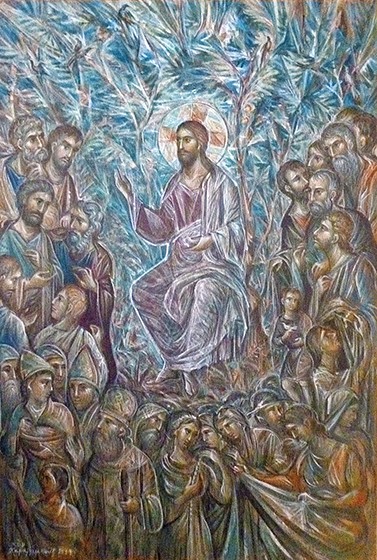
We read that
|
.... the word of God is living and powerful,
and sharper than any two-edged sword, piercing even to the division of soul and spirit, and of joints and marrow, and is a discerner of the thoughts and intents of the heart. (Heb 4:12) |
Read with care (we learn). For the words in our hands quickly penetrate down into the core of our being, to even the subtle motion of our thoughts, rendering Divine judgment. Beware! For it is not we who read now, but rather God who reads us.
Our lesson this morning is a lively example. Many have read these few lines as a "prosperity Gospel." "Seek the Kingdom of God," they claim, "and you will be arrayed in finery beyond the wardrobes of Solomon!" They declare with excitement, "All of these things will be added unto you!" as if this open-ended statement might include the riches of Croesus.
Yet such a reading of God's word proceeds through the "bad eye," Jesus says. And all such claimants will inherit the whirlwind in a vast darkness. It all depends on how we see. This will determine what we see .... and what we will become.
Talk about lively summer reading!
Open God's book and read.
For this is the way into the light
whose
riches are too great for earthly language to compass.
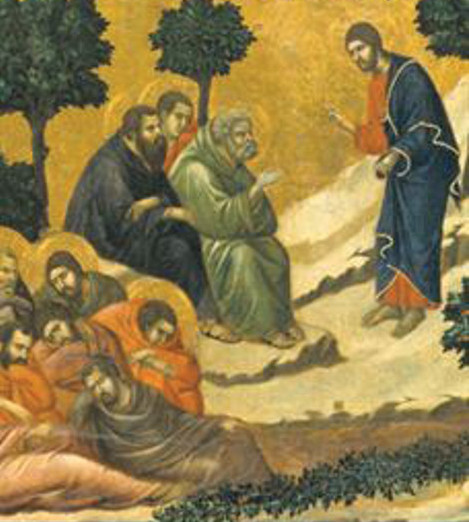
Download Podcast: "Kingdom"
The Lord of Life went about announcing the good news of the Kingdom of God. It has "drawn near," His Forerunner declared. It is "at hand," His Apostles preached to ends of the earth. The Kingdom, He said, and then tirelessly described it. "The Kingdom of Heaven is like unto ...."
Perhaps our ears have grown too dull to hear the Divine beauty of these words. Perhaps we cannot picture the scene with sufficient clarity. The man Jesus stood at the center of the greatest kingdom the world had ever known: the Roman Empire. Jesus from Galilee, beyond despised Samaria, stood before the Temple in Jerusalem dedicated to an aloof god fascinated by the butchery of live animals. A humble carpenter's son went about as an itinerant teacher amongst us preaching a message that overwhelmed all else: the Kingdom of God was opening to us: with its starry host, with its Omnipotent Father, the Kingdom. For the God of all, of the Romans, of the Jews, of the Hebrew Patriarchs, was with us. And Jesus revealed that God His Father was awaiting each one of us.
The Kingdom of Heaven is like unto a great King who set out a feast and then called everyone .... out of the highways and the hedges and the lanes. It is now and here and alive within each human heart. The Kingdom comes. And its coming on earth, person by person, soul by soul, has been given over to us. The King awaits our response to His marvelous announcment and invitation. He awaits us even now and to the present moment.
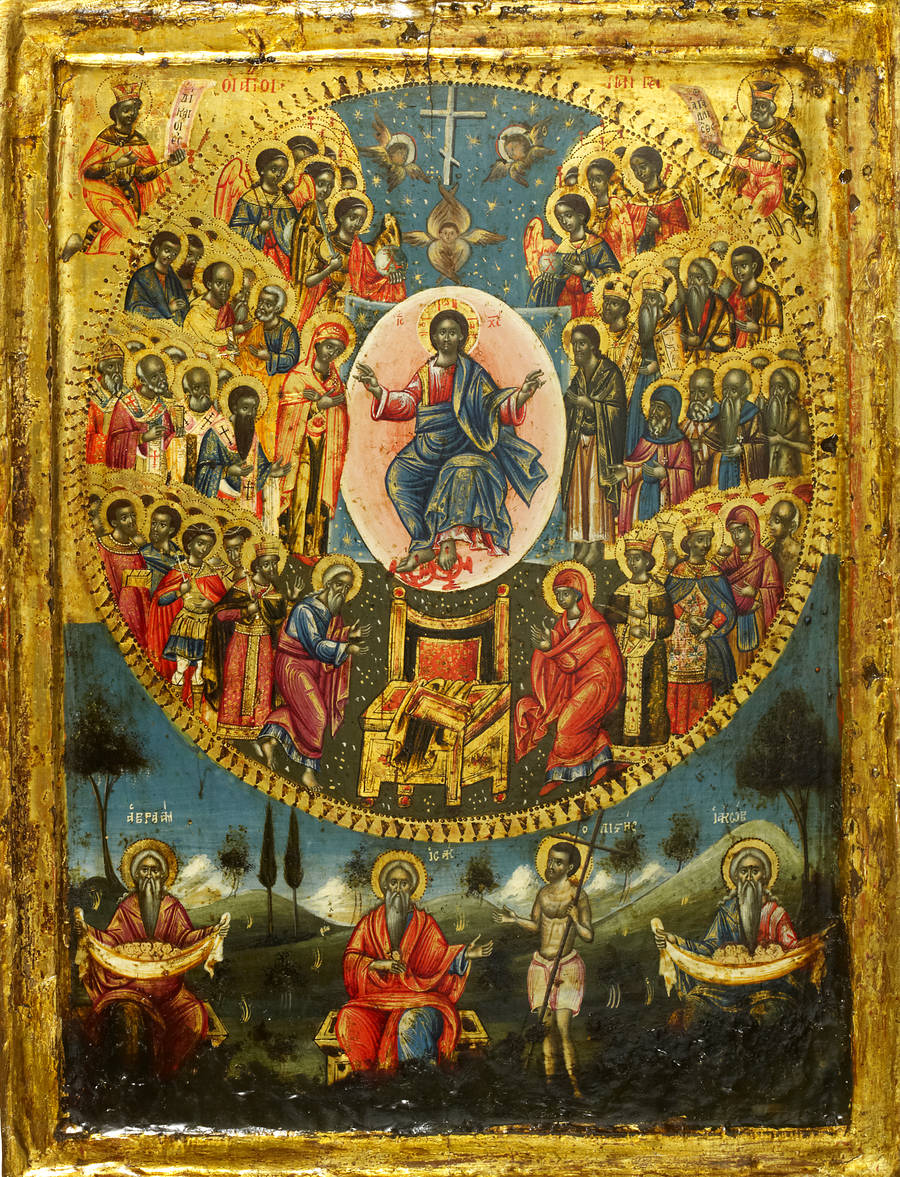
Download Podcast: "The Magic Kingdom"
Our lesson for All Saints Day has been called a "difficult Gospel" — demanding that we choose between mother and father or God, between son and daughter or God. Yet, at no time in our history has this Gospel been more intelligible. For we live through precisely this cruel tension every day.
What is the solution to this excruciating riddle? Mysteriously, Jesus reveals that it is the Cross. The Cross is where God meets with the world. The Cross is the intersection of God's infinite love and His perfect justice. And our loved ones here on earth and our love of God must also be an intersection, a crossroads, where the disjointed world faces Heaven.
This is no side-issue but the centerpiece of Jesus' ministry revealed in the Beatitudes, which we call the Proverbs of Heaven, for they are not about success in the world but rather reveal the ways of Heaven.
These reliable promises of Christ are written for the saints throughout the ages, who were crushed in the torsion between Heavenly and earthly life. Indeed, the twentieth-century martyrs exceed the number of all those before them. Christ's promises hold true for the saints of our time, too — all who are faithful, come what may, during this dark time.
Yet, the darkness will scatter, just as our own lives will pass, in a twinkling, yet precious in God's sight if we are faithful and welcomed into the brilliant light of His Magic Kingdom.
The place where the rebellious world faces Heaven is the place where we see God's gentle ways most clearly. His Proverbs bespeak a world which is at hand .... though not yet here. They reveal His Kingdom as the place of abiding happiness and peace and, yes, of magic.
Do not fail to teach your children and your grandchildren. For without your love and guidance, they will fail and suffer, and you will have forfeited your aspiration ever to be a saint, whose wisdom has become a matter of eternal life and death.
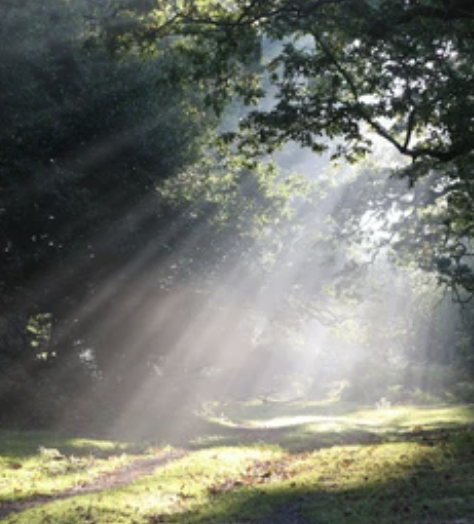
Download Podcast: "Superabundance"
Today we behold a culmination. What God had made — a Heaven on earth and an earth near to Heaven — had been lost. Fellowship with God had been lost. In the period just before and just after the Nativity of our Lord, fellowship with angels was ridiculed by Temple authorities, who banned the subject from serious discourse. But then God touched the earth with His Own Person. And "Kingdom of Heaven" was proclaimed, a phrase not attested in the Hebrew Scriptures of Judah-ism.
Today, we behold a culmination. God has acted. He has caused His Creation to be whole again. For in order that the world be made whole, God must be Present. This He had accomplished in becoming organically united to the Creation at the Incarnation of His Son. And, now, today He has flooded the earth with the Fullness of His Presence through the Holy Spirit.
This is why the liturgical color of Pentecost is green: the immanence of eternal spring, of Paradise, had lay hidden since the Fall of Mankind. But now, with the giving of God's Holy Spirit, it breaks forth, throwing out new, green shoots everywhere — an overflowing which no power in Heaven or earth might resist. And vistas everywhere shimmer with Divine beauty.

Download Podcast: "Where Sheep May Safely Graze"
Where would the faithful be in "a live and let live" world? How would their children fare in a life where "no one judges," and everyone has her or his own truth? Such a space, history has taught, is quickly hi-jacked. And the ones who called themselves "liberators" hastily enforce their own orthodoxies in merciless programs of indoctrination. Consider the People's Republic of China or the Soviet Union under Stalin or the United States of today, in which one's name or career would be destroyed, where one's family would be persecuted, should one disagree with the liberationist regime's pronouncements.
In matters of conscience, the United States is said to have a refuge, which is the Church. But the Church is under attack even now in the Supreme Court. And many shepherds, in the West especially, have proved to be themselves merciless wolves.
This is why Holy Orthodoxy is growing in the West. For here one finds faithful bishops refusing to bend or bow to the idols of contemporary culture. This is the essence of the First Ecumenical Council: Council Fathers united in Orthodox belief and faith refusing to bend to the new orthodoxy, called Arianism, which had developed a stranglehold over the Church of the fourth century.
The successors to these Orthodox Bishops are our episcopal shepherds today. Our Vicar General has called them "superheroes." And who could disagree? For the foe they oppose is a global colossus whose seductive tendrils reach into virtually every culture on earth. Nonetheless, their episcopal rule is sure. They will not compromise the sacraments to suit the wolves already raiding Christian flocks worldwide. They will not alter the teachings of the Church to suit the powerbrokers who surround them. They live in poverty, constant need, and assaults on every side. They pour themselves out like a libation. But their serenity cannot be invaded nor their wills broken.
As we celebrate the Fathers of the First Council let us not forget to venerate their descendents who watch over the flocks of today. For be certain of this: these holy men are the last refuge.

Download Podcast: "Heavenly"
The atmosphere of the early faith was so thick with Heaven's presence that one felt it might rain angels and Heavenly music at any moment. Our most beloved God is defined in terms of His Heaven. We are to address Him as "Our Father Who Art in Heaven ...." (Mt 6:9).
God the Father sent the Son into our world, for His people were lost. But this was a very strange kind of "lost." For they were already present where they should be. But they were not able to see it, to recognize it, to love it, and to love Him. This would be the aim and purpose of the Advent of the Son of God: to rouse them from this poisonous trance. "The Kingdom of Heaven is all around you," His Forerunner, His Apostles, and His Own Most Royal Person would announce.
This is no innovation, no novelty, no invented religion. For this was the state of the world when it was made: an abundance of angels passing easily between earth (called Paradise) and God's marvelous Kingdom. The King of Heaven was a familiar to the first man and first woman. This was the case for Abram and Sarai. Abram spoke to God. Angels attended Abram and Sarai in times of crisis as in the rescue of Lot's family from Sodom. And, the Orthodox Church teaches, the Holy Trinity visited Abraham and Sarah at the Oaks of Mamre.
This is the primary meaning of the Advent of God. Is it not announced in its very form? God is among us. He has prepared a place for us. He is with us even to the end of the age. And this is the meaning of the Risen Christ among us and of His Ascension — a fluid situation in which boundaries between the Heavenly and the earthly vanish .... for those who have hearts to live this Heavenly life.
As it was in Eden, the Person of God, the Comforter, and multitudes of His angels pass easily between Heaven and earth. So that we "are no longer strangers .... but fellow citizens with the saints and members of the household of God" (Eph 2:19). We are no longer lost. But like Jacob, we might say, "Surely the Lord is in this place, and I did not know it" (Gen 28:16).
Join us at the Hermitage as we settle into this goodly household. For the life with God is not out there. It is in here, in our hearts, in our souls, and always on our minds.
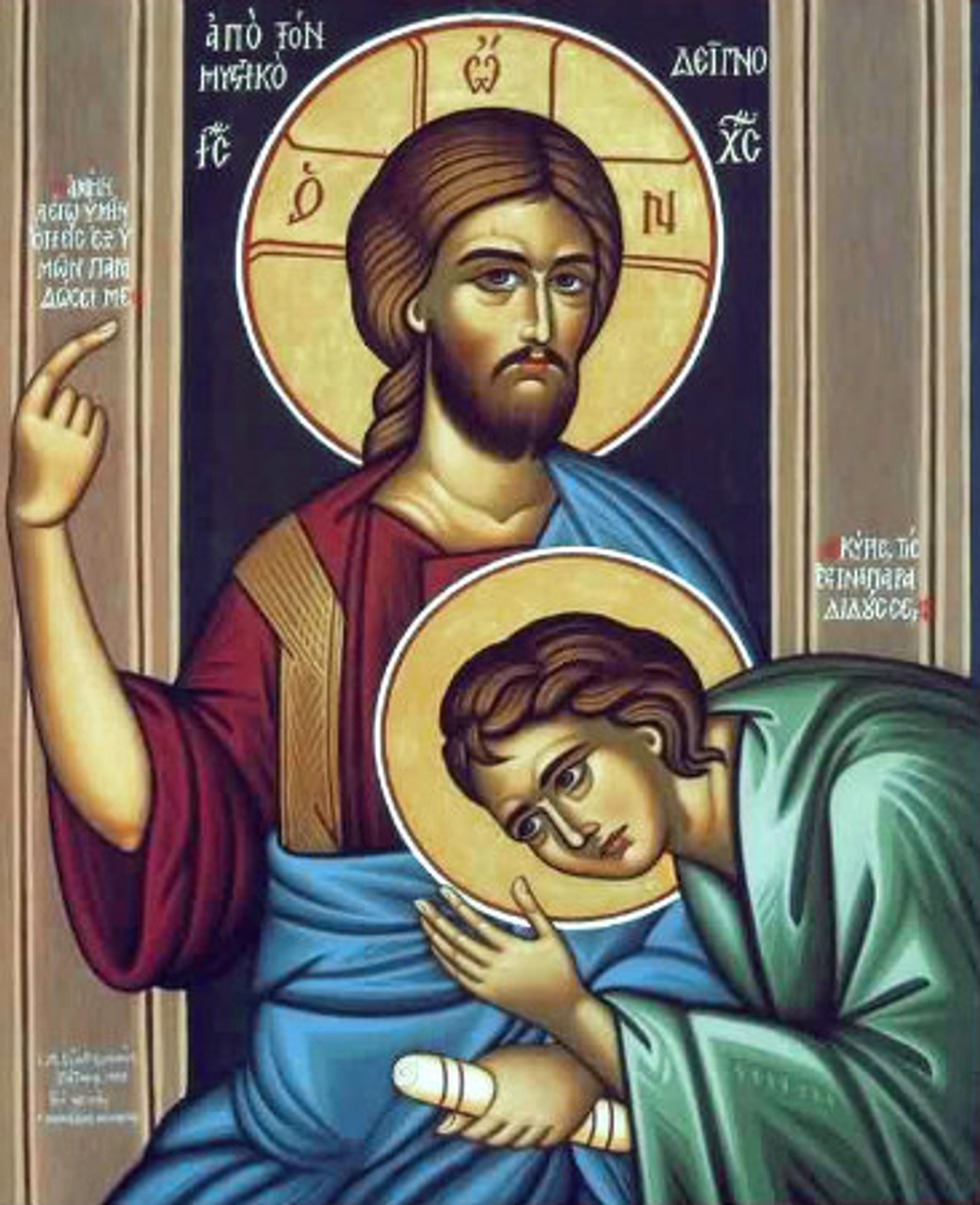
Download Podcast: "The Beloved"
Welcome to the feast day of St. John, Apostle, Evangelist, Divine, Blessed Disciple, and Theologian. Crown him with many crowns! Today we celebrate his life, which was a long one. He was the only one of the Twelve to stand at the foot of the Cross with the Most Holy Mother of God and the only one not to be martyred. And if his life were preserved until old age, we today realize that he had much to do — to prepare all of us for the life we call Holy Orthodoxy. In the frailty of old age, he was transported from village to village that children might touch the head that lay on Jesus' breast.
Last week we described his Gospel as leading through the highest summits of human history. The early Church referred to the Beloved Disciple as "the eagle," whose magnificent wings rode the thermals of Heaven's heights. For St. John has set before us what we might call the "the Theosis Gospel," our primary guide to achieving unity with God and becoming "the Beloved," as he was called.
If theosis is the meaning, purpose, and highest aim of a human life, then St. John's writings describe this consummation not only for each person, but for the entire lifeworld, depicted in the Book of Revelation. Setting out an allegory of the First Temple, where the High Priest became united with God in a splendid union of Divine Power, St. John extrapolates from personal transformation to nothing less than the theosis of the world — the assumption of earth into the Kingdom of God.
Join us today as we go back to basics .... and upward through the high passes of Heaven's supernal summits. This is our sacred history and our empyreal future, which is the element of eternity in which all is in all.
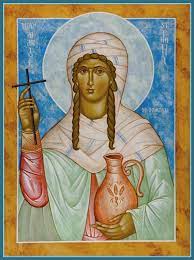
Download Podcast: "A Beginning"
In the Name of the Father and of the Son and of the Holy Ghost.
Amen.
Today we have arrived to a mountain-top moment in a Gospel which leads through the highest summmits in human history. The Director of all cosmic dramas has the set the scene with care and all-seeing wisdom. He has selected the perfect setting. He approaches the perfect character. He will speak to all the human lifeworld unto the ages of ages through this passage, yet He speaks powerfully to all those around Him Who live in a particular historical locus and in a particular era.
He brings up the lights with a special intensity with these words:
"Believe me. The hour is coming."
And
we stand back and take in what is laid before us:
How blind we have been to imagine St. Paul to be this very figure:
Do we see the mirror image? Let us ponder it more deeply. For in this we shall unearth more and more of our own salvation.
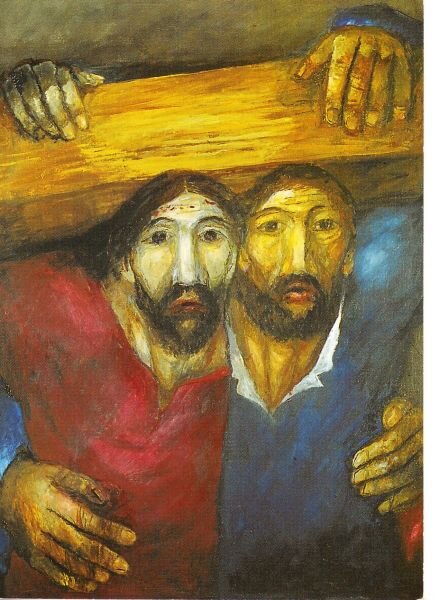
May 13 (April 31, 2023, Holy Calendar), End of Sabbatical
How many times must I learn the same lesson? God's human creatures commonly live in delusion. And a most common one is that we are masters of our lives. We are the deciders. We choose the path ahead .... but we do not. My vocation is to struggle forward such that I can in love and obedience. Is that not true for all of us? For we follow the Obedient One (Rom 5:19). Ours is to pick up the cross as He did.
God's Providence has the final word. If we are to lose our convent, then we will lose it .... but not living in disobedience as we do so, but rather faithfully. For our monastery lives in us, not the other way around.
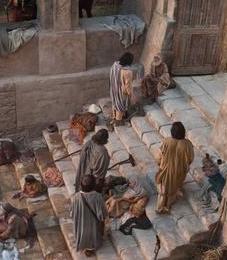
Download Podcast: "The House of Shame"
Sabbatical Leave.
The reflection for this Sunday is from May 27, 2020 (Holy Calendar).
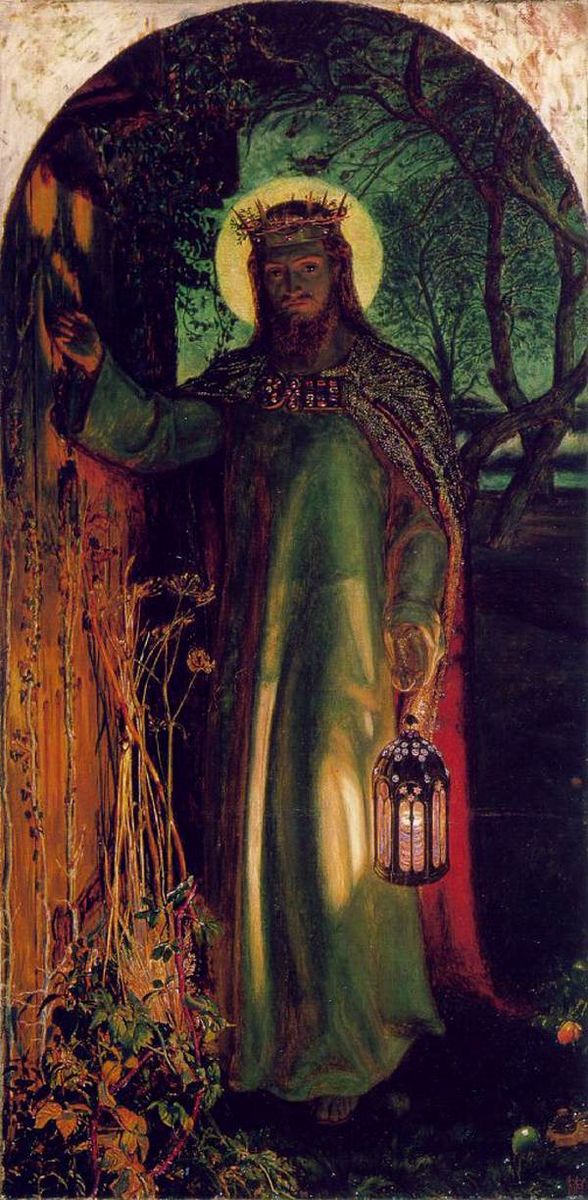
Download Podcast: "The Light of the World"
With today's posting, Our Lady of the Angels Hermitage sadly must take a sabbatical leave from our ministry of spiritual reflections. We have entered a crisis that threatens to close down our monastic compound and perhaps force us to leave. We, therefore, offer to our readers a "message in a bottle" — the few words a teacher would wish to say to followers of Jesus if these were to be his last words.
We pray that we will return in 2024. But we cannot be confident this would be true. Can anyone of our advanced years make promises about the future?
Please pray for us — Sr. Mary Anne, Sr. Mary Martha, and Fr. Columba, — as we pray for all of you! May the God of all hope and peace and light continue to +BLESS+ you!

Download Podcast: "The Glyph of Divine Life"
What are the Gospels about? We are told from the beginning .... and then over and over again. They are about Divine Life — the Life of Heaven's Kingdom, which has drawn near. This Life is overbrimming with the nature of God — the nature He set in all humans, and the setting of original Eden. What exactly is this nature? It is love. God is love. It turns out that love is the only Divine property to be found on the earth, apart from the eternal life that is hidden within each human soul.
How could one symbolize so complex a thing? A static symbol will not do. So which glyph might tell the story that stirs souls and warms hearts? "Go to the Holy Land!" a nun recently told me. "You will find them everywhere!" And she is right. For the earliest faith was "Kingdom of Heaven faith" — and the symbol that told the story, that pointed out to eternity-infinity, yet could be written with a stroke in the sand, was IXTHYS, the sign of the fish.
Let us peer into this glyph. Let us unfurl the narratives contained with in it. In doing this, you will have unfolded a holy mystery going into the hearts of our earliest Christian ancestors.
Let us return to the Upper Room on this St. Thomas Sunday and read the hearts of the men we find there. For these are the same hearts we have today — fearing, believing, striving with one another, and then bound together in the Savior's love. Here we will find ourselves, and here we will grasp the meaning of the Christian faith.
![]()
Download Podcast:
"Pachal Homily of St. John Chrysostom"
From the Apostolic Tradition of Hippolytus (215 A.D):
"Who, when He was delivered to voluntary suffering,
in order to dissolve death,
and break the chains of the devil,
and tread down Hell,
and bring the just to the light,
and set the limit,
and manifest the resurrection,
taking the bread, and giving thanks to You, said,
"'Take, eat, for This is My Body Which is broken for you.'"
Likewise the chalice, saying,
"'This is My Blood Which is shed for you.
Whenever you do this, do this [in] memory of Me.'"
"Trampling down death by death
And on those in the tombs bestowing life."
Christos anesti! Christos voskrese!
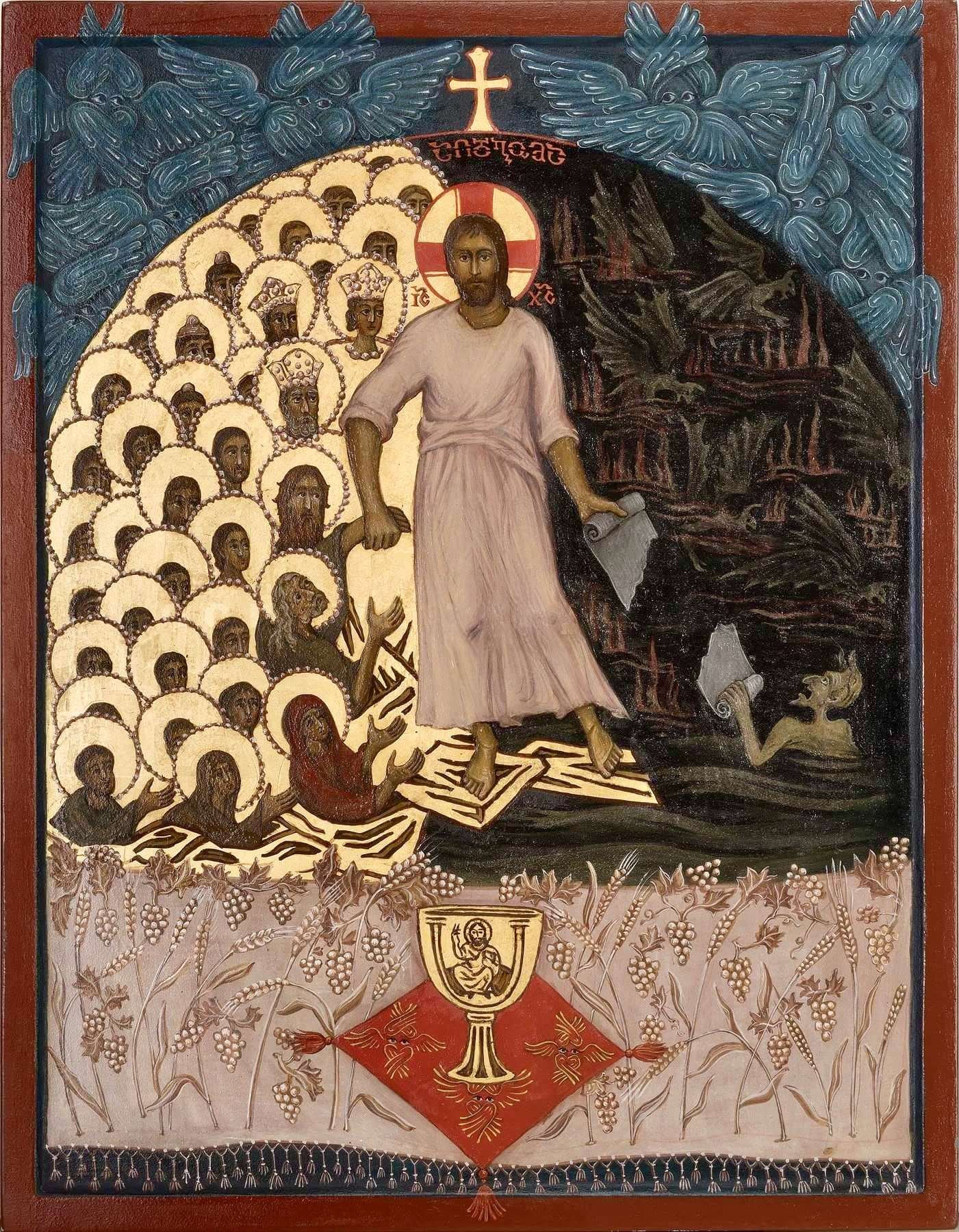
Download Podcast: "A Ransom for Many" April 2 (April 15, 2023, Holy Calendar), "A Ransom for Many"
On this Holy Saturday, we are able to understand much about the Incarnation of God by meditating on the word ransom. The Lord Himself tells us that this is the purpose of His life on earth: "The Son of Man [came] .... to give His life a ransom for many" (Mt 20:28). This ransom can be traced from the moment He departs from His expansive glory in the Kingdom of God and then at each step of His earthly life, His Passion, His death, and beyond.
Let us follow Him reflecting on this magnificent ransom. Isn't that what He has commanded us to do? Let us follow Him.
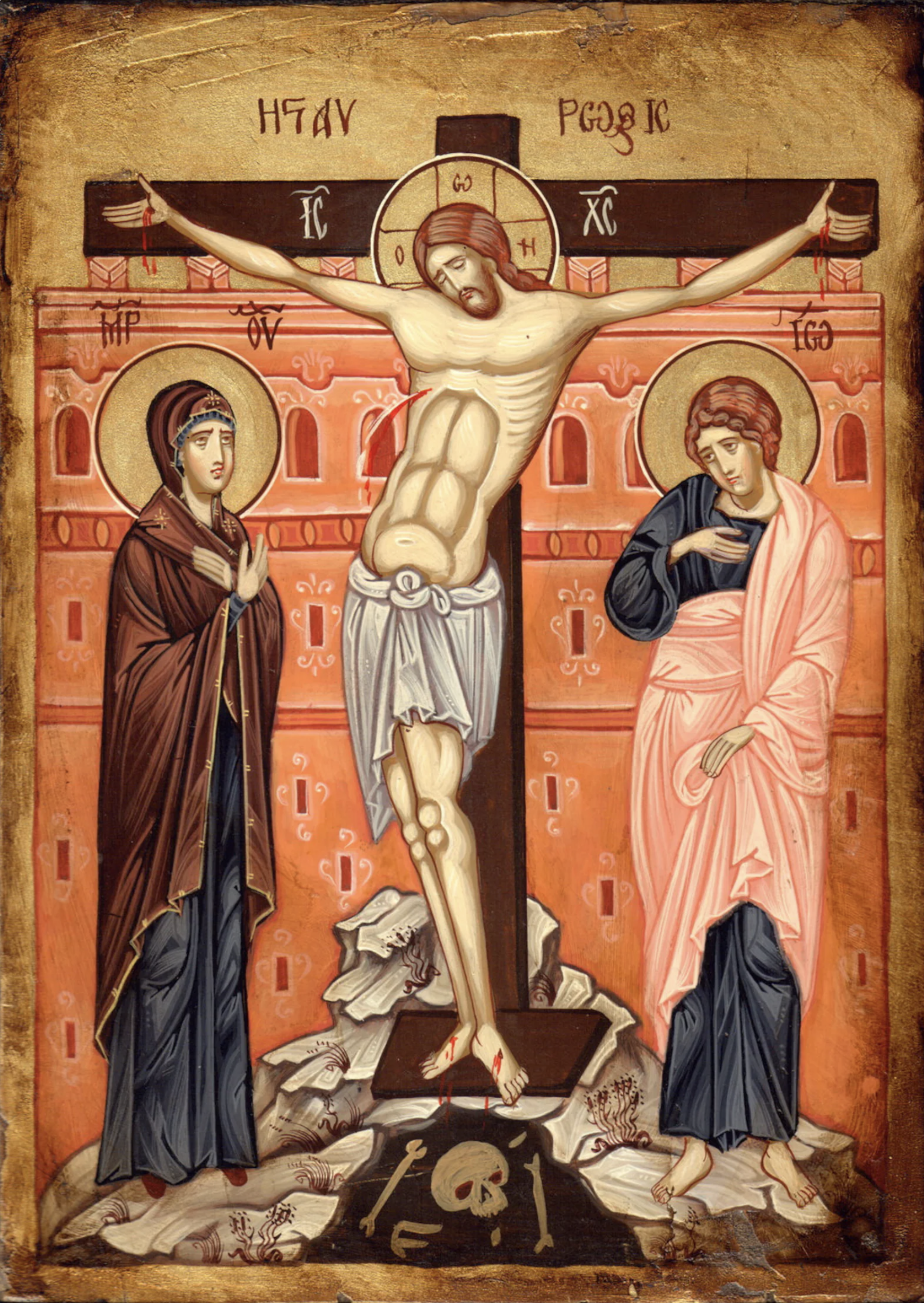
Download Podcast: "I AM Who I AM" April 1 (April 14, 2023, Holy Calendar), I AM Who I AM
And he who has seen has testified, and his testimony is true;
and he knows that he is telling the truth, so that you may believe.
The burning point of our Christian tradition is Truth. We say that the truth will out. Certainly, all will be revealed about ourselves when the debris of our lives is burned off at our death. For the One Who alone is Truth will turn His all-seeing, all-knowing gaze at each of us. And we will face Him in this blinding light, this consuming fire, and we will be known in our nakedness. And truth will out.
At our death a new situation pertains. Things will be as they truly are as He Is as He Is .... without variation, without shadow, without blemish. Says YHWH to Moses, "Tell them
|
"I AM WHO I AM." And He said, "Thus you shall say
to the children of Israel, 'I AM has sent me.'" (Exod 3:14) |
And at our deaths everyone will be sent to Him Who Is.
Each year on this day, we behold the most audacious lie in human history — against the One Who is the Way and the Truth, false charges, mockeries of justice, and a sanctioned and ratified murder. What words can be offered as a defense? That we did not know what we were doing is not so, but rather this was Jesus' heroic plea to the Father on our behalf as He laid His life down for His friends.
He stood where we should have stood in the hope that at last we would own up and take our rightful place .... as Pythias had for Damon, as Damon had for Pythias. Truly, it was not Jesus Who was put on trial but ourselves. God tested us with the greatest test of our sad history: He placed Himself — vulnerable, weak, needful — into our hands. Three Kings knelt before this helpless Child laying precious gifts beside a make-shift cradle in order to model for us the dignity and veneration that was, and is, our sacred obligation. But we would not listen .... and will not listen still.
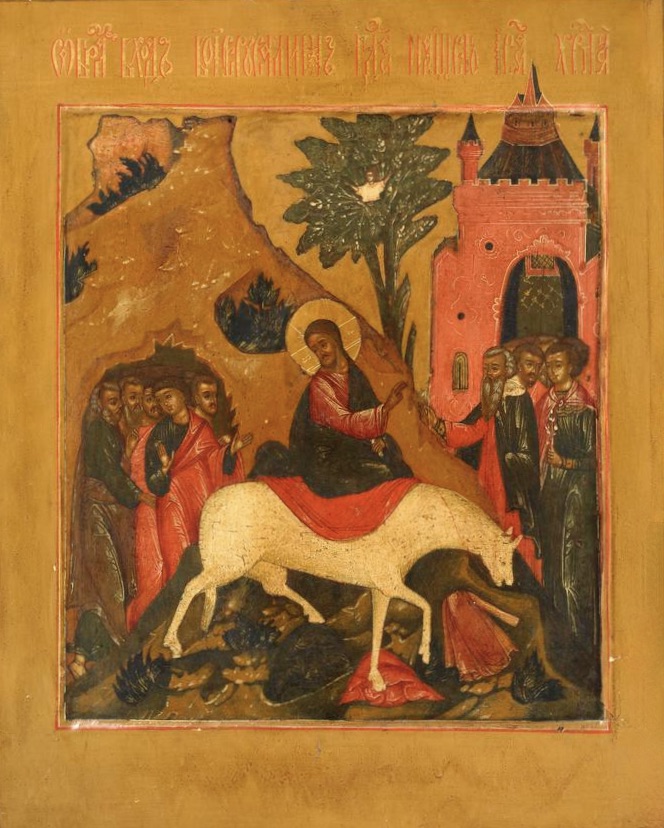
Download Podcast: "Son of David" April 9 (March 27, 2023, Holy Calendar), Son of David
Our Priest-King Melchizedek has entered Salem. He is not a priest in the line of Aaron. Not a Levite. Not a Sadducee. But far more ancient than that. People wave palms at Him erecting a living wall of Eden on either side recalling the First Temple. Is this not the expected behavior of people who followed and believed in the Man of Eden, John the Baptist? Could we not call the Baptist's religion, the "Eden religion" — the restoration of purity and the company of God?
But the Baptist was merely a royal herald who preceded the King's progress. "Hear ye! Hear ye," he said. "The Kingdom of Heaven has drawn near! Prepare yourselves!" And we see Him even now riding into the holy precincts of our lives, too. Are we ready?! Is our inner kingdom prepared?! Let this be our only thought and occupation. For He comes. He comes. And this is what will matter in the end. No army of theologians or "spin" or seductive innovation can impede His royal progress.
His Sovereign presence cannot be perturbed. He is Lord of all He surveys. And His destination is each one of our souls.
Ride on! Ride on in majesty!
Hark! All the tribes Hosanna cry.
O Christ, your triumphs now begin
o'er captive death and conquered sin.
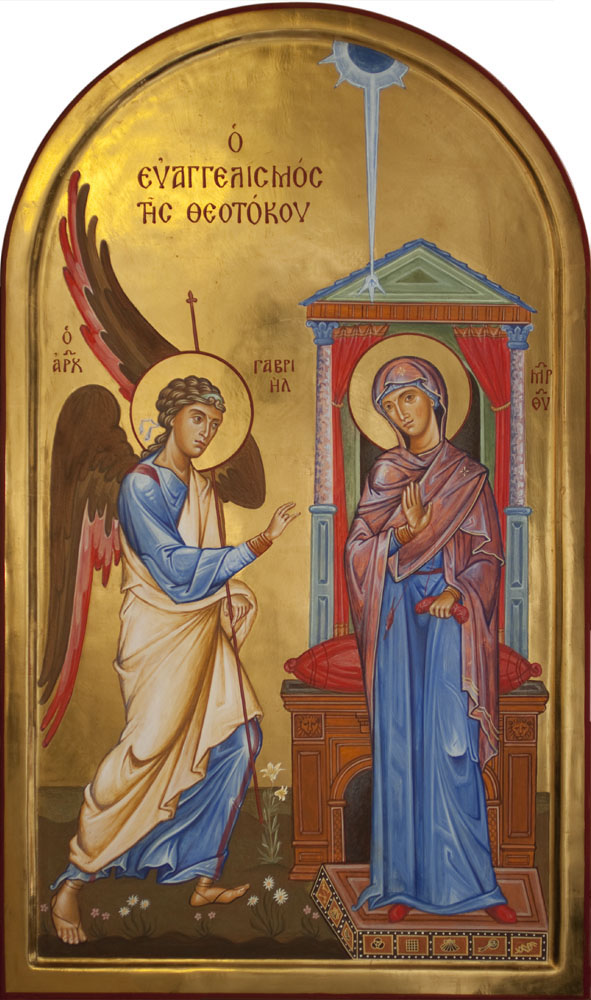
Download Podcast: "Hail, Mary" April 7 (March 25, 2023, Holy Calendar), "Hail, Mary!"
Above all humans, God is with that twelve-year-old girl who re-opened the doors to Eden, who set aside her personal happiness and freedom to become the handmaid to God. And that is her hallmark and sign:
| Hail, Mary! The Lord is with you! |
On this Feast of the Annunciation let us reverence the Most Holy Theotokos. Let us follow her, setting aside our freedom that we too might be handmaids and servants. Let us ponder liberation attained through obedience. And let us meditate on that greatest achievement of the human will to be conformed in every way to God's. For we too receive annunciations. We too are called by God. And we also stand at the crossroads of human history.
Well might we grieve at the the evil that proceeds around us on every side, which seeks to deform the precious God-given gift of our children. But we must never forget: this evil cannot succeed without our general consent.
Yes, I know that we can do nothing without Him (Jn 15:5). But be assured that He has also taught another principle that joins it: He can do nothing without us. It is this gift of our sovereign freedom, which God must wait upon. Ask a twelve-year-old girl upon whom the fate of humanity depended.
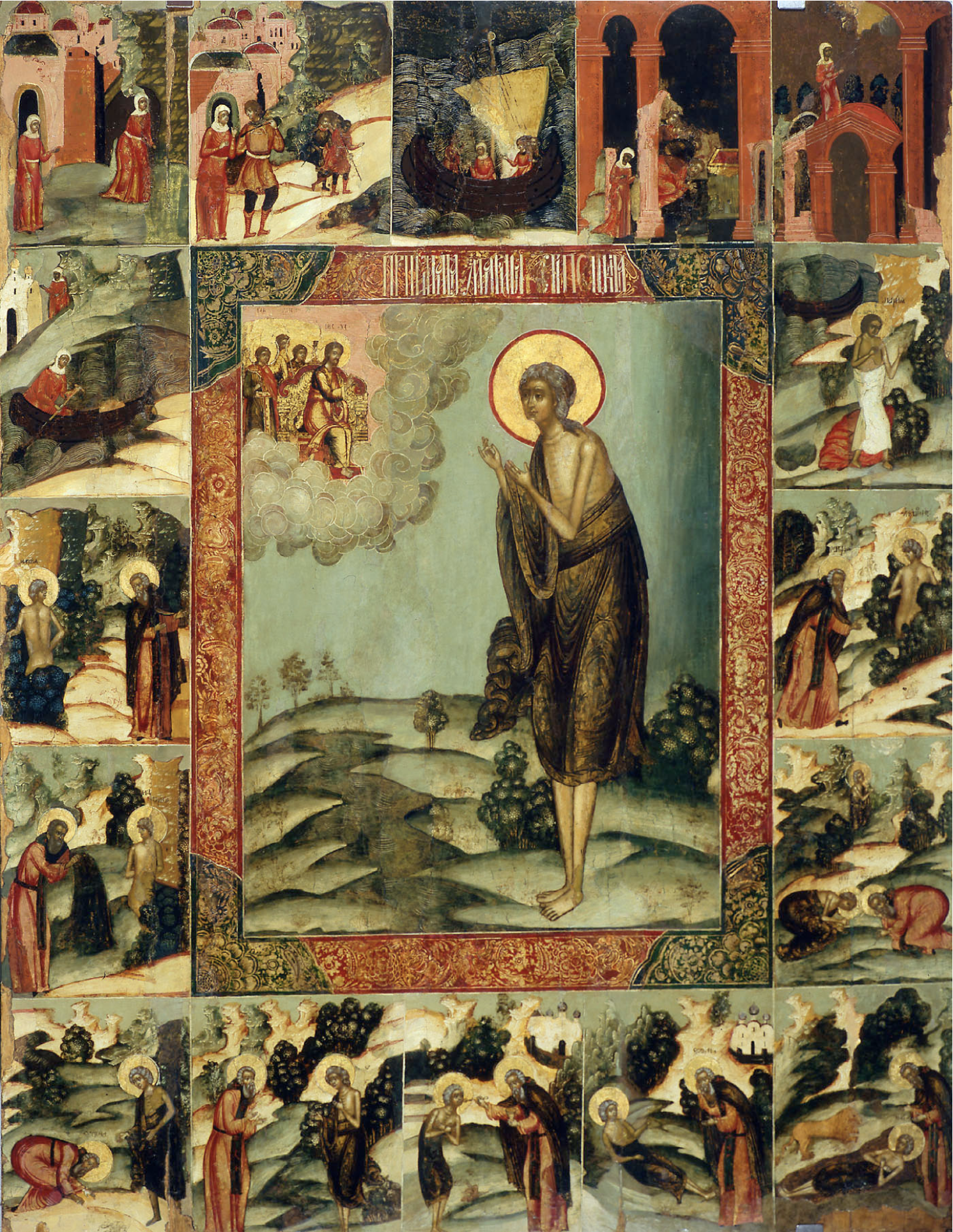
Download Podcast: "In a Trance" April 2 (March 20, 2023, Holy Calendar), In a Trance
In our time, promiscuity has gone beyond mere acceptance. It can now fairly be called an American custom — what is expected on a date. Once, depravity would certainly ruin one's reputation. Now, speaking against it would prove ruinous. And who would dispute that sex, in all its varieties, is the preoccupation of our age?
When sexual compulsion gets out of control (and it always gets out of control), secular society medicalizes it. Advocates push for recognition of sexual compulsion in the "bible" of psychiatry, the DSM-5. But it is not an illness subject to medical care. Moreover, we will find no bacterium, no virus, no gene, no chemical as the cause for promiscuity. By and large, it is not linked to head injury or to trauma. For sexuality is fundamentally a spiritual category. It is intimately tied to the soul. Its element is the arena of our will and consent. A telltale sign of spiritual struggle is the attempt to break free of the soul, divorcing the body from the person whose it is.
Any serious discussion of hypersexuality (to use the clinical term) must also be a discussion of evil, the nature of evil, and of demons. Indeed, even un-churched people talk about it this way, about a man or woman's "demons." We who are churched must take this seriously. For God surely does. Our God — Who holds sexuality, marriage, and family as His precious building blocks for the whole human lifeworld — has built a high wall around this garden of purity with every kind of thorn and beast. We must do no less .... lest we find ourselves living in a trance. And how many of us can claim to be completely free of the trance of sexuality in this hyper-eroticized culture?
Please join us at the Hermitage this week as we go back to basics concerning what is arguably the most important subject in the world.
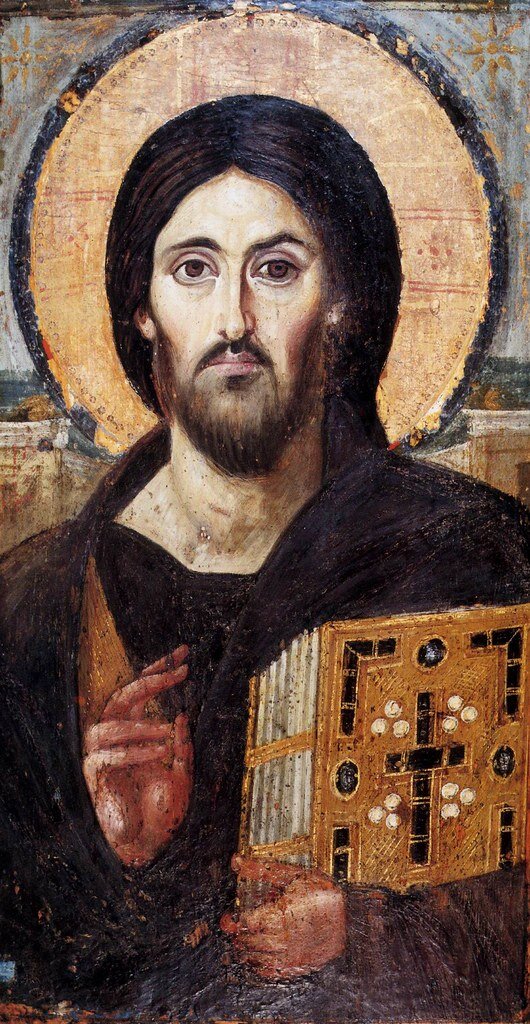
Download Podcast: "How Long?" March 26 (March 13, 2023, Holy Calendar), How Long?
"How long must I stay here with you?! How long must I bear with you?!" (Mt 17:17)
He cries out from His prison cell, "How long?!" And which prison is this? It is the narrow darkness He has chosen for our sakes: the confines of our human nature. At His Conception, He laid His life down for His friends .... freely, willingly, and in a profound statement of love, setting aside the cosmic expansiveness of His unbounded Divinity (Jn 17:5).
In His human nature He cries out. Have you heard His cries? Have you met the flinty Jesus? Many claim they have not seen Him. Cherishing the meek and mild Jesus, identifying with the Prince of Peace, knowing His unconditional love and mercy, we have filtered out the Jesus of flint. We cannot perceive Him.
Nonetheless, He is there, abundantly attested in the Gospels. Last week, we stood in the midst of a raucous scene at the Temple with an enraged Jesus at the center. St. John slows down the action of his narrative to detail Him making a whip of individual cords and then lashing and beating men who desecrated what should have been sacred space.
Let us open our minds and hearts to the Jesus many prefer not to know .... or who even deny exists. Let us humble ourselves to be corrected. Let us hear His just complaint against us. For we cannot be guided by Him if we do not follow Him. And if we do not follow Him, then our lives were lived in vain and our attachment to the culture of death will have no end.
The angels have lowered a ladder into the stone pit of our dungeons. But it must be ourselves who consent to climb.
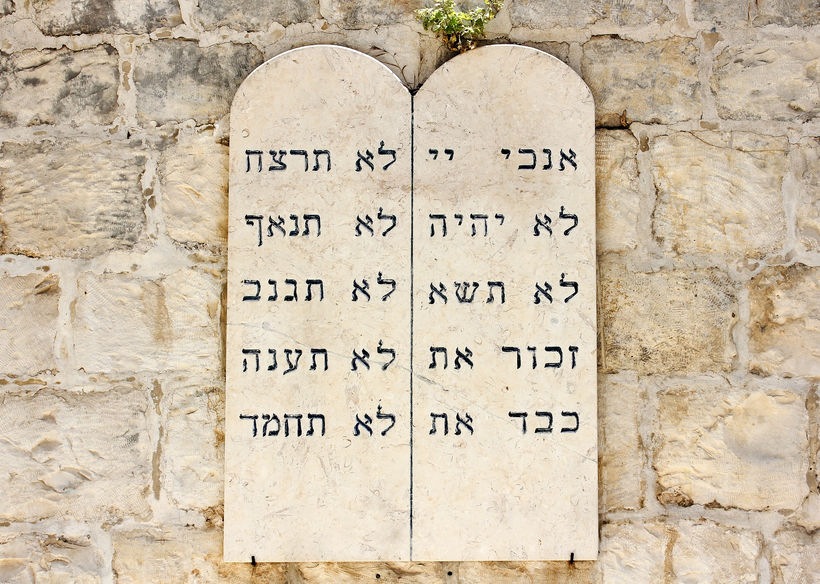
Download Podcast: "Do You Trade?" March 19 (March 6, 2023, Holy Calendar), Do You Trade?
If you were an anthropologist assigned to explain the Temple in Jerusalem, which had been underwritten and supervised by powerful Mesopotamian overlords, what would you say? You would come to the conclusion that it was erected for the purpose of offering animal sacrifice to a god requiring this special form of appeasement. Since such sacrifice is primary, then why does it not appear in the Ten Commandments? Why does Jesus never mention this cultic activity except to protest against it in a riotous demonstration (Jn 2:15)? Jesus does not teach that blood offerings must be traded in exchange for the safety of your soul. Indeed, Jesus does not teach that the soul's safety ever could be bought. Instead, He talks about One-ness with the Father as He and the Father are One (Jn 17:21). How does Jesus achieve this At-one-ment with the Father? Is it through animal sacrifice? No, He teaches that we are One with Him — He will call us His friends — if we will live up to the commandments of God (Jn 15:10), the greatest of which is love.
How often we have read Jesus' question: "What will a man give in exchange for his soul?" without considering the context and meaning He intended. Too often translations are tendentious. The Greek verb in this sentence means "to swap" or "to trade," but the verb "to give" was chosen at the service of Protestant theology. By contrast, the verb "to trade" is the more faithful rendering and it speaks to the culture in which Jesus taught, and, in particular, to the theology He opposed. For He was surrounded by religionists who sought to trade in exchange for their salvation.
Let us approach this subject with care. For it involves several large-scale issues, including the difference between the Holy Cross and the crosses we are to bear if we are to follow Him. It all revolves around the acceptable sacrifices required by God .... and our salvation. These things are not to be passed over lightly. But, rather, they demand our most sober attention. Do you hear the gravity of Jesus' tone? Do you see the fierce gaze He fixes on everyone who sees and hears him as He asks His pointed question? Who has eyes let him see! Who has ears let him hear!
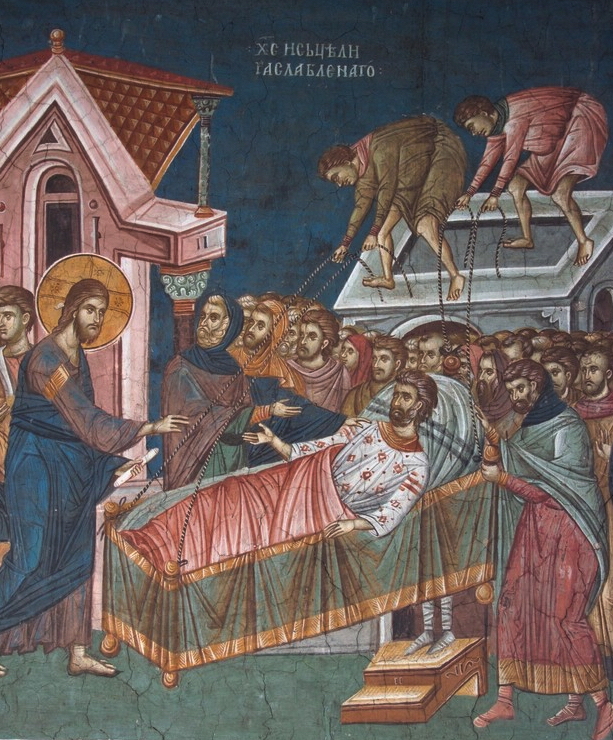
Download Podcast: "Return of the King" March 12 (February 27, 2023, Holy Calendar), Return of the King
They uncovered the roof and had broken through. Is not this the case with Jesus? Has not the Father uncovered the ceiling of our world and broken through? Has He not flooded our dark dwelling place with Heavenly light? Has He not lowered His Son presenting us with nearly a paralytic .... at least by Heaven's standard? For to be one of us — frail, vulnerable, human, and in that sense crippled — Jesus was emptied of the glory He had before the world was made.
The roof of our world was uncovered at His birth, and Heaven appeared amongst us. This is the singular event He reveals to His future Apostles at the moment of their calling. "You shall see Heaven open," He told them.
In this morning's lesson, the "breaking through" we witness is done in the service of compassion. A paralyzed man is carried to a roof top and lowered down from above. Now, imagine carrying a quadriplegic man up on to your roof and then make your way to the center. Here is considerable risk and self-sacrifice — an act of undoubted devotion, fulfilling the offices of love we associate with angels.
Do you see? Even at ground level, the Kingdom of Heaven is at hand, is coalescing, is materializing all around where Jesus was.
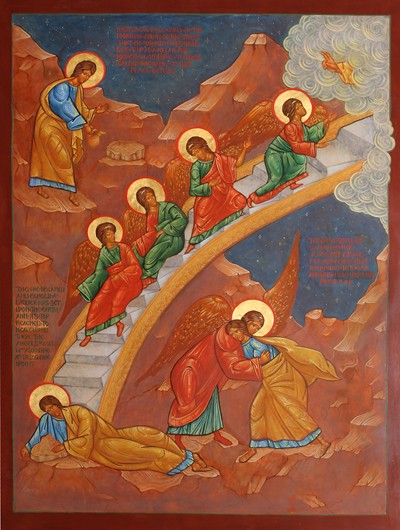
Download Podcast: "Angels Descending" March 5 (February 20, 2023, Holy Calendar), Angels Descending
The calling of the Disciples is a "Northern Kingdom" affair.
Aside from Judas (whose name signifies Judah and its religion Judah-ism),
the Disciples are all from the region of historical Israel.
The towns and districts in our lesson read like posters and signs at a political convention,
a gathering of Israel.
To carry this metaphor a little further,
let us ask,
"What are the planks of the party platform?"
We do not say that a revolution was being hatched at this little convention in Capernaum, for that would imply something new. What Jesus announces, rather, is something ancient and long-awaited: the restoration of the spiritual House of Israel, the religion revealed by His Father to the Patriarchs, and a world super-abundantly overflowing with the Kingdom of Heaven. And everyone present knew what He meant when Jesus said,
|
"You will see greater things than these" ....
"Most assuredly, I say to you, hereafter you shall see Heaven open, and the angels of God ascending and descending upon the Son of Man." (Jn 5:24) |
You shall see Heaven open. And angels descending upon the Son of Man. The Apostles were the sons of Man. We are the sons and daughters of Man. What Jesus announces here is the turning point of human history. And nothing, ever after, will be the same again. For our vocation has just been announced. God's invitation has been extended .... as it was to Abraham, to Isaac, and to Jacob, who also saw Heaven open and the angels of God ascending and descending. God has invited us. He has called us. And our vocations lay right before us .... as they laid before Jacob, who was called to strive with an angel until dawn.
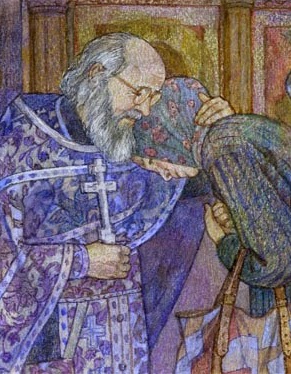
Download Podcast: "Forgive Me!" February 26 (February 13, 2023, Holy Calendar), Forgive Me!
God has set a golden and eternal circle on the earth governing every life He has made. He reminds us of this circle with the turning of the seasons: from new life to high summer to the first hints of death and then on to the end of all.
But the golden circle begins once for each life, and it concludes once. There is no middle way. There are no other destinations. Every life is a little Eden. Each of us begins there with an innocence and love that radiates out to all boys and girls and beyond them to the God and Father of all. Some stay right there. Many stray from the good life. But whoever we are and whatever we have done, each must return to Eden. To enter in, we must reclaim the innocence with which we began. The Lord states plainly and definitively, "Assuredly, I say to you, unless you .... become as little children, you will by no means enter the Kingdom of Heaven" (Mt 18:3).
This circle, fixed within our souls and scribed across the Creation, is the primary business of our lives. Our Hebrew forebears observed it annually — each year standing in ritual Eden and contemplating at-one-ment (atonement) with God. It was the day when all of Israel examined their lives comparing its content to the life God had ordained for them. It was a day of remorse. And this is our tradition, handed down from the Patriarchs, who received it from God. We look in our hearts. We are filled with regrets. And in that tenderness, we cry, "Forgive me!" For that cry proceeds from the tender heart, and tender hearts are the good evidences of innocence. In this we hear the voice of Jesus saying, "You are not far from the Kingdom" (Mk 12:34). Please join us in contemplating this circle. For such is the Kingdom of God.
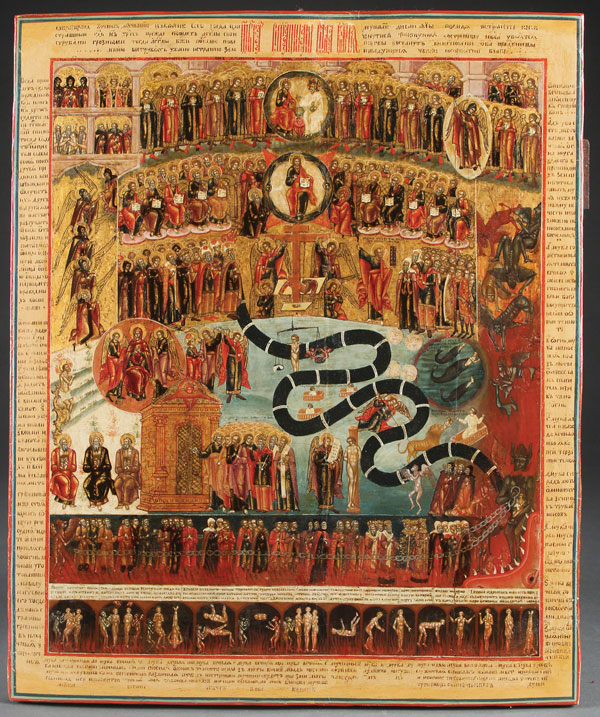
Download Podcast: "Reckoning" February 19 (February 6, 2023, Holy Calendar), Reckoning
Today we enter a meditation on the Last Judgment. Preparing us, last Wednesday, we celebrated the Meeting of the Lord in the Temple. The prophet Simeon held the Child Jesus aloft and pronounced Him to be the Sign of Contradiction. Within the imposing sphere of this Child will collide two worlds: the Kingdom of God in its perfect rectitude and a tawdry world that is willfully out-of-joint with God's rightness and goodness. Considering the awesome sublime of God, William Blake wrote,
What immortal hand or eye
Could frame Thy fearful symmetry?
("The Tyger")
The narrow, human mind can scarcely endure the radiant excellence of God's expansive Nature and Ways! What a cataclysm we behold in this collision, reprising the War in Heaven!
The Last Judgment is not mysterious. Few subjects in the Gospels are set out in such glaring (and unsparing) light. The friends of God are always already heirs to the Kingdom. Such as these are the Kingdom of Heaven. Meantime, the enemies of God can have no part in Him. Such as these have made their bargain with shadows and illusory promises.
Exactly, who are the enemies of God? Jesus is unambiguous on this subject too:
Whoever denies Me before men, him I will also
deny before My Father Who is in Heaven.
(Mt 10:33)
And whoever does not deny Him must countenance Him to be Wonderful, Counselor, the Mighty God. The great gift of faith and worship of this, the One God, means the end of all shadows, freedom from all uncertainties, and peace unto our souls as we, with St. John, lay our heads upon the breast of perfect and unvarying love, in Whom there is no darkness at all.
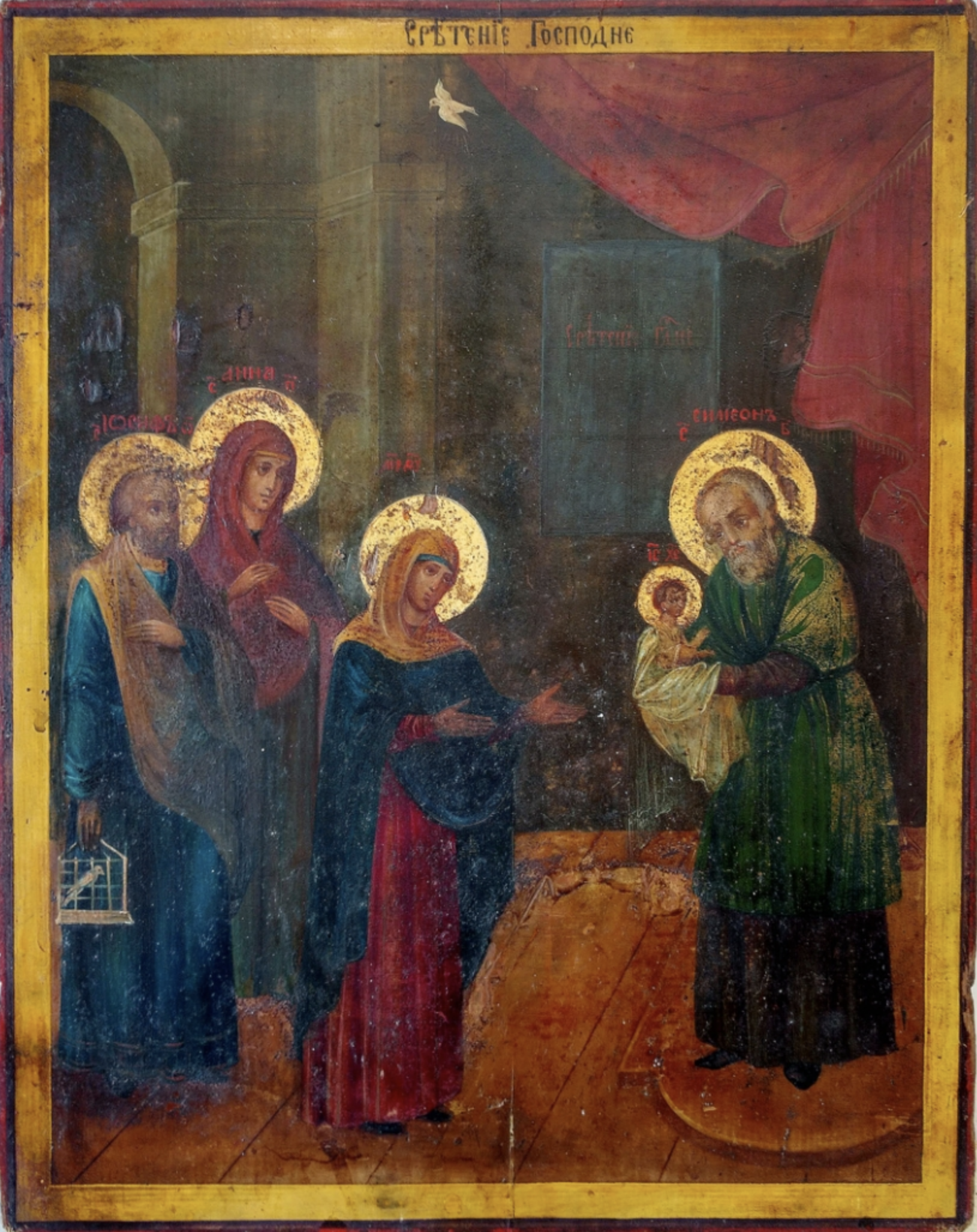
Download Podcast: "Sign of Contradiction" February 15 (February 2, 2023, Holy Calendar), "Sign of Contradiction"
Then Simeon blessed them, and said to Mary His mother,
"Behold, this Child is destined for the fall and rising
of many .... and for a sign which will be spoken against."
Plato famously wrote, "No one is more hated than the one who speaks the truth." What shall we say then about the One Who is the Truth .... and the Way and the Life? What "triple hatred" will be heaped upon His Sacred Head?
Let us listen closely to the words of the Prophet, for he touches an essence of the Incarnate God: ".... spoken against." Leaders among the Jews in Rome informed St. Paul, that the Jesus movement "is spoken against everywhere" (Acts 28:22).
The Lord Jesus set aside His Heavenly glory and entered the horrible confines of our narrow humanity in order to exemplify godly life, for we had defaced the Image in which He made us. But the world, so in love with disfigurement, so enamored of the perverse and the depraved, did not want godly life. And does not want it today. The world hates God "without a cause" (Jn 15:25) in the sense that a child hates the mother or father who corrects him.
The Hermitage follow the most accurate Scripture translations (carried out by Holy Apostles Orthodox Convent, Buena Vista, Colorado), understanding the Son of God to be "the Sign of Contradiction." He is God's "Yes" to a world whose most imposing word is "No." He is Life given to a world whose culture is Death. He is Love to a world whose reply is Hatred .... even murder upon a Cross.
We hasten then to pick up our Cross and to embrace the One Whose Sign is Contradiction. We glory in the contempt that is heaped upon us. We welcome the loathing with which we are met. For we turn to the left and to the right and behold the One, Who is with us and Who teaches us. He says, "The world hated me before it hated you" (Jn 15:18), and "you did not choose Me, but I chose you and appointed you" (Jn 15:16). He appointed us. He depends upon us. And His word of acceptance and approval is faithful. How blessed we are to suffer at the hands of this hateful age that we might be One with Him, Who made us and Who loves us and Who watches the fray before Him with expectation. If we must strive, then for Heaven's sake, let us not strive against God! (Gal 1:10, Acts 5:39).
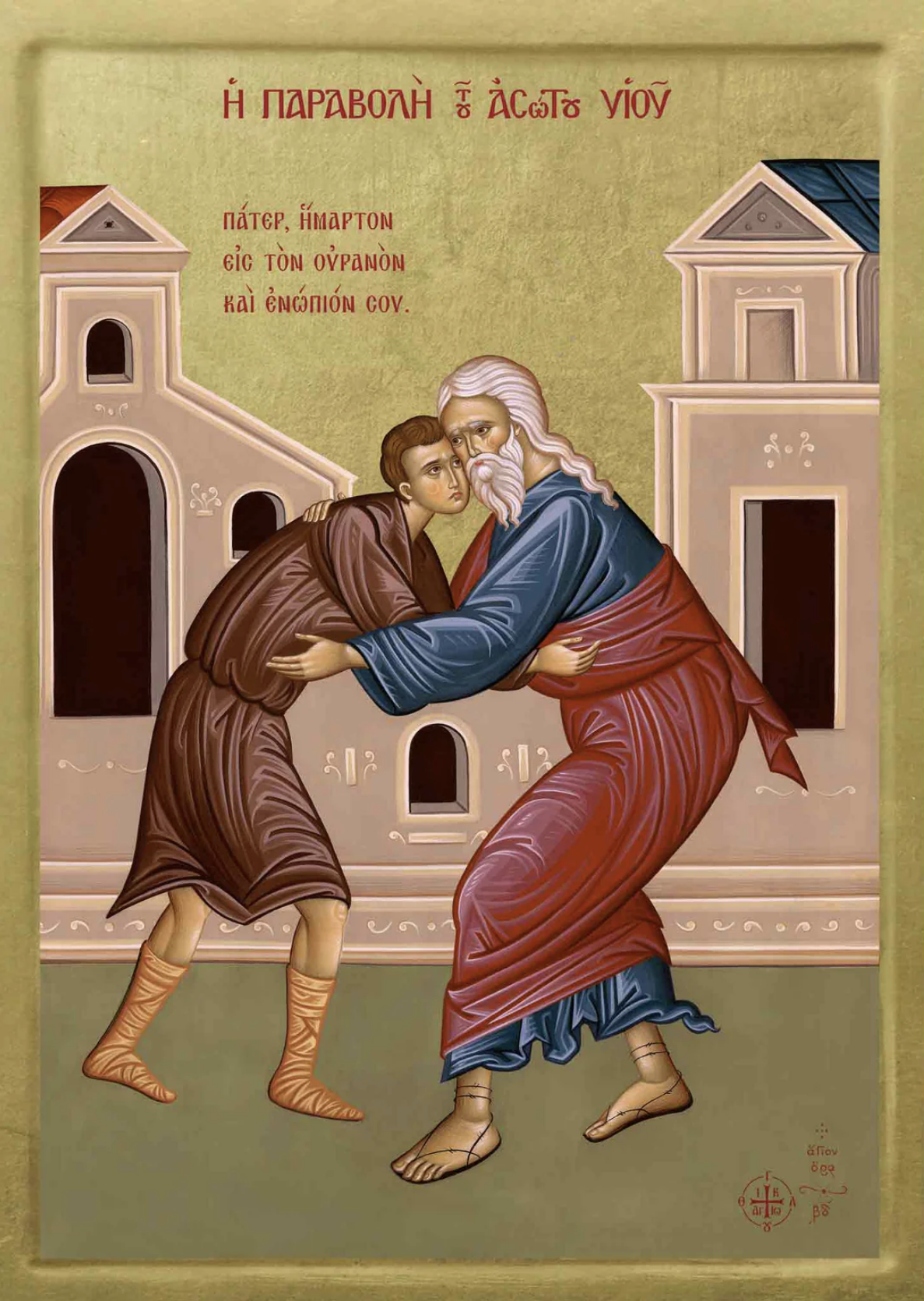
Download Podcast: "The God and Father of All" February 12 (January 30, 2023, Holy Calendar), "The God and Father of All"
Imagine being seated on the ground before the Lord Jesus as He tells His parables of loss: the one lost lamb, the lost coin, and today's story, the high point, the loss of the son who becomes a prodigal. Which disciples of Jesus have not wistfully pondered this scene wishing that they too might have been present? Certainly, the Apostle Thomas, who boldly followed Jesus everywhere, heard all of the Master's parables many times journeying through the villages and cities of the Levant.
Following Pentecost, St. Thomas trekked beyond the eastern shore of the Mediterranean, up through the regions of the Black Sea, and thence, finally, to India. Everywhere he went, he preached these same stories to many thousands. He went up and down the Malabar Coast setting many souls on fire. Today, the state of Kerala is nearly 20% Christian — miraculous in a country so unfriendly to Christians (roughly 2% of all Indians are Christian). It would be here, centered in the Indian State of Kerala, that Christian teachings would flow most abundantly into Indian culture. We are not surprised, therefore, to find stories in the Buddhist Sutras that clearly echo Jesus' teachings through His Apostle, Thomas.
One Sutra, written a few decades after Thomas' apostolate to India, contains a striking version of our Gospel lesson today. In many respects, it is a precise counterpart affording us a wonderful opportunity to appreciate Jesus' story afresh. For it is the differences between these that go to the distinctive, even unique, heart of our faith.
We need not fear committing idolatry or placing other gods before us, for Buddhism is not a "god religion." It is a spiritual discipline focused on mastering the passions and banishing carnal desires from our minds and souls. We might propose the writings of St. John the Theologian as an Apostle to the Buddhists. And the Orthodox motto "Death to the world!" would be heard with receptiveness.
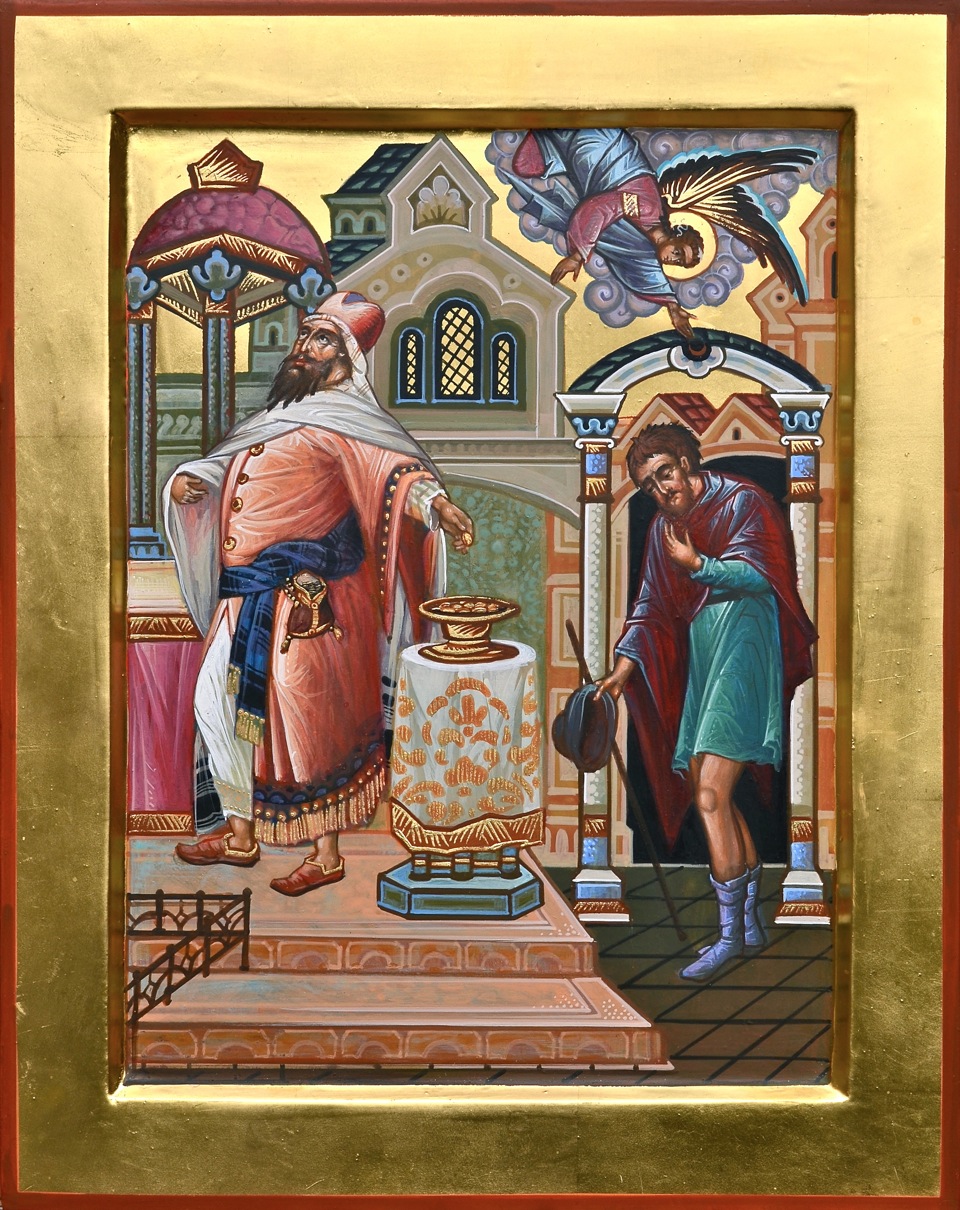
Download Podcast: "Brokenhearted" February 5 (January 23, 2023, Holy Calendar), Brokenhearted
The Holy Scriptures are not the story of a faithful people but of a faithful God. If the people of God are understood to be family, then ours is not a happy one. Our family album bristles with betrayals, infidelities, blood feuds, and alienation.
Today, we encounter two wayward sons of that family. Together they form a case study in desertion. One has deserted the family altogether, denouncing his heritage, making a new life with different customs, different clothing, and a whole new way of being. The other has positioned himself to be the faithful son. He glories in his faithfulness. He defines himself in terms of his brother's shortfalls. Yet, he is also a family deserter.
Today the Apostle Luke presents us with a case study. It is a study in the nature of love and in the nature of God. In the end, it depicts ourselves. And it offers us a great gift. It shows us the way ahead through that notoriously difficult territory, which is the terrain of broken families, of broken love, and how we are to come to wholeness when our very hearts are broken.
Please join the family reunion, for we all have a part in this. And no one is left out in God's will for our wholeness.
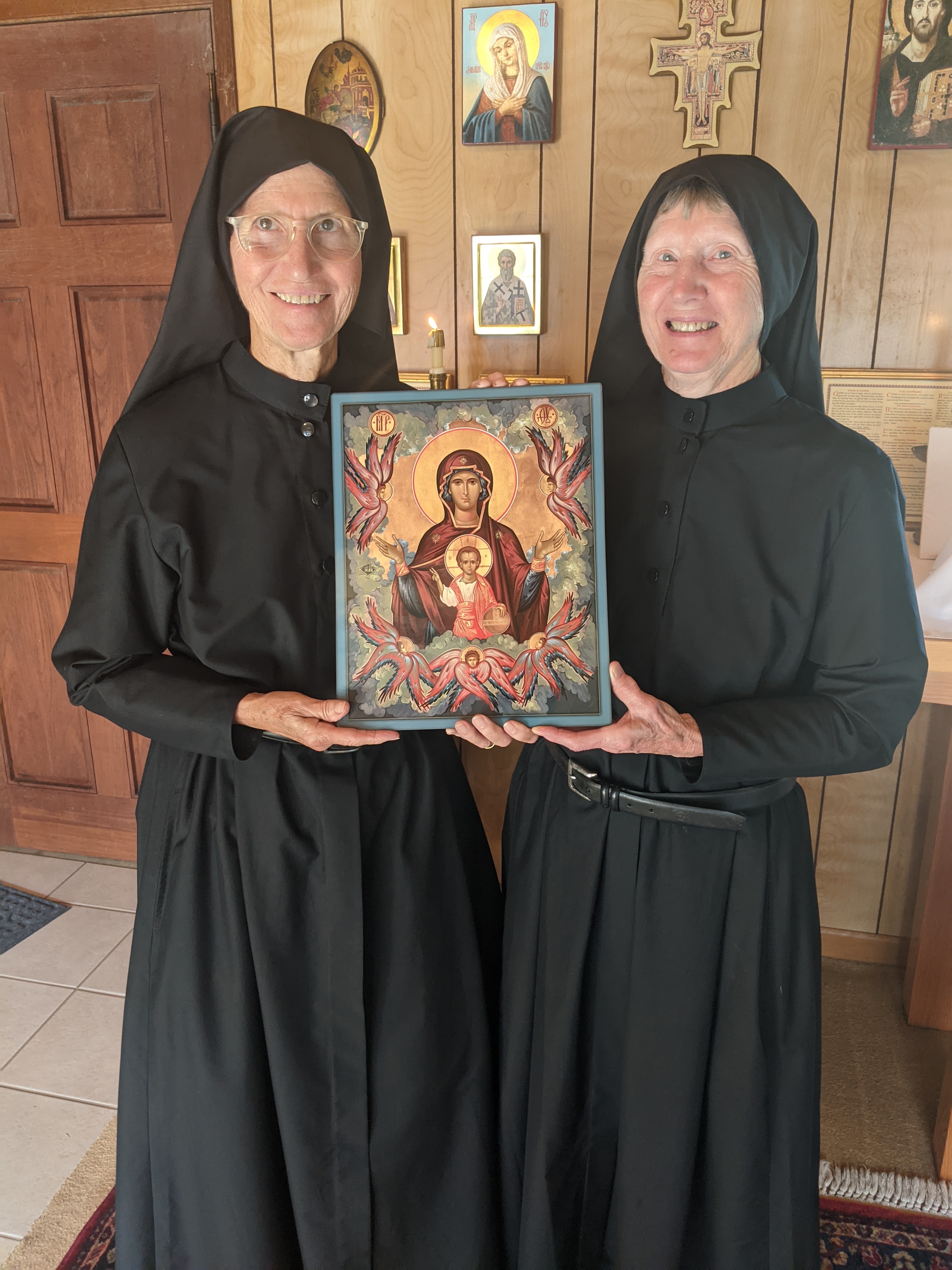
January 30 (January 17, 2023, Holy Calendar), Appeal from Our Lady of the Angels Hermitage
Many people do not understand monastic poverty. They imagine a well-established institution safely ensconced within the security of the wider Church where people live in devout simplicity. In fact, Our Lady of the Angels Hermitage has never received anything like security or safety within the Roman Catholic Church nor, after we were received, within the Eastern Orthodox Church. All monasteries, parishes, and missions must rely entirely on themselves or fail. There is no way middle way to "muddle through."
Our story for the past decade has been a refugee story. Our only revenue apart from Social Security comes from sale of our produce. (And Social Security has no category for those who have served the poor all their lives at no pay.) Monastic poverty is beautiful. Simplicity is radiant. The life of complete dependence upon Providence is grace-filled. But avowed poverty is also dangerous in a world that is the implacable enemy of God: "The world hated Me before it hated you." (Jn 15:18).
Our Turmeric harvest is our primary financial lifeline. With our harvest now coming to fullness, we ask you to support the work of two faithful eighty-year-old nuns and their elderly chaplain. Please click on the "Farm Store" link at our Community website or at our Farm website. Please become acquainted with our story (an unfolding tale) at our Facebook business page. And if you have been nourished by our regular spiritual reflections, please press the DONATE button above to express your appreciation.
Please also notify us of your prayer requests. Our lives are, first of all, lives of prayer and worship. May God +Bless+ you in blessing Our Lady of the Angels Hermitage with your generous help!
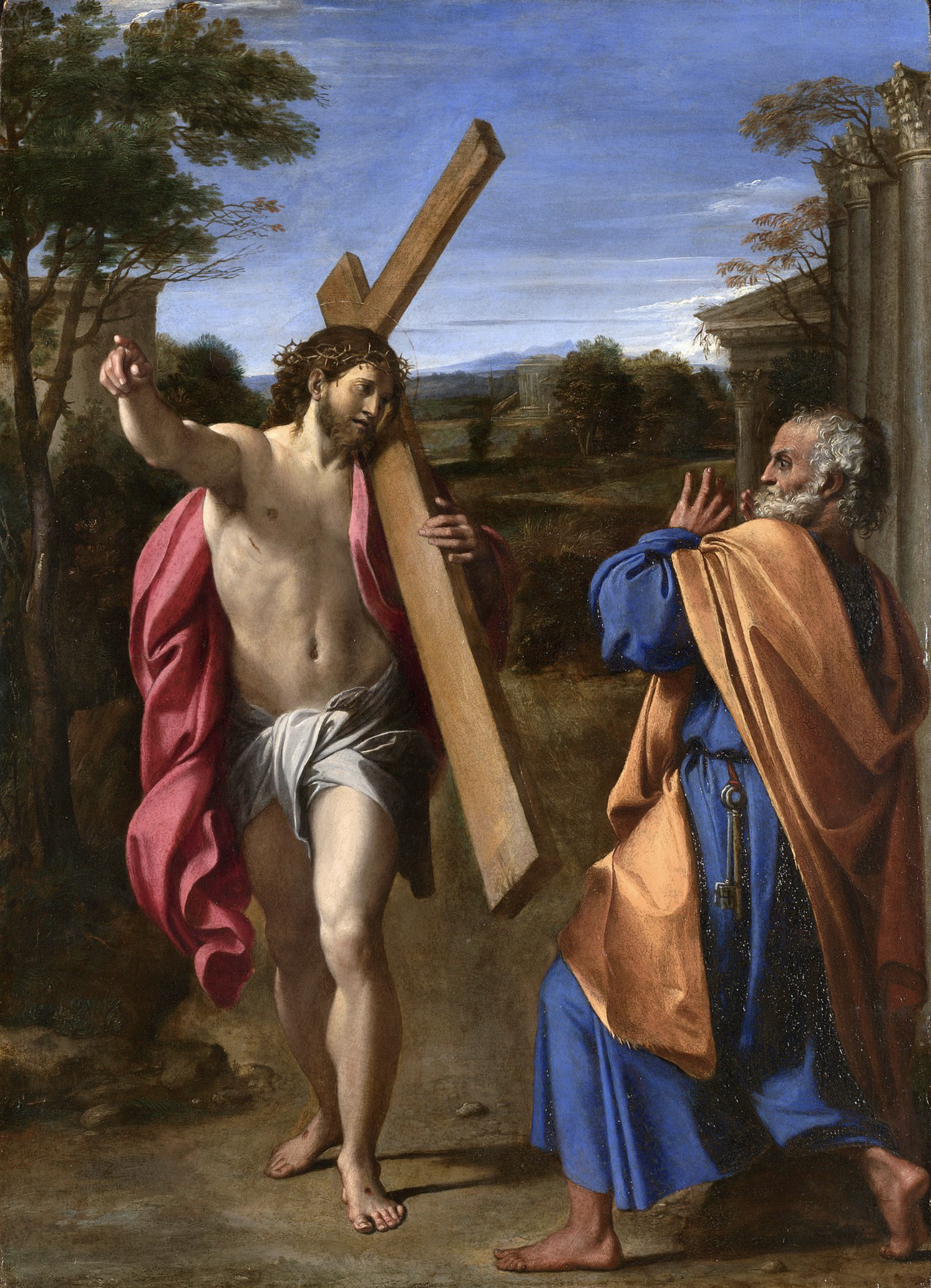
Download Podcast: "Where Are You Going?" January 29 (January 16, 2023, Holy Calendar), Where Are You Going?
The Risen Christ has appeared to His Disciples. His role as Master and Teacher evinces a new sharpness. There is a note of finality in the lessons He teaches. For the Apostle Peter, in particular, confrontation becomes necessary. Yes, Peter had constantly been double-minded. "You are not mindful of the things of God, but the things of men" (Mt 16:23), Jesus had said. But, as Jesus prepares to ascend, confrontation having eschatological tones has become necessary.
The Gospels speak of historical things long past even as they speak urgently into our own lives? From the first words of St. John the Forerunner to the consistent teachings of the Lord Jesus, the message has been the same:
|
"Where are you going? Where are you headed?
Do you not know that every road comes to an end?" |
And the God Who sees every road and every end is urgently mindful of every choice. He has given His angels charge over us in precisely the domain of our choices. How ironic, then, that we should be the protagonist in a drama surrounded by such momentous figures and walk through it as if in a trance.
As we observe the feast of chains and the Apostle of indecision, let us ask ourselves, "Where exactly are we going?"
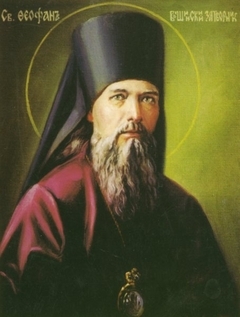
Download Podcast: "St. Theophan" January 23 (January 10, 2023, Holy Calendar), Sunday After the Baptism of the Lord
Who in our elderly generation did not encounter Russian Orthodoxy through J.D. Salinger's Franny and Zooey (New Yorker, 1955)? In a world of elite Eastern schools, cultivation of image and surfaces, a young spiritual seeker, Franny, carries The Way of the Pilgrim as a lifeline. She runs from social receptions feeling nauseous and suffocated to be revived by its pages. For many, the next encounter with Russian Orthodoxy was Theophan the Recluse. The brilliant son of a Russian Orthodox priest, he was sent to Kiev (the spiritual capital of Russia) to be educated by Russia's finest theology teachers. Always desiring the life of the hermit, he, nonetheless, was pressed into service as a theology professor and Church administrator. He served for some years at the Russian Mission in the Holy Land, perfecting his mastery of Koine Greek, reading and translating the Greek Fathers. His own writings thus became a lifeline to Russians desiring deeper immersion in the Early Church. His edition of a Russian Philokalia and his Unseen Warfare were to be influential throughout the West.
Here is the vocation of Orthodoxy — to dig down into the pure life-springs of Christianity and to guard these precious waters for generations yet to be born. We give thanks in particular for rigorous and uncompromising Russian Orthodoxy, which pays no mind to modern cultures and is indifferent to social imperatives. Pray for us St. Theophan the Recluse, for we too are nauseous and suffocated from the falseness of the world and its bizarre antics. Pray that we might enter hermitages of the mind to breathe the clear oxygen of the Church's earliest years and centuries.
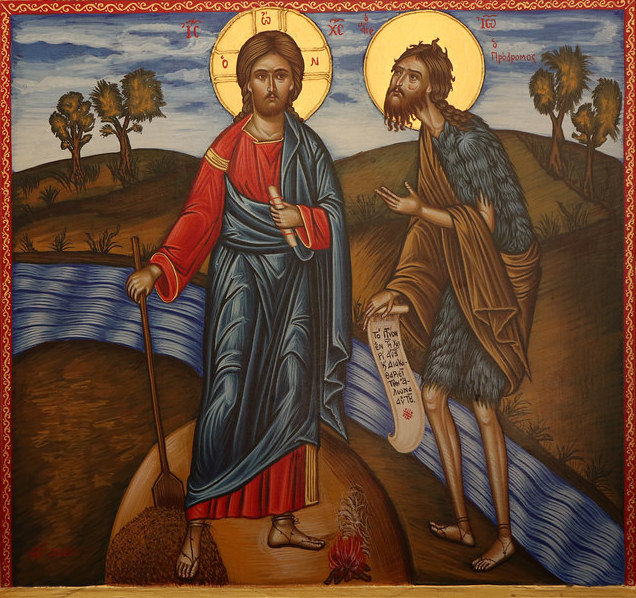
Download Podcast: "Exodus" January 22 (January 9, 2023, Holy Calendar), Exodus
We might say that Christianity all comes to this: the Kingdom of Heaven is at hand! The Kingdom of God has drawn near. This is the Good News for which the Gospels are named (gospel is an Anglo-Saxon word meaning "good news"). It is the essence of the Baptist's ministry (being baptized is to prepare for the Coming of the King). And it is the message that, following St. John's arrest, must be continuously and earnestly preached .... an apostolate that Jesus must now carry forward.
This is the meaning and purpose of the Advent of God. Its greatest manifestation is the Incarnation. Its great Theophany was at Jordan stream, celebrated this past Thursday. All human history leads to this event. And all human history proceeds from it. The Kingdom of Heaven has come.
When we say that Jesus is the Savior of the world, that He was sent to save the world, that He takes away the world's sin, we must understand that these epic-scale words proceed out of the Good News: the Kingdom of Heaven has been scribed on the earth, and the world and sin and everything will be defined and decided along its borderlands.
The Coming of God is not so much a saving of the world as it is a vast exodus, touching every living soul, leading them away from the world and toward God's marvelous Kingdom, which is the source and burning point and eternity of Life.
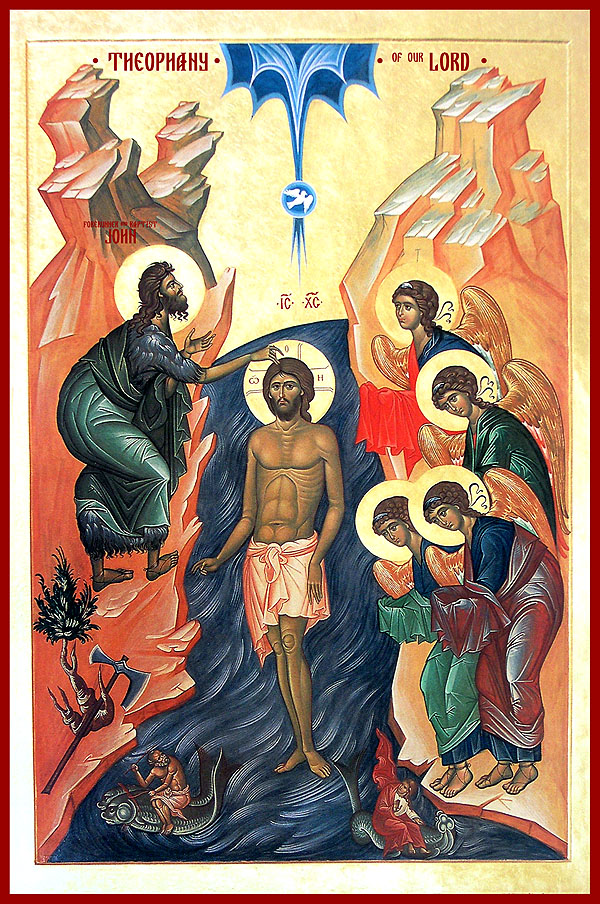
Download Podcast: "Foundations of the World" January 19 (January 6, 2023, Holy Calendar), Foundations of the World
Unfolding before us at the scene of the Lord's Baptism is a most ancient story — one that pulls back the veil revealing the foundations of the world, where void and chaos continue in their dark and restless motions. Into these depths Divine goodness enters. A mighty bulwark is set forever bounding off a Kingdom of Goodness in a fundamentally dark world.
This is the Mystery of Baptism: we enter these unfathomable waters, we are touched by death's menacing chaos, and we place ourselves into the hands of God .... unto the ages of ages. Here is the decisive act of our lives, incommensurably holy and consequential. We are forever marked as one of His. We are clothed in the white garments of our royal nature, and we are anointed with princely oils. We claim the Light of the World as our own. And we set it upon a lamp-stand for all to see. This is the City set on a Hill. This is the Kingdom of God, which is the company of all faithful believers and heirs through hope of His everlasting Kingdom.
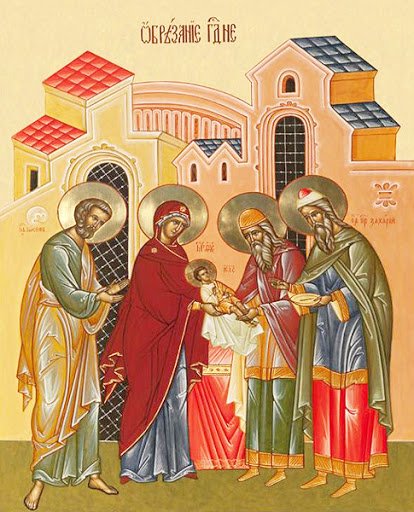
Download Podcast: "Named" January 14 (January 1, 2023, Holy Calendar), Named
Today we observe a mysterious rite. On the eighth day, we are named before the God Who made us. Holy Orthodoxy retains this ancient right among her five stages of Baptism.
For some, Christianity consists in protesting one's unworthiness. A vocation of unrelieved lowliness is contemplated in a drum beat that does not end. But on this day, when we commemorate being named before God, let us consider the vocation of abundance that God has contemplated for us. We recall St. Gregory the Great's wonderful injunction: "Be friends of God!"
Let us take to heart what we have learned from life about friendship and love. Once we have declared for friendship, how tiresome then is the friend who cannot stop telling us how unworthy he is of our friendship. Once we have declared for love, how tiresome is the suitor who cannot stop talking about his unworthiness. Rather, let us get on with friendship to the highest heights! Let us claim the raptures of mutual love and know of our high esteem in the beloved's eyes!
Buck up, O Christian! The promises of Christ are to be believed, not doubted. The power of the life-giving Cross is to be received in gratitude, not slighted. Sanctified life is to be followed and claimed, not vacated in the name of unworthiness.
Yes,
I have known the living saints.
Yes, I claim God's injunction to be a saint.
I might say,
"Come, join me!"
But God has already summoned all of us!
Let our apostolate be the Possible, the Believable, and the Trustworthy.
And let us hear no more about being a speck,
a nothing,
and
the most lowly among all.
For we are named before God.
And
He has bigger plans for us than speck-hood.
He has called us to be His friends.
And friendship is not possible without a certain equality among souls
and
mutual feelings and devotions of love.
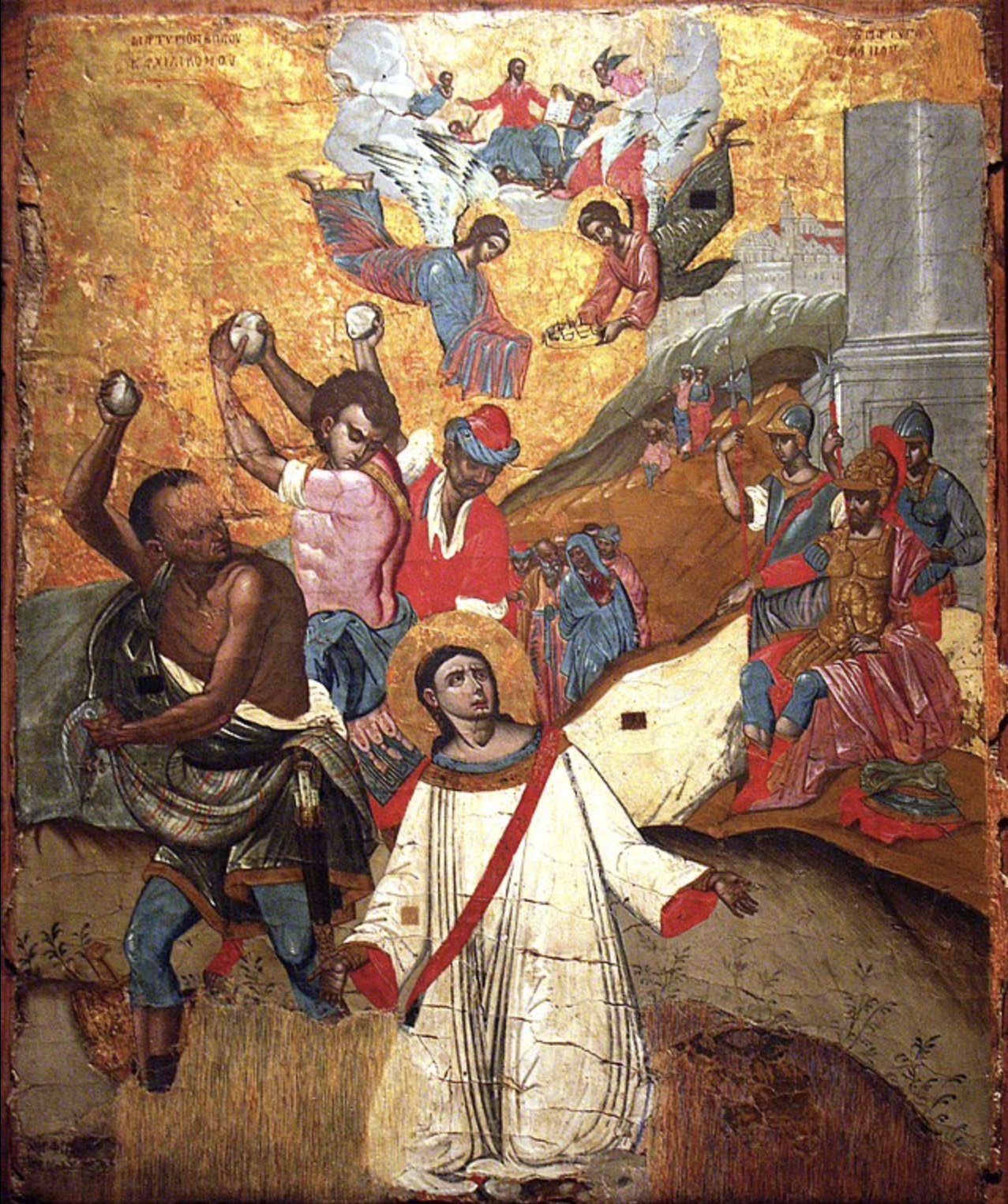
Today we celebrate the Protomartyr, St. Stephen, one of the Seventy Apostles. Nowhere in the Book of Acts are so many words devoted to one scene than are accorded to St. Stephen's brief biography, speech, and martyrdom — fully two chapters. We at the Hermitage call St. Luke (the proto-painter of icons) the pioneer of opera. For he stops the action, raises the actors upon a high stage, and then gives them arias to sing (the Nunc Dimittus, the Magnificat, the Benedictus). Here, a long dramatic monologue is given to Stephen — longer by far than the Council of Jerusalem narrative, than the account of St. Paul's conversion on the Damascus Road, or accorded to any of St. Paul's defenses. The reason for this care and attention is clear: for here Christian belief is differentiated from the beliefs of Judah-ism, which is an essence of The Way.
Following the Return from the Exile, the monuments of the Patriarchs were torn down. Especially during the first century B.C., Moses had been valorized above all expositors of the faith by Jewish (not Hebrew) authorities. Synagogues were instituted during the first century B.C. in order to disseminate the School of Moses. Discussion of angels was forbidden according to the teachings of the Sadducees who ruled the synagogues. During the same first century B.C., proponents of the new "Jewish" religion destroyed the Samaritan Temple at Gerizim.
St. Stephen is condemned for deprecating the customs of Moses. He is so intimately intertwined with "angel life" that he said to look like an angel (Acts 6:15). At his death, we are put in mind of the very words of the Lord that had ushered in this new age restoring Hebrew glory resplendent with angels. Jesus calls Nathaniel "an Israelite," not a Jew. Nathaniel rejoins that Jesus is "the King of Israel," not of the Jews. And Jesus then utters the words which will echo down through the Christian Scriptures announcing The Way, so near to the Kingdom of God:
| "....you shall see Heaven open, and the angels of God ascending and descending upon the Son of Man." (Jn 1:51) |
And at St. Stephen's death: "Look! I see the heavens opened and the Son of Man standing at the right hand of God!" (Acts 7:56).
Pray for us, St. Stephen, for we who are weary of the changes and chances of this world also seek Angel Life.
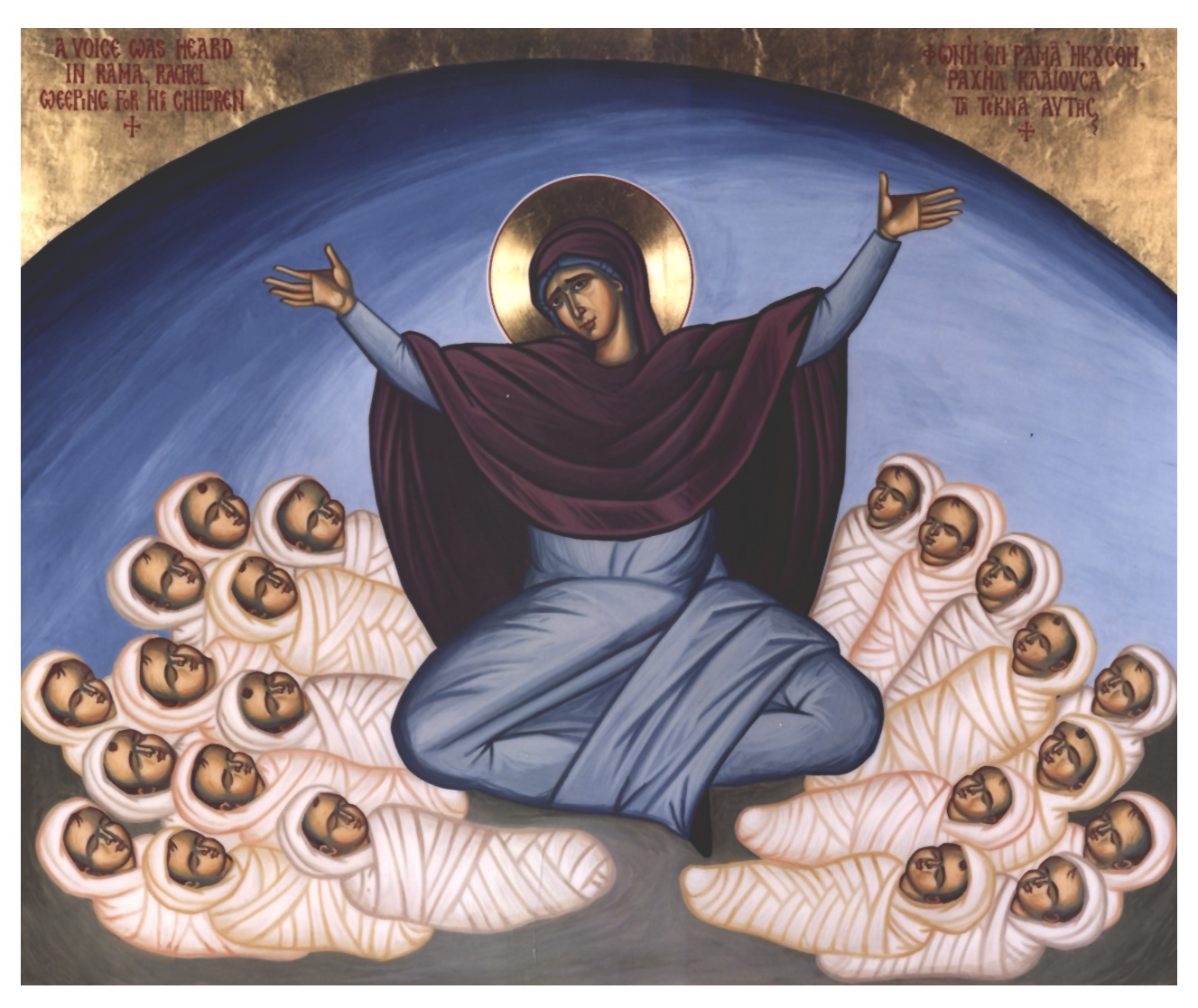
Download Podcast: "Slaughter of Innocence" January 8 (December 26, 2022, Holy Calendar), Slaughter of Innocence
That one of our most difficult martyrs' feasts should be so intimately linked with the Feast of the Nativity imposes a heavy weight midst jollity and feasting. Still, it points up an important fact in St. Matthew's Gospel. The verses the Evangelist has crafted under inspiration of the Holy Spirit go to the heart of God's nature, of human nature, and the mediating role played by the Most Holy Theotokos. For the Slaughter of the Holy Innocents falls hard upon the Nativity in St. Matthew's Gospel.
Where in all human history is new birth more venerated, even worshiped, than the Nativity of Jesus? And, then, where is it more emphatically desecrated than at the Slaughter of the Innocents? For these children are massacred because of their innocence. In this, they share a Divine property with the Holy One, slaughtered as the Agnus Dei, the Pure One. No sooner is Heaven born amongst us than a most heinous earthly crime is laid at Heaven's Gate: an attempt to erase Divine purity and goodness. These are St. Matthew's bookends. Linking them both is Motherhood — the Mother Who gave birth to Innocent Goodness in the former case, and Rachel, the archetypal woman who weeps for her children, in the latter.
Twenty-first-century America is the right time and place for reflecting on these things ..... not because we want to. We reflect on them because, like St. Matthew's sequence of verses, the time and place has been set before us. And to turn away is to rebuff the Holy Spirit and to reject the calling of Heaven.
We choose to strive against men if the alternative is to strive against God (Acts 5:39).
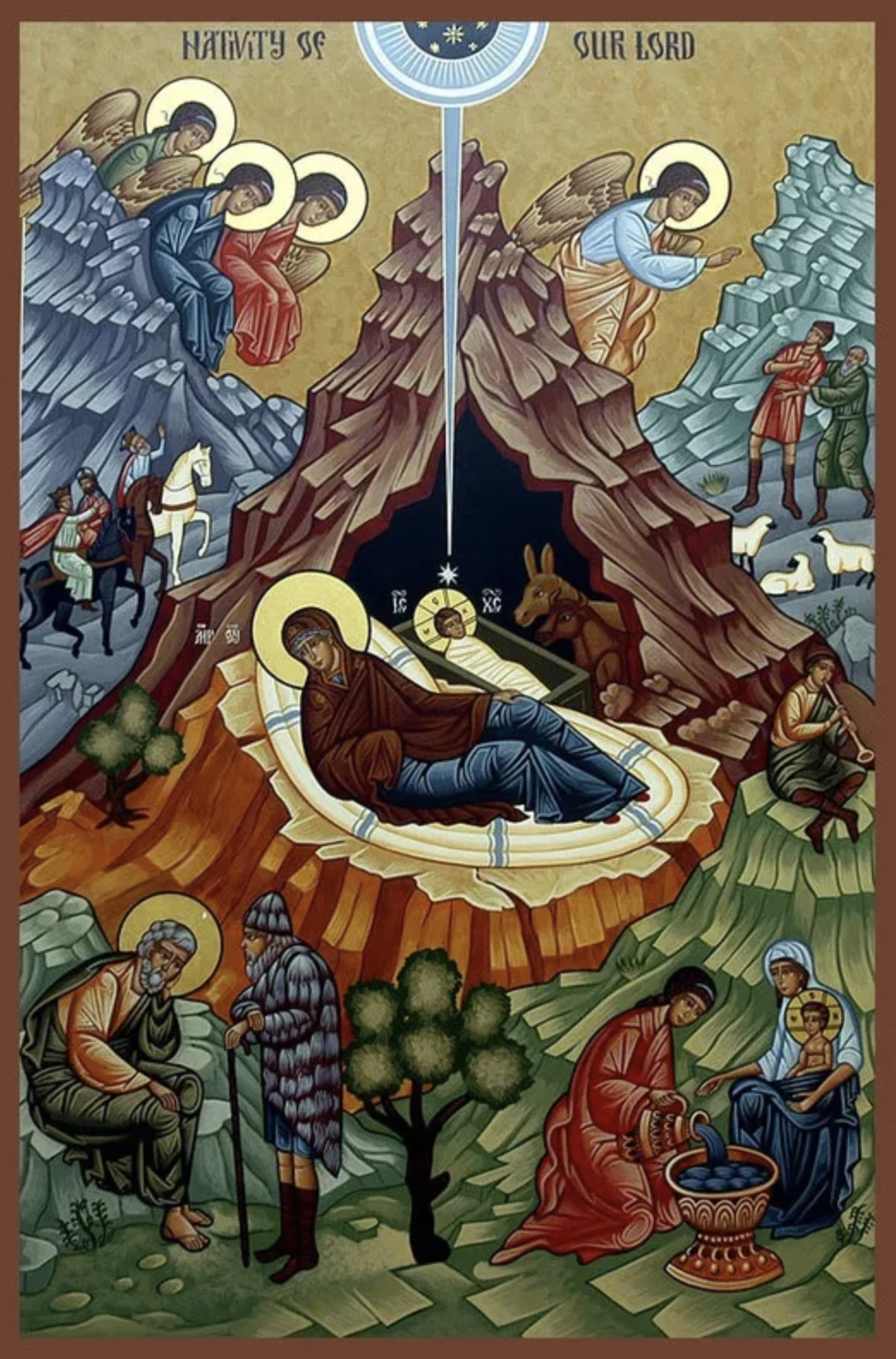
Download Podcast: "Among Us" January 7 (December 25, 2022, Holy Calendar), Among Us
What words could describe the Birth of God? What images might conjure such a mind-bending thing? The very idea baffles the mind and whirls the spirit round. Yet the genius of the three Evangelists finds a way. They find a way between lowliest earth and highest Heaven. And in doing so, they unlock a secret about God's ways and about human nature.
The universal Graeco-Roman curriculum "Paideia" was present in Judea at least as early as the Maccabees. Educated men like St. Matthew, a member of the Roman Equestrian class, and the physician, St. Luke, would have known the Greek authors. Echoes are heard throughout Luke's writings. So when they searched their minds for a genre high enough to render the sublime — the birth of God — only epic would do. But it must be an epic in which all things are invisible. The grandest scale military engagements will be depicted — but with vast multitudes of demons fleeing in panic, fanning out in every direction from Bethlehem. Ancient painters depicted pagan statues exploding as the Holy Family silently made their way past on their journey to Egypt. Our epic hero does not merely descend from the gods, as did Aeneas and Achilles, but He is God. Our epic does not merely relate the rise and fall of nations (though it hints of a lifeworld ending some seventy years hence). No, it will relate the rise of the Kingdom that has no end. Our epic does not merely present a king or emperor, but the King of Heaven and earth, the Emperor Whose character rises incomprehensibly above us even as it sets out a lowliness which is manifestly beneath everyone around it. And in its mean lowliness, it is open and accessible to all, even to those most despised outcasts of Hebrew society: shepherds .... yet these are shepherds whose companions are star-led wizards, attended by glittering angels.
As we said .... genius. But such are the ones God chose to render the birth of His Only-begotten Son in all its beauty and profound depth. Let us draw near to the Lord of Heaven and earth. Let us in our lowly estate draw near to the open and accessible One, Who opened even His empyreal Kingdom to make a place for each of us.
|
Angels help us to adore Him.
Ye behold Him face-to-face. Sun and moon bow down before Him, Dwellers all in time and space. Alleluiah! Alleluiah! Praise with us the God of grace. |
And Merry Christmas to you all!
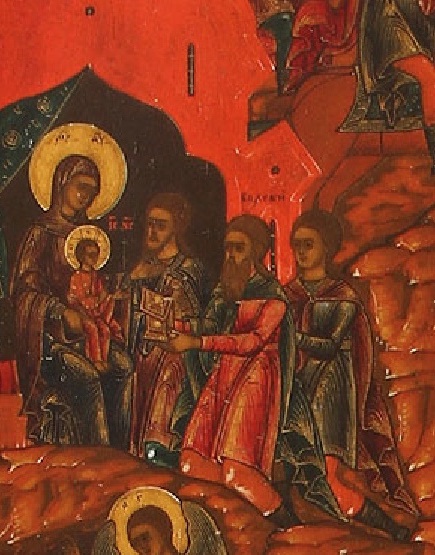
Download Podcast: "The Hopes and Fears of All the Years" January 1 (December 19, 2022, Holy Calendar), The Hopes and Fears of All the Years
Do you hear? Do you see? Before us lies the Desire of the Everlasting Hills, the perfection promised by Eden: God dwelling in Man and Man dwelling God. Here is the purpose of all history, the meaning of every life, and the highest promise of every age and era. No more can dark thoughts haunt us. No more can death pretend to a meaning and power it does not possess. For the Lord of Life is born in our midst. And we are to be His brothers, His sisters (Mt 12:49), His friends (Jn 15:15).
Our Gospel lesson this morning reads like a census document: Shealtiel, Zerubbabel, Abiud, Eliakim, Azor ...., not towering Patriarchs, but real flesh-and-blood people who lived their lives, married and had children, and participated (as it would turn out) in something far greater than they could have imagined .... as we do in our lives.
From Sunday to Sunday during our Nativity pilgrimage, we have thought long thoughts. We have entertained the Holy Ones of history in the tents of our hearts. But now today, on the Sunday preceding the Nativity, we have arrived to ordinary people .... to ourselves.
For the human heart is the birthplace which God has planned for His Son. As mysterious Magi from the East signify the universal call of God to every human creature, so we are called to unfold the fair linen of our purified hearts down upon the earth to receive His Divine Birth. This is our gold. This is our frankincense — to receive the Birth of all births in our hearts. "Let every heart prepare Him room!" the old Christmas carol declares. The "herald angels" go before him, royal heralds, and we His subjects are to receive His Divine visitation.
But how shall we respond? What shall we do? What shall we say?
Please join us as we reflect on another humble "manger" where Christ is to be born. It may not be what we have expected. But so often the will of God does not match our expectations.

At this Russian Orthodox hermitage, our time is devoted to prayer and farming. For the twenty-five years previous, Sr. Mary Anne developed and then led a medical apostolate in Haiti serving a quarter-million of the poorest people in the Americas. Sr. Mary Martha joined her nearly twenty years ago — both Registered Nurses working without pay providing medical care to the neediest among us. In addition, the sisters clothed, fed, and educated orphans. It is only natural that we should be devoted to St. Herman of Alaska, a Russian Orthodox monk and hermit who taught agriculture to native Aleuts on Spruce Island, who built a school for orphans near his hermitage, and who, during an epidemic, was the only Russian to nurse, feed, and console multitudes of sick and dying Aleuts.
In 1970, St. Herman of Alaska was glorified by the Russian Orthodox Church Outside Russia in San Francisco, the episcopal seat of our diocese.
Born in the Voronezh Oblast in 1756, the monk to be known as Herman entered the Sarov Monastery as a novice and then was tonsured at Valaam. Chosen as among ten monks from Valaam, Herman was sent to Kodiak Island as part of a mission initiated by Catherine the Great. He quickly saw that the situation there was desperate. The Russian fur traders who had established a thriving industry at Kodiak were often drunk and abused the natives, woman and children in particular. The Aleuts had become little more than an enslaved underclass. The monks, too, found themselves among the abused receiving none of the supplies promised them and discovering that they were the only bulwark protecting the native peoples against the worst excesses of their Russian overlords. So avidly did St. Herman defend the indigenous peoples, that a historian of the period compared him to the Dominican Friar Bartolomé de las Casas, OP, known as "Protector of the Indians" of the West Indies.
Today St. Herman of Alaska is regarded by Orthodox Christians as the Patron of the Americas and most certainly of American monastic hermits. As we journey to the completion of our Nativity pilgrimage, let us pray to St. Herman of Alaska, whose simple, gentle, and compassionate life we see enshrined in the birth of our Savior. Pray for us, St. Herman, that we might also see what is important and pay no mind to everything else.
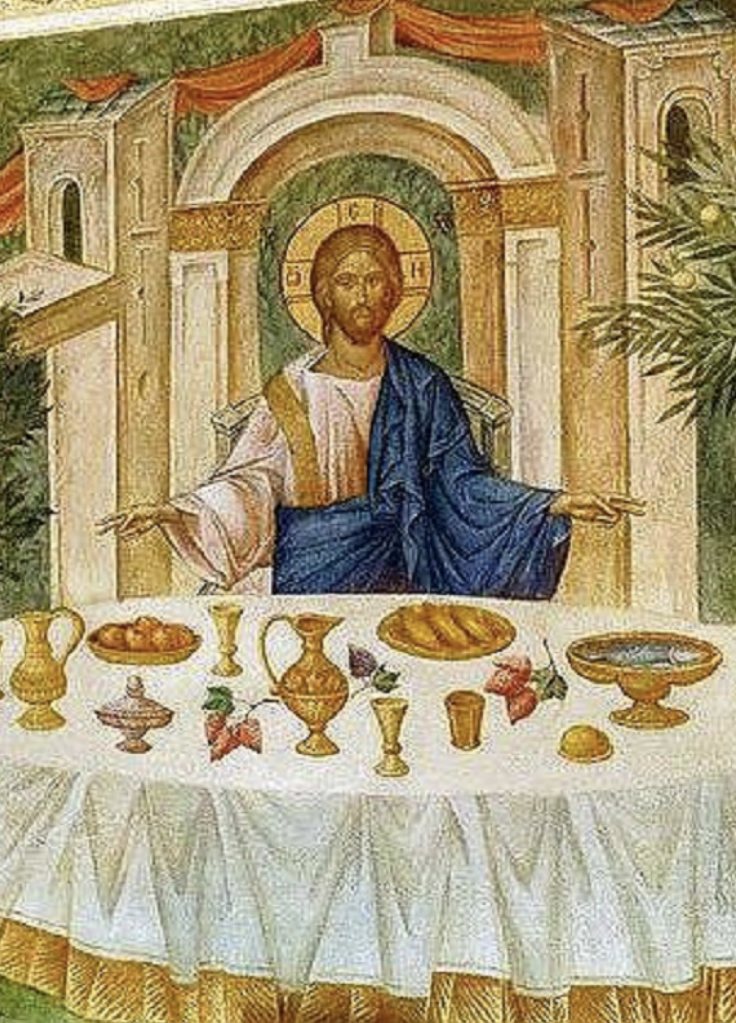
Download Podcast: "That My House Might Be Filled" December 25 (December 12, 2022, Holy Calendar), That My House Might Be Filled
From the pilgrim journey of Three Magi who saw a star to young people who follow that same star today, the summoning King continues to call. He calls into streets and lanes, into highways and hedges, for His zeal to fill His House has never waned:
| "Compel them to come in that my house may be filled!" (Lu 14:23) |
The Hebrew lifeworld into Jesus was born was prismatic, richly endowed with many patterns of spiritual belief, pointing back to the Patriarchs. The Gospels, as well as the historical record, bountifully attest these diverse points of view. The King commands that all be brought in, from every corner of His Kingdom.
Standing above all is the God Who suffered to empty Himself that we might be filled. He humbles Himself beyond all comprehension to be born amongst dung-stained hay in Bethlehem. He is God, and yet He is man. In this fact all humanity begins again. We begin again with the promise of human-Divine harmony and unity as it was in Eden. The God-man would increase "in wisdom and stature, and in favor with God and men" (Lu 2:52). And He would point ahead to His Father's House, which has many mansions (Jn 14:2).
Today, we are invited to this House. Today is the fulfillment of the descent from Adam through Noah through Abraham and down to Jesus, St. Paul, and the Early Christians for whom Abraham (not Moses) was the Patriarch of Patriarchs.
Today, we honor the ones who encountered the royal heralds sent out by the King. They received their invitations and then burned down their whole worlds, counting the world and its vain promises as nothing, in order to follow God. They followed Him across an endless sea of rain. They followed Him through wilderness after wilderness. They waited and trusted, yes, and loved their God. They trusted that He saw a higher and better way. And they knew that the way of the world, the way of all flesh, could offer nothing to enliven their empyreal souls.
Today on our long pilgrimage,
other roads begin to converge with our own.
People from all over the world and across all ages
begin to meet, unite, and understand that they are family.
For this is the nature of God's House:
a universal love calling out to every man and woman born into the world.
There is room for all.
The King's zeal is that His House be filled.
And for everyone who bears His pure and eternal love within their deathless breasts,
there will be room.
And they will see the angels of God ascending and descending upon the sons and daughters of Man.
In the Name of the Father and of the Son and of the Holy Spirit. Amen.
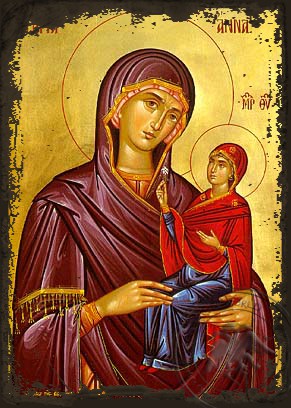
Download Podcast: "The Gift of Purity" December 22 (December 9, 2022, Holy Calendar), The Gift of Purity
Today marks a great feast of Our Lady of the Angels Hermitage: the Conception by St. Anne of the Most Holy Theotokos. The Hermitage is incommensurably blessed by a relic of the Glorious Mother of the Most Holy Mother of God. Our community and farm and all our lives, we pray, are protected under the Mantle of our Great Patroness, the Most Holy Theotokos. All of her feasts are "Great Feasts" in our little typicon.
Today's celebration has a special significance for us, who were born into the Western Church serving her devoutly throughout most of our lives. We go to the heart of the Orthodox faith — by the grace of God, our blessed home. We celebrate an essence of Holy Orthodoxy, which is the gift of life, of light, of purity, and of a goodness that shone in us at birth and, for those who protected it, which continues to shine. Have you seen this goodness radiating from the faces of the living saints?
Today we celebrate the Queen of Goodness, conceived in the purity of devout love in the holy hearts of Ss. Joachim and Anne. Ever-Virgin Mary (and each of us) were born to be holy lights placed on a lampstand. This is God's City on a Hill. It is the shining city — the homeland of our birth .... and God, Who is our eternal destination, whether we choose it or not. And They await us.
Let us not miss the mark. If we have dirtied ourselves, then let us be cleansed. If we have fallen away, then let us get back on track. If we have sinned, then let us offer sincere regret and be forgiven. For the holy embrace of the Virgin and Her Son is for all. And no one is ever forgotten (Isa 49:15).
![]()
Download Podcast: "Good St. Nicholas" December 19 (December 6, 2022, Holy Calendar), Good Saint Nicholas
Christmas for many centuries was the one time of year when a spirit of charity touched everyone. Normal rules were suspended while otherwise reticent people expressed their good affection without embarrassment. For warm-hearted messages and expressions of love were expected. Each family would send little love letters called "Christmas cards" by the scores. And strains of "Peace on earth, good will toward men" might be heard from roving bands of singers and distant brass ensembles.
Today, a spirited "Merry Christmas!" is apt to provoke anger or disgust. This does not have to do with ethnic or racial differences, but rather it is generational and cultural. A general assault on Christianity has been well on its way for decades now. The assailants believe they are ushering in a wonderful, new age, in which all taboos are banished and boundaries marking off the unthinkable are erased. Even within the last bastion of the Christian West, pro-abortion advocates are elevated to positions of influence while anti-abortion priests are suppressed, even deposed.
Here on St. Nicholas Day, let those of us who remain faithful boldly keep Christmas. Let our children see kindness and goodness and charity of spirit practiced openly in the name of Christ. Yesterday, children throughout Western Europe were filled with anticipation, for (according to their tradition) St. Nicholas' boat had departed from Spain. He is on his way. And today, December 6, a towering figure in red, having a bishop's miter, and adorned with a snow-white beard brings good tidings: "The season of decent love has begun! A spirit of caring and compassion sweeps aside rancor and indifference!" For very soon the One Who is the new and eternal age will be born amongst us! Prepare Him room! For earthly treachery and mischief will flee wherever He goes. And of His Kingdom there will be no end.

Download Podcast: "Take My Yoke" December 18 (December 5, 2022, Holy Calendar), "Take My Yoke"
At the midpoint of our trek to Bethlehem, a gift is given. And the Giver has prepared us to receive it by inviting us to ponder His Nature, which is simultaneously Divine and human. Which gift could be more fitting on the eve of His Incarnation?
He and the Father are an inviolable, unknowable Unity yet at the same time a Possibility in Which the human creature might participate. Here we stand on the edge between epistemē and gnōsis, between human knowledge and Divine Inter-knowing. The hidden road between these domains Jesus has disclosed this morning: "the one to whom the Son wills to reveal." Encounter .... Revelation .... these open like brilliant portals into the Kingdom at the will of God.
It is here, at this superabundant place of all human possibility and hope, where the real encounter takes place. For the very next words Jesus will speak are these:
|
"Come to Me, all you who labor and are heavy laden, and I will give you rest.
Take My yoke upon you and learn from Me, for I am gentle and lowly in heart, and you will find rest for your souls. For My yoke is easy and My burden is light." (Mt 11:28-30) |
In an instant, He had just uttered dense, jewel-like phrases pointing to the mystery of His Nature; in the next, the mud-caked, homely language of the yoke and plow. How extraordinary! And this is our entire Gospel lesson today — an incommensurable mystery expressed in a single verse, then a brief barnyard scene following it.
Still, we must not be fooled. For this yoke is tied to a Divine command (the imperative verb take) and it constitutes a mysterious encounter: Take my yoke. What can this mean in practice?
Let us open our souls and hearts and enter freely into this place where Jesus promises rest. It is no use to size it up, to appraise it, or to predict what comes next. For all this He has taken into His hands. On this, the midway point of our journey, let us get out of our way and remember that it is His Way.
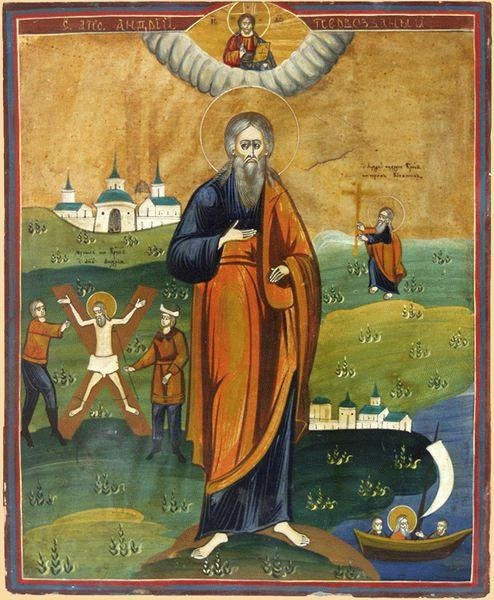
Download Podcast: "Light-Bearer" November 30, 2022 (Holy Calendar), Light-bearer
Who are our Christian ancestors? Many in the English-speaking West assume that they were Roman Christians of one sort or another. But that would not be true. Before St. Patrick and before the Venerable Bede and his Benedictines, migrating Scythians — known variously as the Galatians, the Gauls, and the Gaels — arrived to the Atlantic coasts of Ireland and thence to Scotland and Britain. By the sixth century, they would oversee a whole Christian lifeworld, educating and advising the Anglo-Catholic kings, and raising up new monks in a vast network of monasteries and sketes, such as Clonard, Iona, and Lindisfarne from the Irish Atlantic to the English Channel. At its zenith Clonard was said to have attained a steady state of 3,000 monks at any given time.
Think of it: perhaps eight centuries before the baptism of Rus' in Kiev, Scythians (can we call them proto-Russians?) were celebrating Eucharist along the icy shores of Ireland and Scotland. What was their religion? Why, they were Eastern Orthodox, of course, evangelized through the apostolates of St. Andrew and St. Paul, and then, avoiding all contact with Roman influences, settled in the remote, far West. Their later encounter with Roman Christian counterparts at Whitby is remarkable. They claimed, not St. Peter, but St. John to be their Apostle. They organized, not in dioceses, but in monasteries. The later Orthodox Catholic vs. Roman Catholic differences we know today were already discernible.
This is no fancy, nor pious legend. These are hard facts based on the best scholarship presently available and, notably, upon genetic evidence presented in 2015 to the National Academy of Sciences in the U.S.
Join us on this, our Founder Father's feast day, and let us page through the family album, such as a brief reflection will permit.
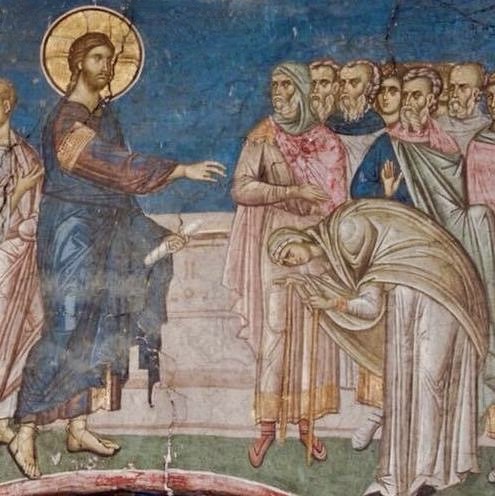
Download Podcast: "Earth and Heaven" December 11, 2022 (November 28, Holy Calendar), Earth and Heaven
On the first Sunday of our pilgrimage, we sojourned at the Second Temple. We contemplated a most brilliant presence of light and grace entering the heavy walls of a stone tomb: the temple, which was a slaughterhouse, where the bodies of animals were vainly offered in an imagined trade as blood for salvation. Do we imagine that a tower to Heaven might ascend from a pile of dead goats? Yet our spirits soared to behold the tender Theotokos, the spirit of new breath and new life, ascending its steps. She will be the dwelling place for the Lord of Light.
On the second Sunday, our Gospel lesson presents us with a different figure. She is not the Theotokos. She is more like us. For the subject is her Heavenly ascent .... and ours. This is our fitting invitation on the Second Sunday of the Fast: that we look soberly upon ourselves, drawing courage from a three-year-old girl who entered the massive clay and stone around her. For this now is our task — to ascend to God's grace and light from the heavy clay in which we also have enclosed ourselves.
On this day, she stands before God, Who knows her every secret. We are told, "glorious things were done." Glory is filling the minds and souls of all present. Glory is radiating from Heaven through its One Lord. Glory is reflected in a woman whose clay is being revivified, even scattered, by the breath of God. She is reborn right before the eyes of all present (which we pray included Nicodemus).
In the place of community gathering, where many patterns of Hebrew belief were expressed, two opposing authorities speak. They speak in an epic-scale: of Moses, of Mount Sinai, of God. The moment is electric. The people have gathered. And in their seeking, in their searching faithfulness, on this day, they have seen God.
May we, my brothers and sisters, who turn back to our pilgrim road this week also see Him. For He is the Lord of Hosts, the King of glory, and His desire is that we know Him, that we follow Him, and that we be always filled with His glory.

Download Podcast: "Behold the Handmaid" December 4, 2022 (November 21, Holy Calendar), "Behold the Handmaid"
The fast has begun. We have departed from our Babylon, our Luxor, and our Jerusalem. City limits fade from sight. The air ahead is lighter and clearer. We have departed: bound for the desert, for the wilderness, for any name you like pointing that place which is near to God and distant from those places which do not honor Him.
As we make our way towards Bethlehem, the gift we bring is empty hands and open palms. We empty ourselves of clutter and debris. For an open and purified interior has a sweet fragrance, with which God endowed it from the beginning. Our offering to Him is to receive. Our silent and receptive posture is that of Mary in Bethany. And the holy sign that God has set upon the "one needful thing" is a girl child ascending a stair. The True Holy of Holies is brought to dwell near the false Holy of Holies of the Mesopotamian Temple. The Eternal and Life-giving Sanctuary is brought to dwell near the scene of death and carnal sacrifice. Her Ever-Virginal Wholeness is brought near to the coming disintegration and destruction. The perfectly prepared Dwelling Place of God is brought near to the place where God is defiled and rejected.
We see her now in our own mind's eye ascending the steps. She is seen by those present but not seen. She is known by those present but not known. She is the Silent One containing within her all the world's hopes and possibilities. And her word to us is the very essence of our life in Christ: "Let it be unto me according to thy Word."
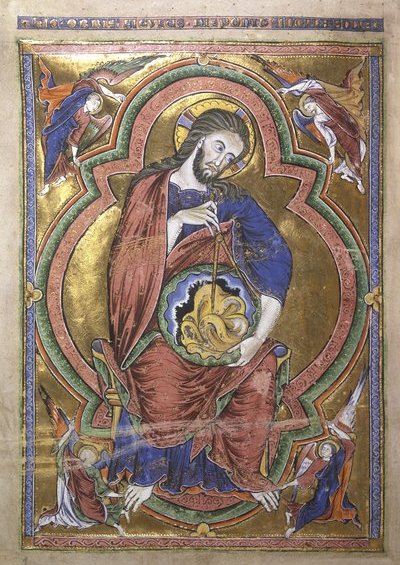
Download Podcast: "The Great Round" November 27, 2022 (November 14, Holy Calendar), The Great Round
With the coming of St. Philip's Day, we know our time for holy preparation is near. The One Who Is Coming into the World is about to be born. His purity and radiance are overwhelming to contemplate. Kings press their faces down upon a barnyard floor in His presence. Yet, we walk as yet through days of darkness. Our days grow short. Our light dwindles. The world around us dies .... at least in appearance. In this we feel the firm hand of God upon us and His good lessons for our preparation. For this universe are His fields, and we are His flocks. He guides us. He guides us home.
The path He has prepared is for our safety. It turns round and round, and no one strays who follows it. Yes, the gate is narrow. It is "difficult .... and there are few who find it" (Mt 7:13-14). .... but not by God's hand. The gate is narrow only by our own hand.
Every living soul born into the world, bearing the royal image of God, having a certain purity and innocence set within, has been sealed to return to the God from Whom they proceeded. And the way is safe and good and filled with joys. It turns round and round and round. Here are the earthly borders of the Kingdom of Heaven. Here we have peace unto our very souls. And here we begin .... again.
From the Hermitage, peace to you all. Peace on the earth! And good will towards men and women everywhere. For a manger lies before us. And there angels sing: the Lord of lords is to be born amongst us! Prepare His way! And His way lies within ourselves.
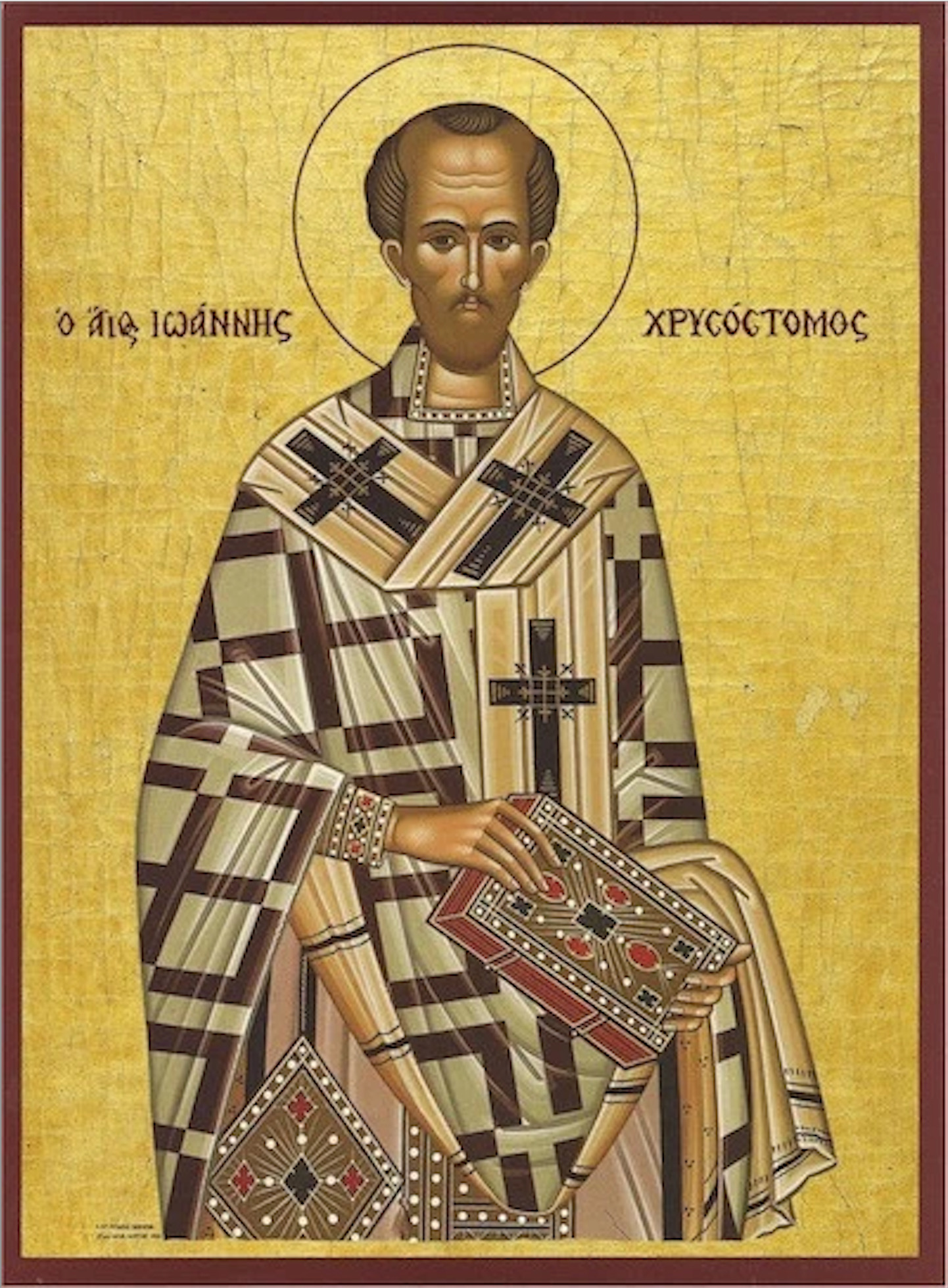
With St. Athanasius, the Cappadocian Fathers, and St. John Chrysostom, dimensions of Heaven's Kingdom were revealed as never before. It were as if a Second Flood, during the fourth century, had poured down from opened Heaven covering the earth with blessing and true apprehensions of God.
St. John Chrysostom would be our guide through the Scriptures. Who would not profit by beginning each day with one of these exegetical homilies? But set aside all of your mornings, for the books collecting them are available today in a set of fifteen volumes.
His homily on the Transfiguration would be the first devoted to the Transfiguration of Christ. Here, we are bathed in Tabor Light, in God's Uncreated Energies, and we begin to breathe Divine air becoming acclimated (as we can) to the only life that matters. For in his pastoral care (and in the care of these most trusted Fathers), we mature, we awaken, and we see the path ahead towards union with God through His Uncreated Energies.
Let us give thanks for the life that has lighted our path through Holy Scripture and thence to God.
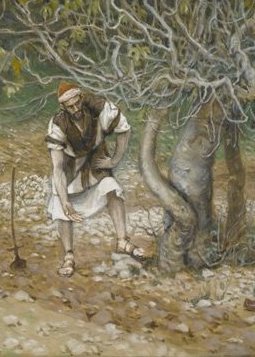
Download Podcast: "The One Who Is and the Ones Who Have" November 24 (November 11, Holy Calendar), The One Who Is, and the Ones Who Have
Our Gospel lesson morning about the fig grower and the tree that has not borne fruit finds its ground of being in the soil:
|
Then he said to the keeper of his vineyard, ....
"I have come seeking fruit on this fig tree and find none. Cut it down; why does it use up the ground?" (Lu 13:7) |
The good ground teems with nutrients and particles we are only now coming to understand, forming a superabundant web of life. The winds above carry marvelous seeds we can barely discern, each one pointing to endless generations. No source of nutrients we could discover or devise could begin to rival the sun, which shines upon everyone and everything with its life-giving plenitude. And which irrigation system could imitate the limitless waters and mists sweeping down from Heaven over the earth in blessing?
No one dwelling on earth is parted from these blessings nor isolated from its wonders. The inner-city woman languishes in her tired kitchen, the paint peeling off pipes, the stained and leaking sink, the sagging cupboards. Yet just outside her back door is a plot of good earth, which scattered with a handful of seeds, affords her place of inspiring beauty, comforting fragrances, and soft textures that touch even the soul. Who has not sat in a garden for hours imbibing this world of wonder understanding that God's beauty descends from Heaven resting upon each of us.
When the Lord Jesus asks that all-important question, "Who do you say that I Am," He places his finger on this burning point. He is I AM, the One Alone Who Is. He Alone Is Being. And we are intimately in His sphere and embrace, for we are the ones who have being. This is our bond and common love: for each other and for the One from Whom all things flows.
Let us live in this wonder, this embrace, which He offers both in being and in love. For truly He is the Giver and the Gift.
From the Hermitage, a blessed Thanksgiving Day to all of you and to your gathering families!
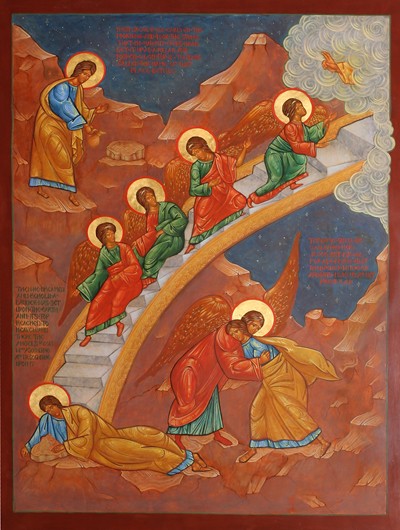
Download Podcast: "And You Shall See Heaven Opened" November 21, 2022 (November 8, Holy Calendar), "And You Shall See Heaven Opened"
The long night is ending. The clay-bound world begins to lose its power and grip. Cracks begin to appear in the floors and walls of the Second Temple, so long tyrannized by the Sadducees and their ironclad social reforms and this-worldly religion. Young men hear the sweet music of predawn bird song. They see that the first streaks of light. For the same God who revealed the Gate of Heaven and the House of God to Jacob at Peniel now stands in their midst. And He has the words of life:
|
"I say .... you shall see Heaven open, and the angels of God
ascending and descending upon the Son of Man." |
Let us also be stirred along aside them. Let us open our ears to the angels who abundantly illumine our world. And let us bow with them in veneration and thanksgiving, for this great feast is an essence of our lives in Christ: the Feast of St. Michael and All Angels.

Download Podcast: "Brother Jesus, Our God & King" November 20, 2022 (November 7, Holy Calendar), Brother Jesus, Our God & King
He commands us to follow. But His invitation is not to "underling life." Much of Christian faith is revealed in this little paradox.
He must get us past our fears and resentments, for we have been reared in dog-pack think. We know the drumbeat: Are you a varsity player or a "water boy"? Are you an officer or an enlisted man? Are you a manager or a lineworker? Are you a leader or a follower? Among their many geniuses, the Gospels rid us of these categories. "It's not like that," Jesus says,
| But Jesus called them to Himself and said to them, "You know that those who are considered rulers over the Gentiles lord it over them, and their great ones exercise authority over them. Yet it shall not be so among you; but whoever desires to become great among you shall be your servant. And whoever of you desires to be first shall be slave of all. (Mk 10:42-44) |
Even for kings, He tells them, the animal thoughts of the world, together with its cruel food chain, fall far below mind and heart of the Christ.
As time passes, they come to realize that "this Servant of all" is much more than a king. His Identity at length cannot be resisted. It can no longer be hid. Even in the hastily written thought, "Jesus of Nazareth, King of Jews" (INRI in Latin) the truth burns through the dross of our worldly debris in Hebrew letters: YHWH. This underling, this suffering servant, this slave turns out to be God. God calls us: no more His servants, but His friends (Jn 15:15). Indeed, He calls us to be His brothers and sisters. As St. Paul declares:
| .... but you received the Spirit of adoption by whom we cry out, "Abba, Father." (Rom 8:15) |
Our Gospel lesson today invites us into this very paradox .... but in the icon-painter Luke's hands, in the form of an-icon-within-an-icon: a word-picture which is a spiral staircase ascending back into itself. Let us ponder this little paradox with care, for it has been prepared for us. So much is being prepared for us. And we must not miss it.
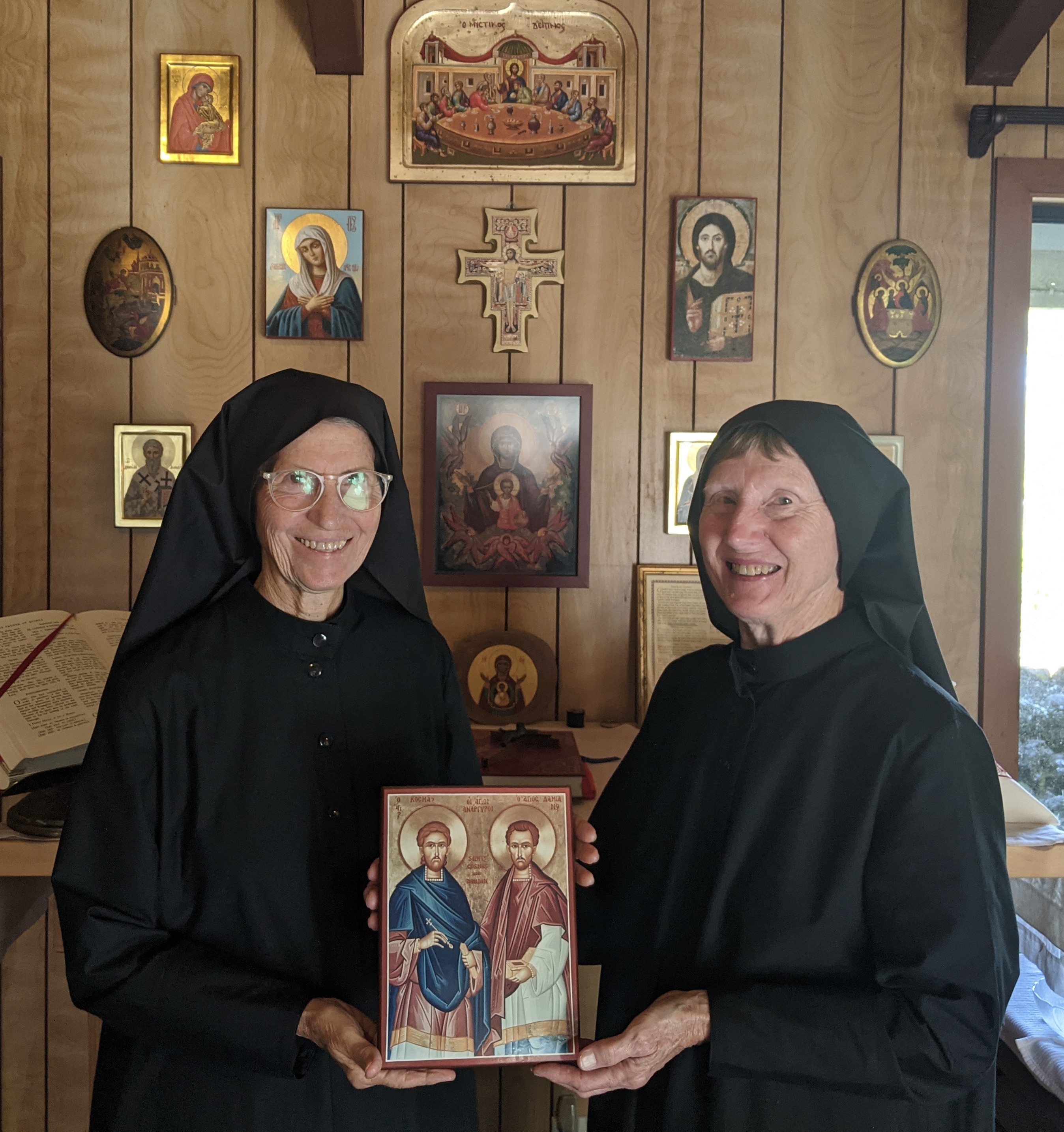
Download Podcast: "Freely They Gave" November 14 (November 1, Holy Calendar), Freely They Gave
Kosmas and Damian were what we today would call medical doctors born during the third century in the Arabian town of Kurros in the Roman Province of Syria. They were said to be twins and known as the "Silverless," for they would accept no pay for their marvelous healing ministry: giving sight to the blind, making the lame to walk, curing breast cancer, and raising the dead. Together with their "nurses" (we would say) their brothers Anthimus, Leontius, and Euprepius, they freely gave, for freely they received (Mt 10:8).
When the Hermitage was received into Holy Orthodoxy, few knew anything about us, yet we felt the pastoral hand of one priest, the rector of St. Cuthbert's Church in Pawtucket, Rhode Island. For a package arrived in the mail one day, a beautiful icon of Ss. Kosmas and Damian. Fr. David Kinghorn had taken the time to understand who we were: spiritual refugees from the Roman Catholic Church who had served in fourth-world Haiti in a medical ministry for decades. His understanding and love remain a gift to our community.
What do scientific researchers, medical diagnosticians, seasoned detectives, and people of God have in common? They reject the category coincidence. They see themselves in a meaning-bearing world in which every data point must be taken seriously. The priest-in-charge of this Hermitage takes today's date seriously. It is All Saints Day celebrated in the West (Julian Calendar). Today I have the honor of celebrating a liturgy for the two living saints I know best. They continue in their humility, their modesty, their never-ending labors, and their radiant sanctity. I give humble thanks that my final assignment as priest (I pray) is to be their chaplain.
Let us honor the saints, for their sufferings, their labors, their faithfulness are precious in the sight of the Lord.

Download Podcast: "To Know My Own Name" November 13, 2022 (October 31, Holy Calendar), To Know My Own Name
Last week we considered geographies of the afterlife. But spiritual geographies are also drawn upon the earth. The lectionary of the Orthodox Church returns to the Lost Land of Gad repeatedly. For here is an unerring depiction of Hell on earth: the culture of death, infestations of demons, a life indifferent to God. Nonetheless, the Lord of Life comes to "harrow this Hell," to free its captives from demonic tyranny, to cleanse and purify them and their world. But they reject Him, and they drive Him out.
In this do we not see a haunting image of our own world? Small wonder the Church should return to this scene again and again. In recent years these readings have become more urgent. For the night is far spent. And we do not know when the Master of the Household will return (Mk 13:35).
In a recent interview with Bishop Luke of Syracuse and Holy Trinity Seminary Jordanville, his grace reminded us that the true spiritual geography is ourselves. Union with God is the purpose of life, and our path to Him is the only roadmap worth opening.
Join us again as we consider our fellows in Gad, for they are us, and we are them.
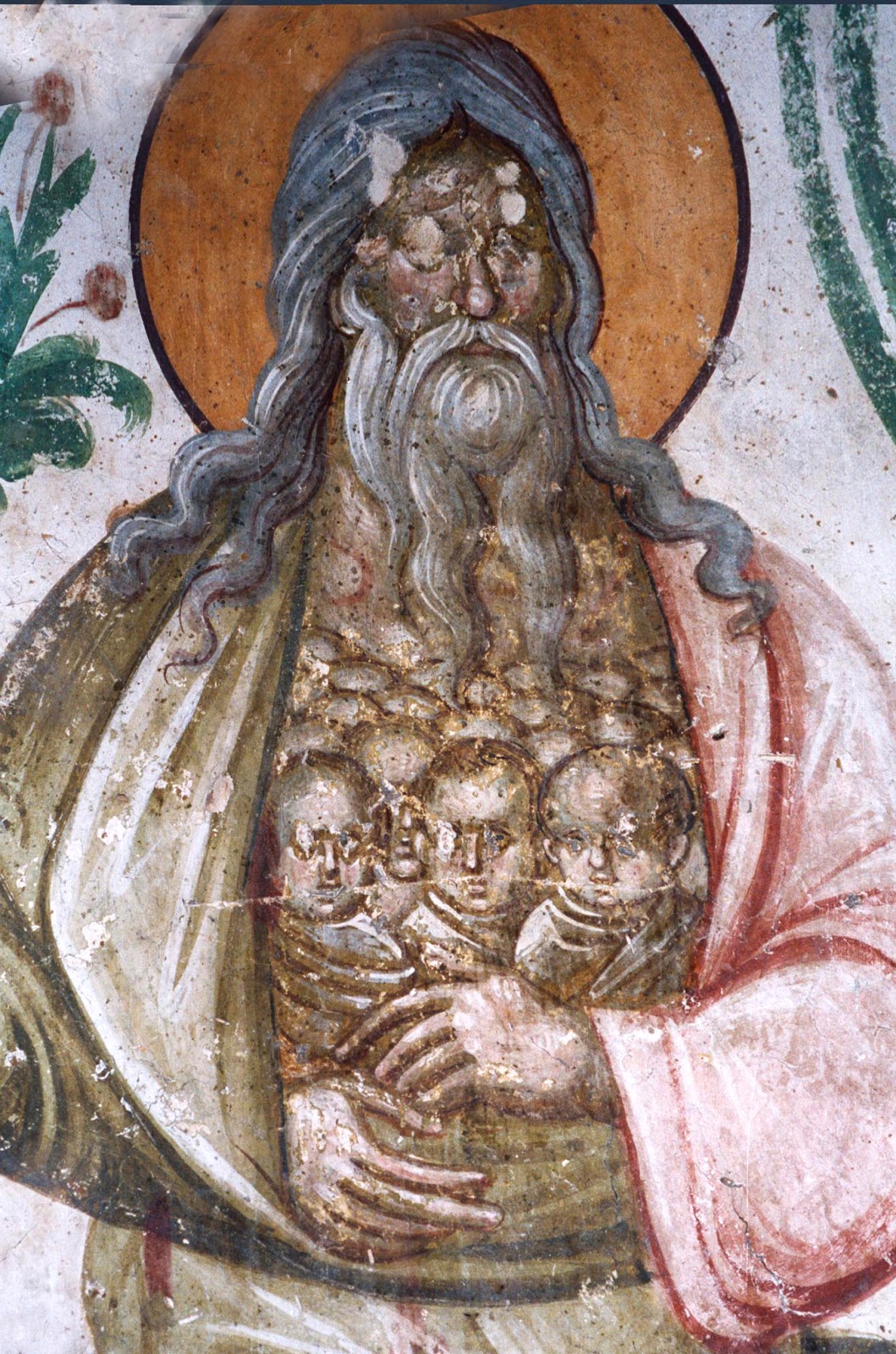
Download Podcast: "Into the Bosom" November 6, 2022 (October 24, Holy Calendar), Into the Bosom
While commentators cavil over the geography of the afterlife, the Lord of Heaven and earth invites us into the ancient traditions, which He gave from the beginning. The Bosom of Abraham is Eden, which is Paradise. This was the belief of Jesus' time and before, and it was the belief of the Early Church.
Like the father of faith, as St. Paul styles Abraham, we are summoned away from Babylon. We are called into purifying deserts. In time, we will receive the Holy Trinity in tents pitched amongst ancient oaks. We will be blessed by our great High Priest midst offerings of bread and wine. And at the end of all our roads — when we have walked our last mile, when we have prayed our last prayer, and when we have breathed our last breath — with the beggar Lazarus, angels will carry us to our consolation and delight in Paradise.
There we will be received by Father Abraham. We will touch the purity of the Baptist's hand. We will bow before the Most Holy Theotokos in reverence. And through all of these final graces of sanctification, we will be readied to stand before the Just One, the High Priest of Melchizedek, the seed of Abraham par excellence, and the Lord of all Life.
Come let us contemplate the Bosom of Abraham. The essence of our faith is relationship and union with the Holy Ones. Let us open our hearts and be received by family. For here is the peace of God and rest unto our very souls.
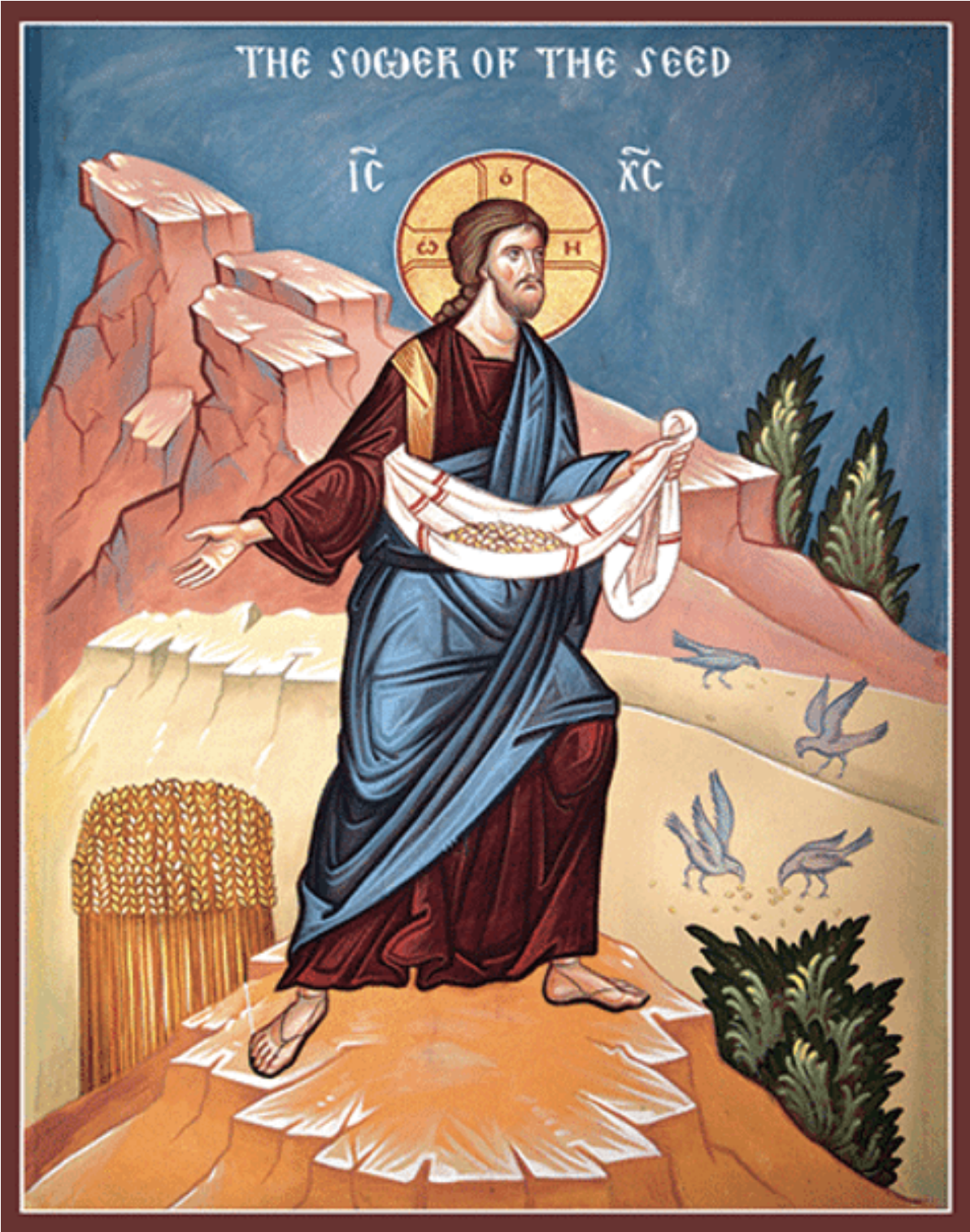
Download Podcast: "The Seed Is the Word of God" October 30, 2022 (October 17, Holy Calendar), "The Seed is the Word of God"
We hear "the Word of God" and picture Jesus Himself, the Logos, or at least leather-bound Bibles with dog-eared pages and underlined verses. But the Masoretic Text of a settled Hebrew Bible would not be completed until the seventh to tenth centuries A.D. The Gospels would not be written for decades .... St. John's perhaps not until the end of the first century. No, "the Word of God" would have meant something entirely different to Jesus' first-century audience.
Two equations come to mind. The first is proposed by the Master: the Seed is the Word. In the Hellenized world of Israel and Judea, this would have been heard as the lógos spermátikos, the seminal word — understood to be "the spark of life," perhaps "the breath of life," the spiritus of God. The second equation would come with St. John: the Word is God.
The Sower is ever sowing His Seed. Its crystalline purity floats down from Heaven like gentle snowflakes sweeping the trackless snowfields of the Himalayas. Its warm mists nourish the parched and cracked ground of this world's thirst and spiritual hunger. Its unseen graces rain down bestowing God's blessing .... if only we would receive it.
The Lord tell us, it is the heart which matters. The heart's purity is sacrosanct, for the heart is the Divine organ which sees and hears God.
The true Light descends from Heaven, tragically deflected by the debris that fills our lives. Like the rebuked Disciples, our minds have drifted. We have wandered by the wayside. Our hearts are choked with cares and carnal desires.
This is our lesson today: the seed and kernel of Christian life. It has been taught from the beginning, from Apostles such as St. John the Theologian and St. Paul to holy elders in our own time such as St. Paisios. Its essence is ever the same: Let us return our hearts to God having the same purity with which we began.
So simple. The feat of a child. Within the reach of every man and woman.
The Sower is sowing His seed. Let us open our hands. Let us turn our clean palms upward towards Heaven. And let us be filled with graces and blessings and welcome into the Kingdom of God.
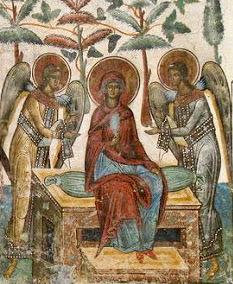
Download Podcast: "This Is Eternal Life" October 23, 2022 (October 10, Holy Calendar), "This Is Eternal Life"
As we commemorate the Fathers of the Seventh Ecumenical Council, we contemplate a paradox that continues to plague us today — the collision between two holy causes .... but which is the counterfeit? The iconoclasts for centuries desecrated icons, stripping the faith of its deeply personal character. The text they held aloft as their standard was Holy Scripture, Deuteronomy, and its pronouncement against "graven images." These icon destroyers could not have known during the first millennium that Deuteronomy was the counterfeit among the Books of the Torah — propaganda crafted in the court of the Judean "boy king" Josiah.
Josiah's aim was precisely to suppress the personal dimension of faith. To approach God directly? Such power was too great for his individual subjects to wield. God must be distanced, made to be impersonal, even aloof, so that all religious, political, and social power might be concentrated in Jerusalem, into his own hands.
Yet, the Fathers of the Seventh Council, who knew nothing of Dead Sea Scrolls to be discovered twelve centuries later, smelled a rat. How could this prohibition in Deuteronomy be true? Was not Solomon's Temple itself adorned with holy images?
These holy Fathers were truly and rightly guided by the Holy Spirit. They could hear what rang true and what rang false. Today, we also make our way towards Heaven beset by deceptions and propaganda. Which is the right direction? Which are the true paths? We travel as by night over rocky ground. Our safeguard, withal, is the Divine and imperishable Church and bishops who are holy men. What other remedy could there be?
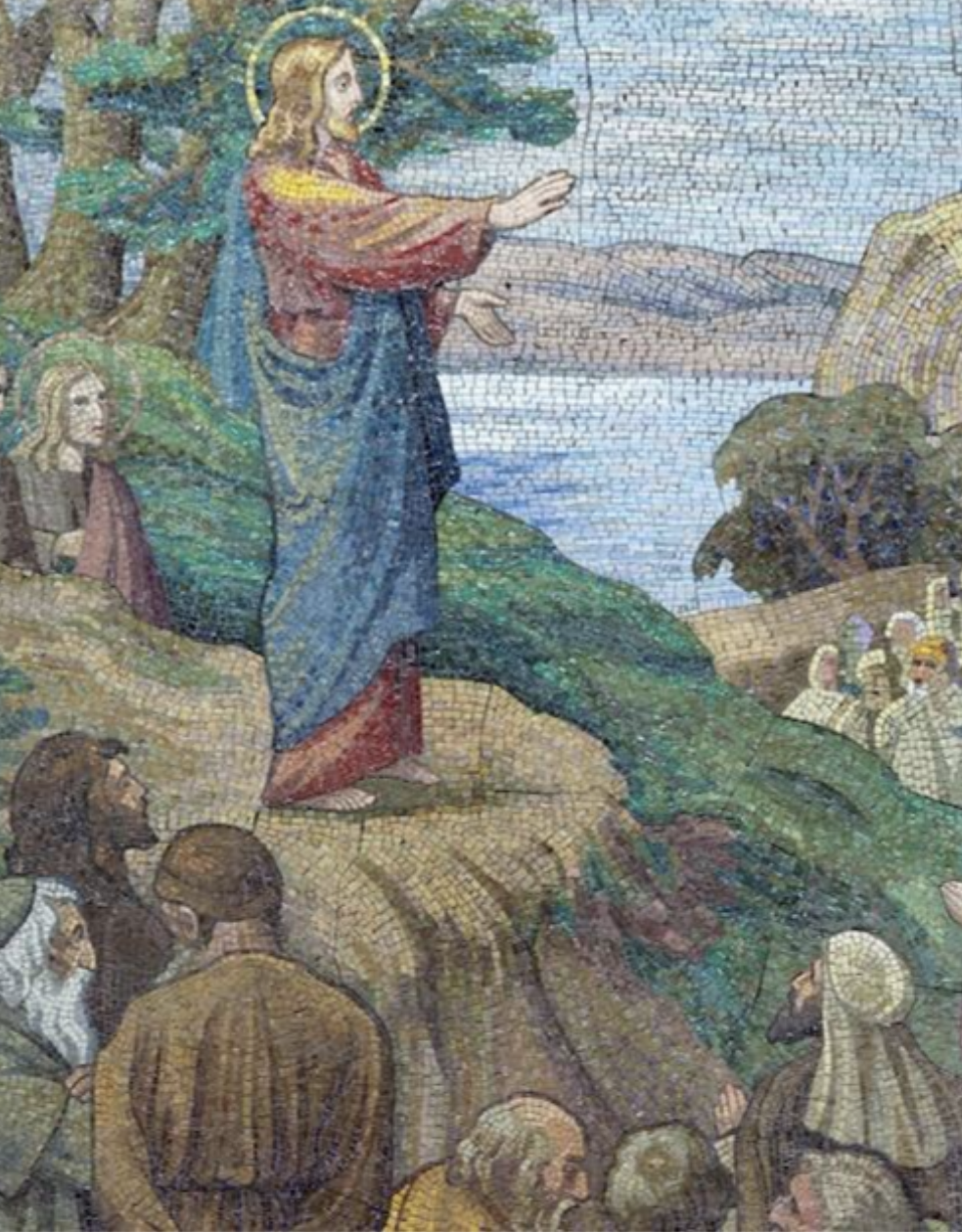
Download Podcast: "Not of This World" October 16, 2022 (October 3, Holy Calendar), "Not of This World"
Which teaching captures Christianity in the popular mind more certainly than, "Love your enemies"? Its context, therefore, is deserving of patience and diligent study.
It is situated in a "watershed" involving two mighty "rivers." First, it appears midst Jesus' "Second Giving of the Law," called the Beatitudes, given like the Mosaic Law from a mount. Second, its historical backdrop is a hair-trigger, even murderous, social and religious civil war pitting Judea against most of the rest of Israel. And the subject of a "Second Giving of the Law" is the burning point of this war.
For the Judeans, the Second Giving of the Law is plainly announced in the Greek title of a book: Deuteronomy (i.e., Deutero + nomos). For Jesus and His Disciples and for most of the rest of Israel this so-called "Book of Moses" is a counterfeit.
The Second Law of Jesus, the Law of Love, points to a lifeworld beyond Judea, beyond Israel, and, indeed, to a Kingdom not of this world (Jn 18:36). Who are the enemies we must love? That is a question to be answered not in the quarters of a city nor within any particular tribal mindset but rather on a mountain top.
Let us go therefore to hear God standing upon a Mount dispensing the graces of His Law on the people. The vast historical backdrop, radiating out across the centuries, will provide our needed perspective.
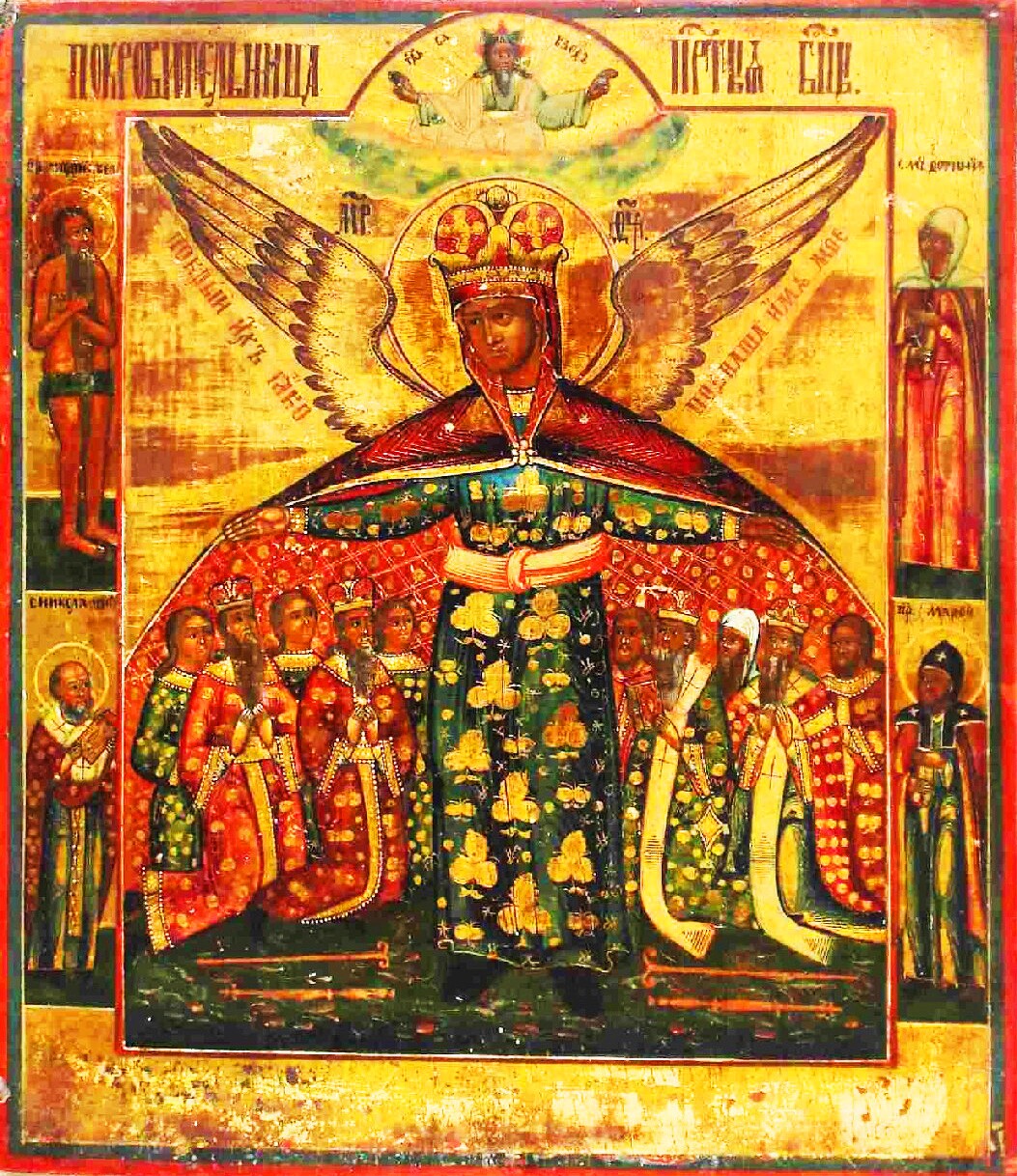
Apart from the Twelve Great Feasts and Pascha, no feast of the Slavic Church is more important than the Solemnity of "the Protectress" (Prokovitelnitsa). The tradition begins in the Byzantine tradition but has faded (e.g., no icon of this feast is found in Byzantine art). It is fervently celebrated in Russia. The actual name of St. Basil's in Red Square is Pokrov Cathedral, and the feast is a work holiday in many regions. It is considered a national holiday among Orthodox in Ukraine.
The tradition originates in Constantinople at the Church of the Vlakhernae, a complex of three structures — the principal church; a spring of holy water; a shrine church where the robe, veil, and belt of the Theotokos were venerated. — built in the 5th c., eventually becoming part of the Imperial Palace. It was here in the 10th c. where St. Andrew-the-Fool-for-Christ saw the church's dome open and the Mother of God descend where she prayed in tears for the people. Truly, our Holy Mother. He asked his disciple, St. Epiphanius, "Do you see, brother, the Holy Theotokos, praying for all the world?" Epiphanius answered, "Yes, Holy Father, I see it and am amazed!"
The icon we post expresses our understanding of the Holy Mother. We seek safety under the shadow of her wings. We seek to be sheltered beneath her holy veil. This is her essence. The earliest surviving Marian hymn pleads, "Under your compassion / We flee for refuge, God-birther. / Our petitions / Do not disregard in affliction / But rescue us from danger / Only Pure, only Blessed."
Who does not seek the love of our Most Holy Mother? Who does not seek her purity?

Download Podcast: "The World Could Not Contain" October 9, 2022 (September 26, Holy Calendar), "The World Itself Could Not Contain"
He was the only Disciple who did not run. He was the one whom Jesus loved. He was named son of the Mother of God. He kept faith with the Most Holy Theotokos standing with her at the Cross .... come what may. He was the heir to Jesus' teachings and ministry. His Gospel is unlike the others, standing in eternity and depicting Jesus frankly and movingly as God. His words of Divine life are from a different stratosphere.
The background for the Gospels that he alone among the Evangelists surfaces is crucial, for the Advent of God is not intelligible without it.
We are the generation to whom this background has been substantially shown. It has not come through our dazzling technologies nor from our scientific break-throughs. It has nothing to do with the new but rather with the original and the old, coming to light through texts discovered and analyzed during the past half century. Their content causes us to reset our minds. Jesus and His Disciples were not Jews, but Hebrews. The great exemplar of their tradition was not Moses, but Abraham. Their understanding of atonement for sin was not related to the blood-letting of animals, but rather to do with Divine life, Whose Master and King took on the lineaments of a man, Who regarded the cult of the Second Temple as repulsive. He was our Great High Priest of the First Temple, Jesus of Nazareth. Following the Master, St. John too would be clothed as a high priest (Eusebius).
Let us celebrate the feast day of this leading light among the Apostles, the Theologian, by opening our minds and hearts to a fuller grasp of the greatest story ever told, the story of God and His saving love for the world.
Perhaps the veil of the Most Holy Theotokos is wide enough to encircle
this most holy feast of Slavic Orthodoxy as well as the Thirteen Days associated with Fatima,
which culminates today in the Latin West.
O Most Holy Theotokos, intercede for us and protect us!
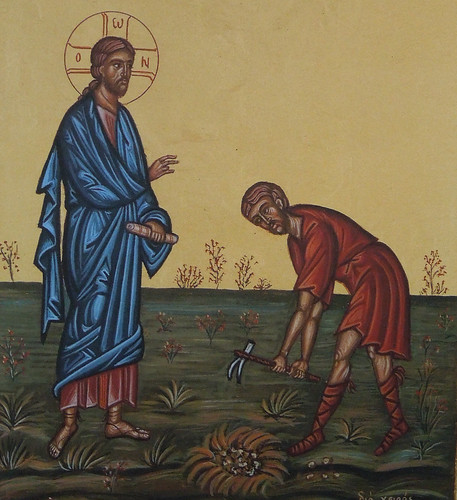
Download Podcast: "From Him Who Does Not Have" October 2, 2022 (September 19, Holy Calendar), "From Him Who Does Not Have"
The Parable of the Talents presents an apparent challenge to those who style themselves "progressive Christians":
|
"For to everyone who has, more will be given, and he will have abundance;
but from him who does not have, even what he has will be taken away." (Mt 25:29) |
Giving to those who have?! Taking from those who do not have?! What can this mean?! And this teaching appears in Matthew 25, that cornerstone Gospel chapter underlying Christian social justice! How could this be?!
We may be sure that Jesus' choice of words is designed to provoke. His language commands our attention. After all, the parable is about the Kingdom of Heaven and our eternal destiny. Without question, the Lord calls us to discern, to reflect carefully.
We discover that the precision of its relevance to each of us today (for one talent of gold equates to the living of most American households over a lifetime) can be unnerving.
The Holy Gospel of Christ, the same today, yesterday, and forever, speaks into our lives powerfully this morning. Let us attend! For we are in the presence of Divine Wisdom. And the subject is us.
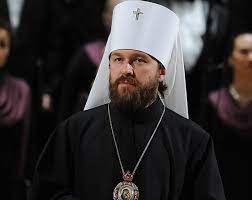
A genius of Holy Orthodoxy can be summed up in the phrase, "the faith which was once delivered unto the saints" (Jude 1:3). The Orthodox Church announces its role as guardian of this faith in its name: right glory (worship) and right doctrine. She is the One Holy Catholic and Apostolic Church. She is "the Catholic Church" attested by the Fathers (e.g., St. Ignatius of Antioch, Smyrnaeans 8), who surely did not use the phrase anticipating a schismatic jurisdiction of the Church roughly one thousand years later. It would be the heresies of the early centuries that forced the distinction "Orthodox."
Among these innovations perhaps none has been more ruinous to Christian belief and to the safety of the Christian mind and soul than the idea that Jesus was offered on an altar as the means by which Christians enter Heaven. Jesus' Passion begins when He sets aside the glory He had before the world was (Jn 17:5), emptying Himself (Phil 2:7), that He might live as one of us, becoming the exemplar par excellence of godly life and the way to Heaven, He is the God-given model for transformation of mind and soul captured in the word theosis. This does not minimize His sacrifice on the Cross. Far from it! The Cross distills in one brilliant Self-offering the laying down of His life (Jn 15:13), which is His essence and télos. The Passion (beginning at His conception), the Resurrection, and the Ascension are all of a piece with this human transformation writ large on a cosmic scale.
Perhaps no theological doctrine more starkly contrasts East from West than this one. We do not see the Crucifixion dominating the worship space of Orthodox temples. Rather, we enter the goodly fellowship of the saints, who lead us to Jesus. We are surrounded by lives, not deaths. For it is life which leads to Heaven's deathless Kingdom. And nothing underscores the sacred value of life more surely than self-offering as a ransom for others.
HE Hilarion Alfeyev, indisputably one of the greatest theologians of our time, wrote,
|
The teaching of the Savior's redeeming sacrifice as gratification of God the Father's wrath,
while found in individual Eastern authors, did not receive much serious support of any kind in the Christian East. However, it was precisely this understanding of redemption that was celebrated and preserved over many centuries in the Latin West. (Orthodox Christianity, II. 310) |
On this Friday Fast of the Holy Cross, let us fall down and worship the One Who lived as one of us and died on a Cross all for our redemption.
![]()
Download Podcast: "The Power and Wisdom of God" September 27, 2022 (September 14, Holy Calendar), "The Power and Wisdom of God"
Divine life has nothing to do with pixie dust or magic wands. An approach to Divine life, the entry into Divine life, these things are not accomplished in an instant. Jesus taught in parables because the transformation of the mind and soul is not a thing of the moment. It is attained through years of meditation and formation and discernment and, of course, through the grace of God. Yet, through His tender mercies, God has seen fit to distill His power, His wisdom, and His love into one incommensurable symbol: the Holy and Precious and Life-giving Cross. By this sign, demons must flee. By this sign, the dead are raised back to life. By this sign, we shall conquer. We shall conquer the world, its allurements, and the eternal death which is its inheritance. Embrace this Cross, Jesus taught. For it is the door and gateway into Divine life.

Download Podcast: "Not To Be Served, But To Serve" September 25, 2022 (September 12, Holy Calendar), "Not To Be Served, But To Serve"
The greatest miracle commonly seen on earth, the conception of human life and birth, begs basic questions concerning human nature and the purpose of life. The two greatest births in human history — the Nativity of our Lord and Savior Jesus Christ and the Nativity of the Mother of God — pose these questions with special urgency. The Mother of God and Her Son are the two great exemplars. We follow their lives seeking to form ourselves after them in the knowledge that this is the golden road to sanctity, to everlasting happiness, and to the Kingdom of Heaven.
Today, as we complete the celebration of our Holy Mother's birthday, let us go back and ponder all these things in our heart. This is the gift that pleases, and it is the one thing that is needful.
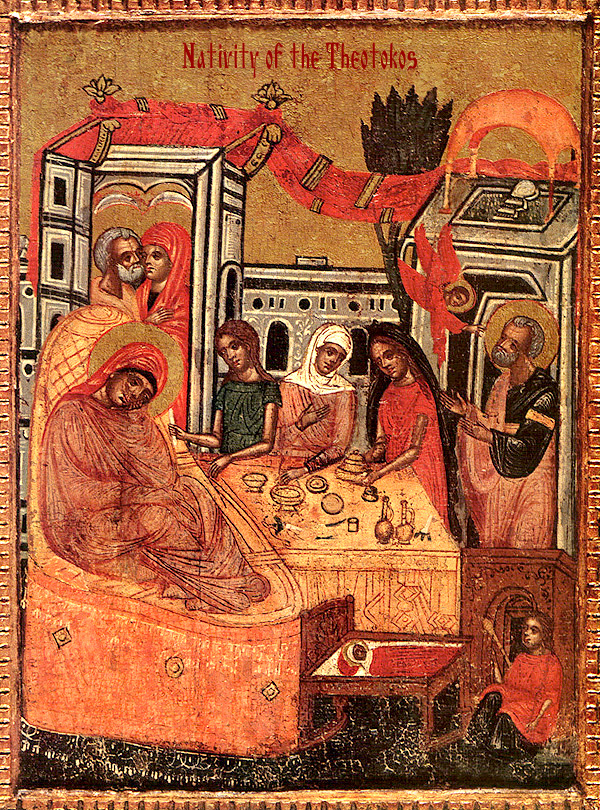
Download Podcast: "Three Gates" September 21, 2022 (September 8, Holy Calendar), Three Gates
The Ancient Father St. Irenaeus speculated that Adam and Eve were created as all humans are: as infants who grew into children. The fullness of Divine life and knowledge lay ahead, but Eve was impatient to receive it. After her disobedience, and then Adam's, they would not live to see the fullness of time. Only their descendants could. Spiritual maturity, reaching the fullness of unity with God .... all of this was interrupted. The fullness of time, then, is not measured in cosmic light years, but in descendants. This is the Abrahamic promise:
|
Then He brought him outside and said, "Look now toward Heaven, and count the stars
if you are able to number them." And He said to him, "So shall your descendants be." |
In the Twelve Tribes of Israel are figured the future age, the fulfillment of Eden. It would be the collective maturity of the descendants of Abraham, which would pick up where Adam and Eve had stumbled. The rest of the story is too long to tell. But we welcome you to the Hermitage as we ponder these things in our hearts, observing the Nativity of the One Who began the re-opening of Eden.

Download Podcast:
"But You Were Not Willing"
September 18, 2022 (September 5, Holy Calendar), "But You Were Not Willing!"
Today we celebrate the Feast of Zacharias, priest of the Second Temple,
and Righteous Elizabeth.
But we cannot discern Zachariah's place in the Christian story rightly until
we understand what he represented to Jesus and to eleven of His Disciples.
In fact,
he is pivotal.
The Advent of God cannot be fully comprehended until we understand the place of Zacharias.
The master story of the Hebrew tradition is the story of Abraham and Sarah. It is a master story of Christianity, as well. They are the Patriarch and Matriarch. The central thread of that narrative is the gift of a child in extreme old age as the living fruit of faithfulness:
|
Therefore it is of faith that it might be according to grace,
so that the promise might be sure to all the seed, not only to those who are of the law, but also to those who are of the faith of Abraham, who is the father of us all. (Rom 4:16) |
Abraham is the exemplar of that central act of the Christian life, which is theosis. For the story of Abraham and Sarah, above all, is the story of journey and of profound transformation, passing through purgation, illumination, unto unity with God. The fulfillment of their faithfulness is one-ness with God (we think of Jesus' phrase "Bosom of Abraham") as well as the blessing of children, that God's people might proceed. Children given in a state of old age and barrenness, then, is a special sign of blessing, for only in extreme old age can we know who and what we are: having run the race, having fought the good fight, having been faithful (2 Tim 4:7). This is the imposing context for the story of the aged and barren Zachariah and Elizabeth, parents of the superlative prophet, John the Baptist, which is closely tied to the story of aged and barren Joachim and Anna, parents of the Most Holy Theotokos. They are like two panels of a diptych, and the great artist standing behind this holy art is, of course, the great icon writer, St. Luke. He sets this diptych as the cornerstone of his Gospel. It is the first thing we see, and it will be a persistent theme throughout his masterpiece, the two-volume Gospel, Luke-Acts. Come, let us gaze upon this holy art in all its sanctifying detail.
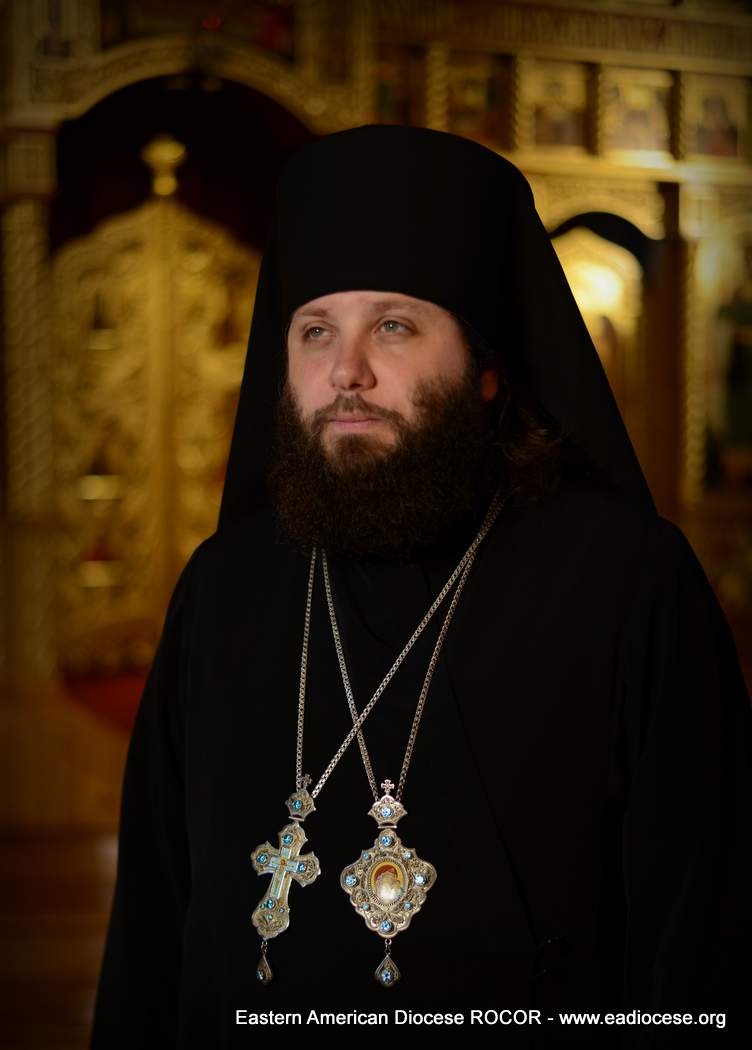
New Year's Day. September 1, 2022.
The Russian Orthodox Church Outside Russia begins a new era with the election of His Grace Bishop Nicholas of Manhattan as Metropolitan and First Hierarch of the Church. Following a long tradition, the ROCOR, created to preserve the ancient Church from Soviet atheism, has chosen holiness as the first mark of its leader. Nicholas Olhovsky attended elementary school at St. Alexander Nevsky Church (later Cathedral) in Howell, NJ. This community (near to where I grew up) was noted for its rigor and cohesiveness. After high school graduation, Nicholas proceeded directly to Holy Trinity Seminary in Jordanville, NY. Following the pattern of his predecessor, HE Metropolitan Hilarion (of sainted memory), he fulfilled his obediences in the book-binding and print shop of the seminary. In due time, he would be accorded the holy privilege and responsibility of Guardian of the Kursk Root Icon of the Most Holy Theotokos. To be chosen for this filial and intimate relationship with the Holy Mother attests his personal character. He would later be elevated to the monastic rank of Archimandrite. The people of the ROCOR may be confident that their Church, in a world gone mad, continues in her vocation as guardian of the faith, protector of the holy things, and reliable at a most unsteady time in human history. May this forty-eight-year-old man of God reign for many years! Axios! Axios!